Here are my favorite poems about rivers categorized:
- Poems about rivers and life
- Poems about rivers and love
- Poems about rivers and death
- Poems about rivers and streams
- Poems about rivers and nature
- Short poems about rivers
So if you want the best poems about rivers, then you’re in the right place.
Let’s get started!
- 37 Adrenaline-Pumping Poems About Pearls
- 71 Exulting Poems About Rainbows
- 25 Enjoyable Poems About Seashells
- 43 Wave-Kissed Poems About the Ocean
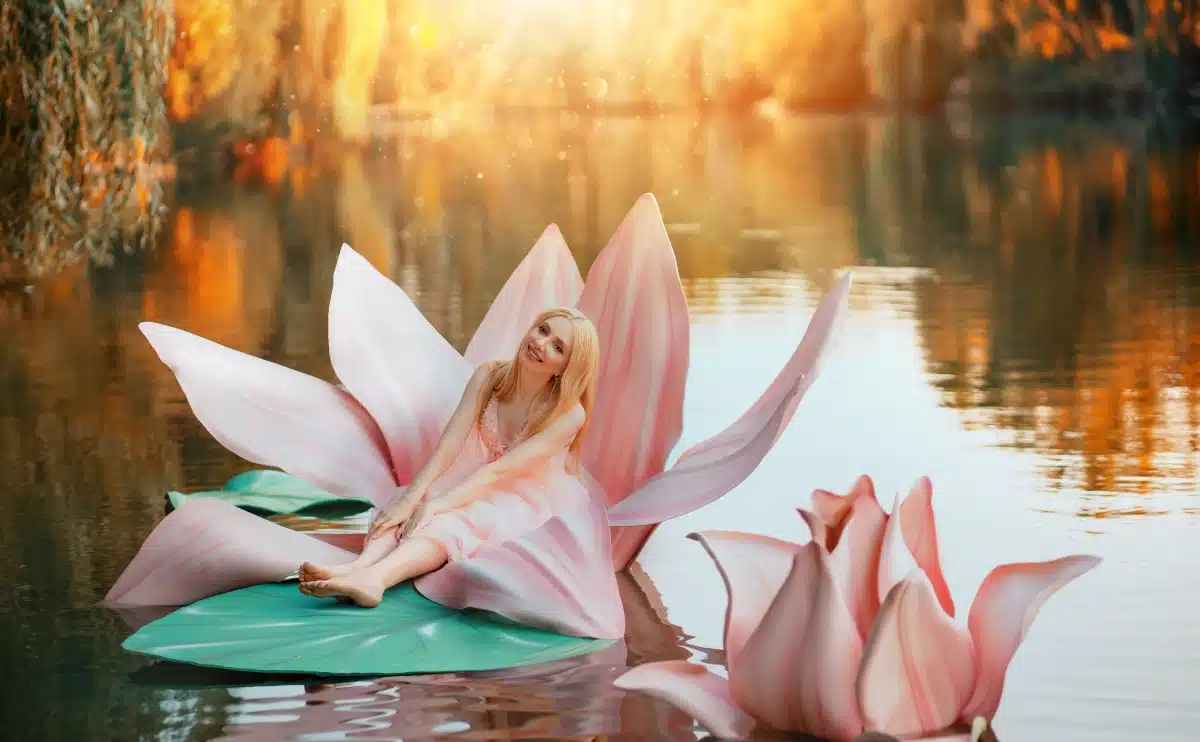
Serene Poems About Rivers
Discover a captivating selection of meticulously curated poems that weave the essence of rivers into the fabric of human existence, inviting you on an enchanting journey through the depths and currents of life.
Within our collection, you will immerse yourself in verses that flow with the rhythmic melodies of nature, exploring the profound connections between rivers and the human spirit, unveiling the tales of resilience, renewal, and the timeless wisdom they carry.
With our handpicked assortment, you can now wander through the poetic tapestry that celebrates the eternal dance of rivers, where words meander and cascade, inviting you to delve into the transformative power and untold stories that ripple through their flowing waters.
Let’s get started!
My #1 Favorite Poem About Rivers
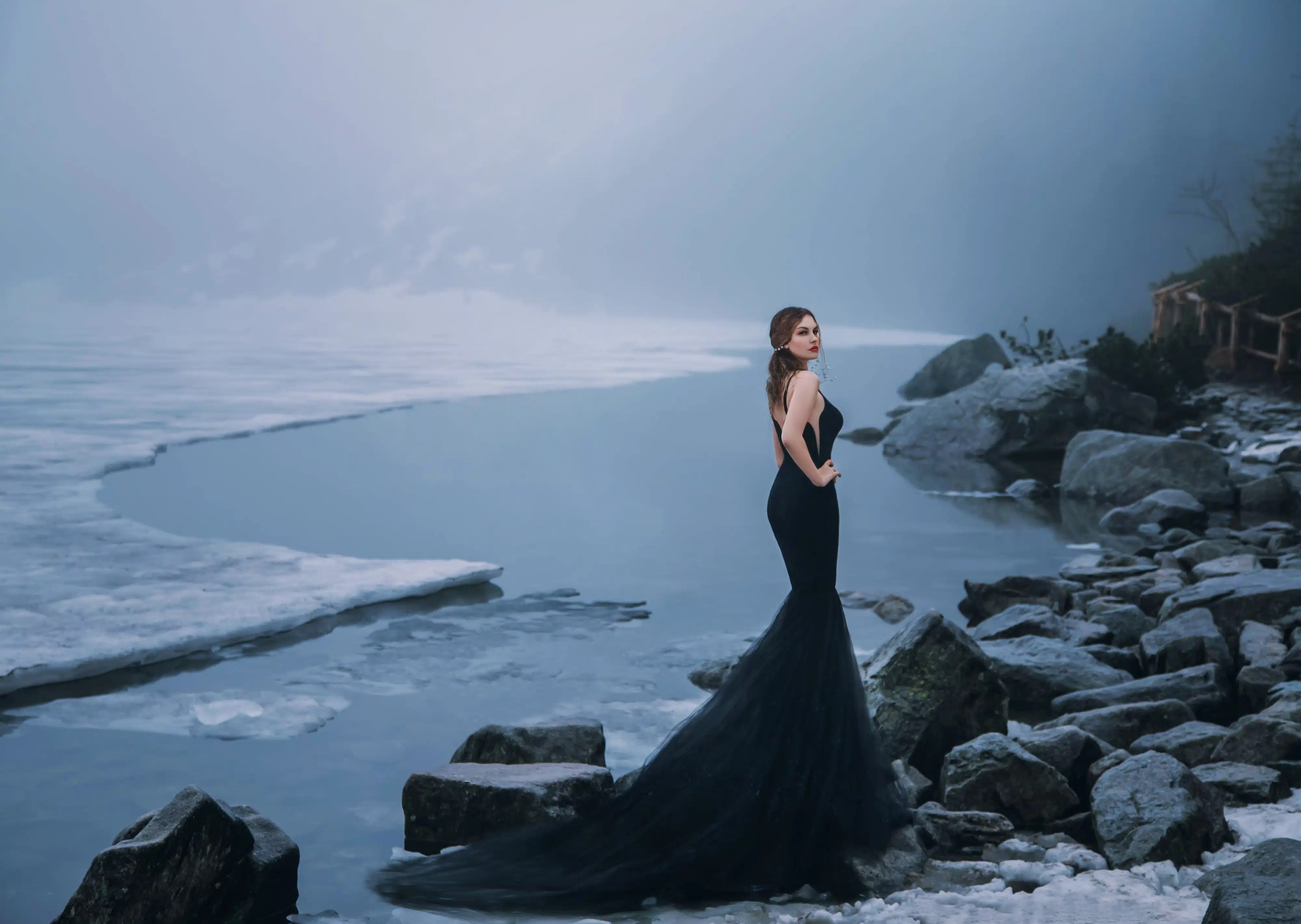
“The River” by Sara Teasdale
I came from the sunny valleys
And sought for the open sea,
For I thought in its gray expanses
My peace would come to me.
I came at last to the ocean
And found it wild and black,
And I cried to the windless valleys,
“Be kind and take me back!”
But the thirsty tide ran inland,
And the salt waves drank of me,
And I who was fresh as the rainfall
Am bitter as the sea.
Poems About Rivers and Life
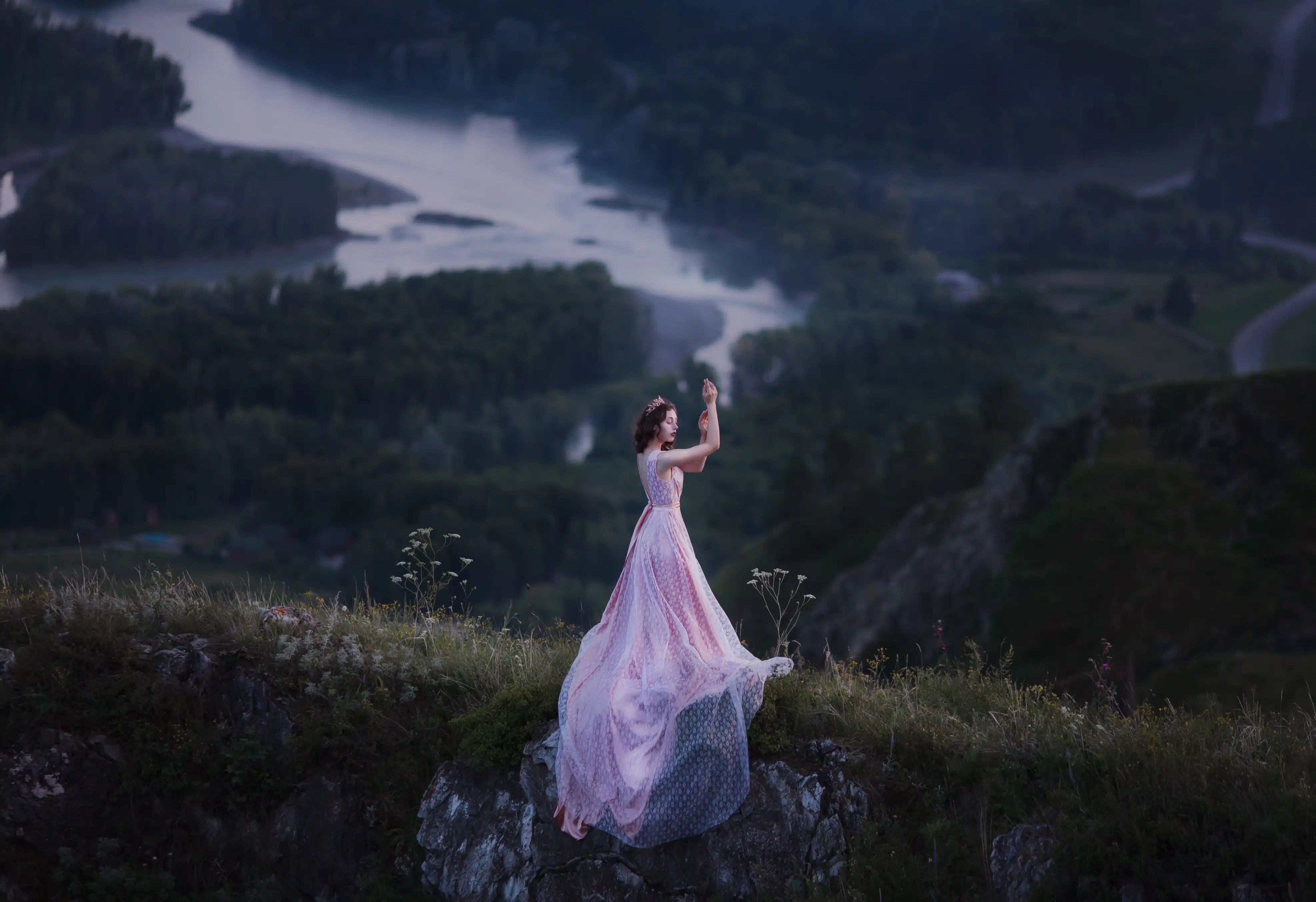
“Henry C. Calhoun” by Edgar Lee Masters
I reached the highest place in Spoon River,
But through what bitterness of spirit!
The face of my father, sitting speechless,
Child-like, watching his canaries,
And looking at the court-house window
Of the county judge’s room,
And his admonitions to me to seek
My own in life, and punish Spoon River
To avenge the wrong the people did him,
Filled me with furious energy
To seek for wealth and seek for power.
But what did he do but send me along
The path that leads to the grove of the Furies?
I followed the path and I tell you this:
On the way to the grove you’ll pass the Fates,
Shadow-eyed, bent over their weaving.
Stop for a moment, and if you see
The thread of revenge leap out of the shuttle
Then quickly snatch from Atropos
The shears and cut it, lest your sons,
And the children of them and their children
Wear the envenomed robe.
“Inheritance” by George William (“A. E.”) Russell
As flow the rivers to the sea
Adown from rocky hill or plain,
A thousand ages toiled for thee
And gave thee harvest of their gain;
And weary myriads of yore
Dug out for thee earth’s buried ore.
The shadowy toilers for thee fought
In chaos of primeval day
Blind battles with they knew not what;
And each before he passed away
Gave clear articulate cries of woe:
Your pain is theirs of long ago.
And all the old heart sweetness sung,
The joyous life of man and maid
In forests when the earth was young,
In rumours round your childhood strayed:
The careless sweetness of your mind
Comes from the buried years behind.
And not alone unto your birth
Their gifts the weeping ages bore,
The old descents of God on earth
Have dowered thee with celestial lore:
So, wise, and filled with sad and gay
You pass unto the further day.
“Archibald Higbie” by Edgar Lee Masters
I loathed you, Spoon River.
I tried to rise above you,
I was ashamed of you.
I despised you
As the place of my nativity.
And there in Rome, among the artists,
Speaking Italian, speaking French,
I seemed to myself at times to be free
Of every trace of my origin.
I seemed to be reaching the heights of art
And to breathe the air that the masters breathed
And to see the world with their eyes.
But still they’d pass my work and say:
“What are you driving at, my friend?
Sometimes the face looks like Apollo’s
At others it has a trace of Lincoln’s.”
There was no culture, you know, in Spoon River
And I burned with shame and held my peace.
And what could I do, all covered over
And weighted down with western soil
Except aspire, and pray for another
Birth in the world, with all of Spoon River
Rooted out of my soul?
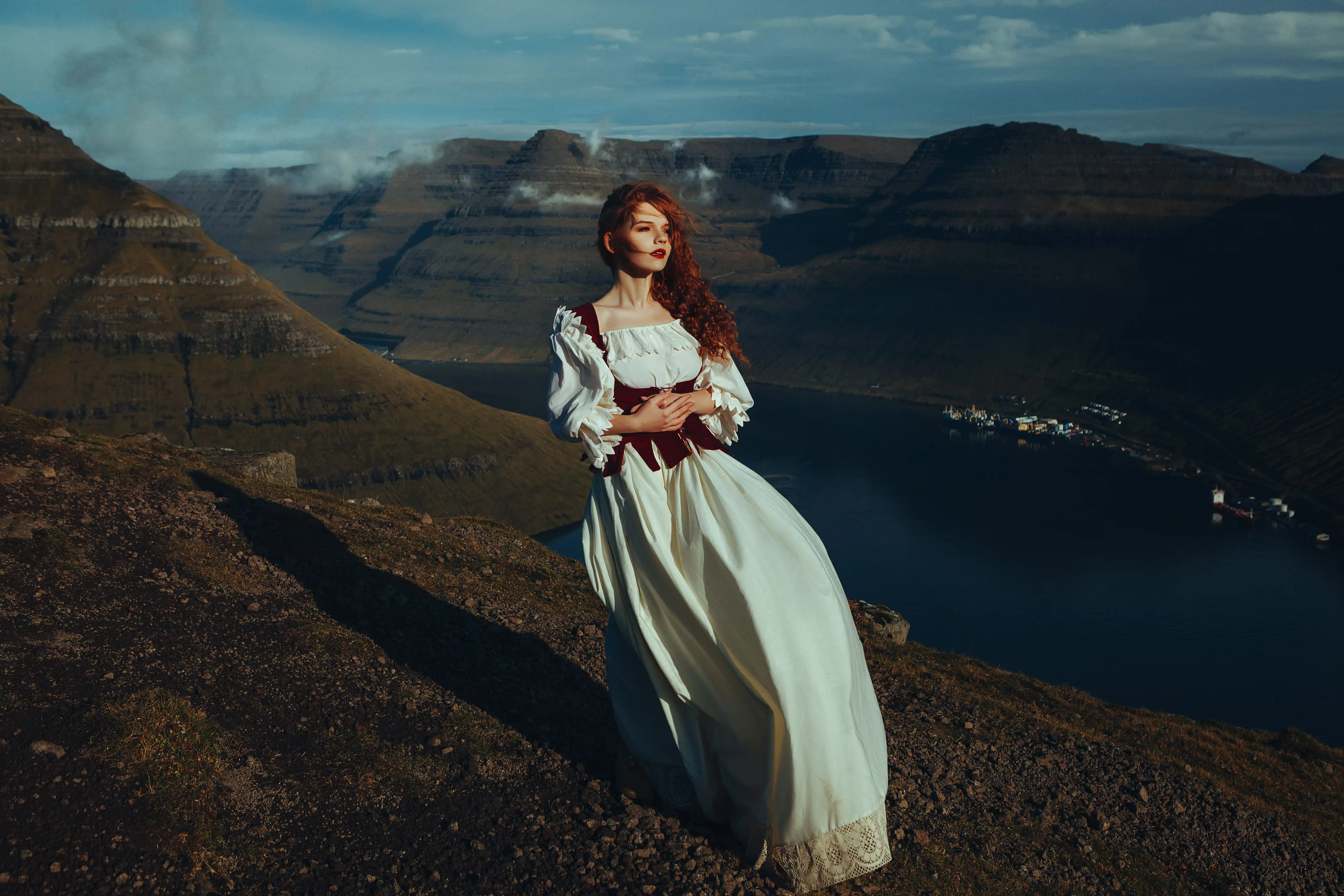
“In valleys of springs of rivers” by A. E. Housman
In valleys of springs of rivers,
By Ony and Teme and Clun,
The country for easy livers,
The quietest under the sun,
We still had sorrows to lighten,
One could not be always glad,
And lads knew trouble at Knighton
When I was a Knighton lad.
By bridges that Thames runs under,
In London, the town built ill,
’Tis sure small matter for wonder
If sorrow is with one still.
And if as a lad grows older
The troubles he bears are more,
He carries his griefs on a shoulder
That handselled them long before.
Where shall one halt to deliver
This luggage I ’d lief set down?
Not Thames, not Teme is the river,
Nor London nor Knighton the town:
’Tis a long way further than Knighton,
A quieter place than Clun,
Where doomsday may thunder and lighten
And little ’twill matter to one.
“Sunset From Omaha Hotel Window” by Carl Sandburg
Into the blue river hills
The red sun runners go
And the long sand changes
And to-day is a goner
And to-day is not worth haggling over.
Here in Omaha
The gloaming is bitter
As in Chicago
Or Kenosha.
The long sand changes.
To-day is a goner.
Time knocks in another brass nail.
Another yellow plunger shoots the dark.
Constellations
Wheeling over Omaha
As in Chicago
Or Kenosha.
The long sand is gone
and all the talk is stars.
They circle in a dome over Nebraska.
“What Aspect Bore The Man Who Roved Or Fled” by William Wordsworth
What aspect bore the Man who roved or fled,
First of his tribe, to this dark dell who first
In this pellucid Current slaked his thirst?
What hopes came with him? what designs were spread
Along his path? His unprotected bed
What dreams encompassed? Was the intruder nursed
In hideous usages, and rites accursed,
That thinned the living and disturbed the dead?
No voice replies; both air and earth are mute;
And Thou, blue Streamlet, murmuring yield’st no more
Than a soft record, that, whatever fruit
Of ignorance thou might’st witness heretofore,
Thy function was to heal and to restore,
To soothe and cleanse, not madden and pollute!
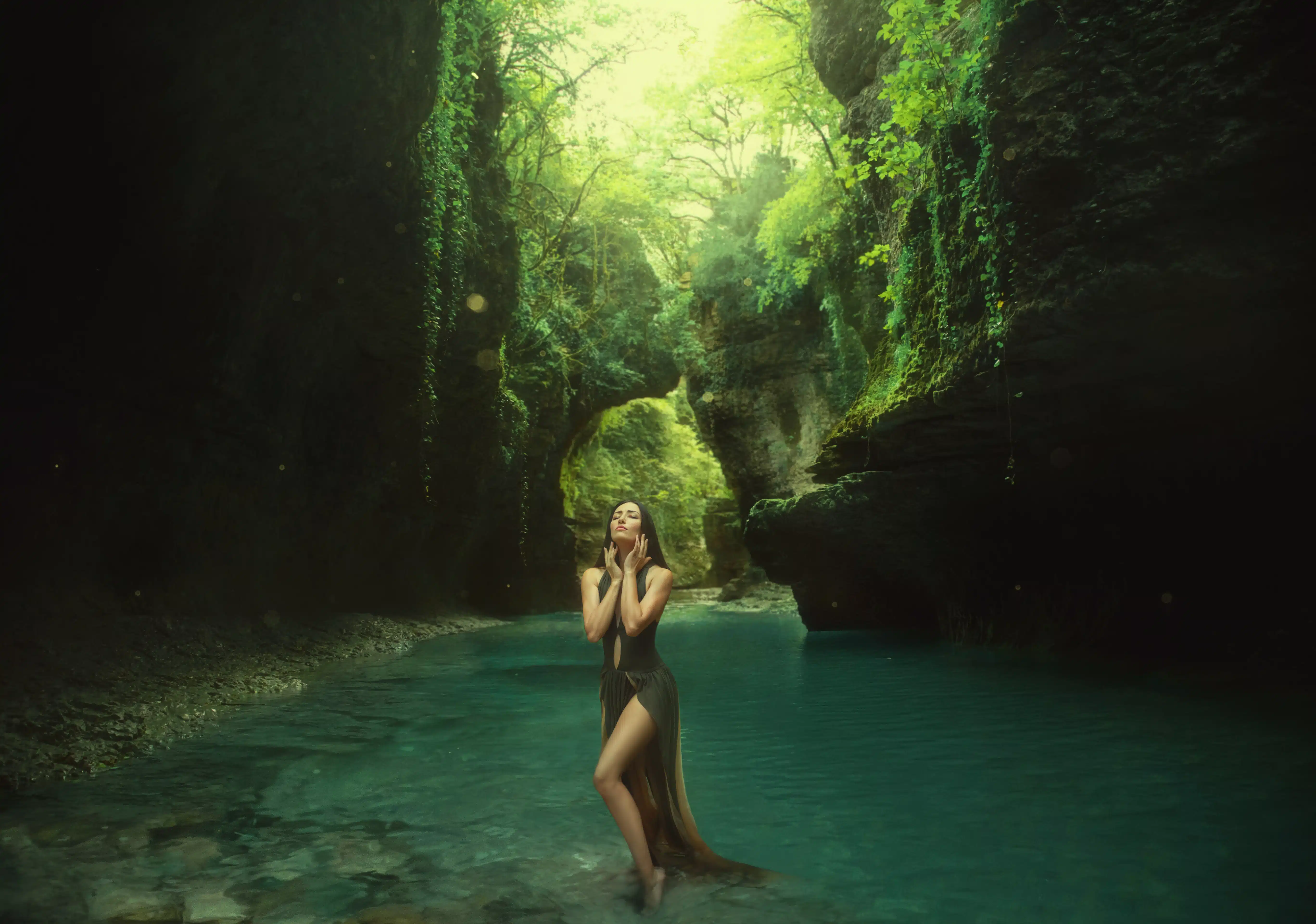
“The Green River” by Alfred Douglas
I know a green grass path that leaves the field
And, like a running river, winds along
Into a leafy wood, where is no throng
Of birds at noon-day; and no soft throats yield
Their music to the moon. The place is sealed,
An unclaimed sovereignty of voiceless song,
And all the unravished silences belong
To some sweet singer lost, or unrevealed.
So is my soul become a silent place….
Oh, may I wake from this uneasy night
To find some voice of music manifold.
Let it be shape of sorrow with wan face
Or love that swoons on sleep, or else delight
That is as wide-eyed as a marigold.
“Intimate Prayer by Antonio Nicolás Blanco Intimate Prayer” by Antonio Nicolás Blanco
Blessed forever be
My hamlet in its simplicity
With its mornings calm and bright,
Lilac-covered, or blue or white.
Where evening as a perfume goes,
And twilight’s colored like a rose.
With nights whose beauty nothing mars,
Drunken with the moon and stars.
Where the ancient steeple airy
Watches like a visionary.
With tiny houses that beguile
One’s spirit with their humble smile.
Where ancient laurels touch the sky,
And from tall cotes the pigeons fly.
Where the rivulet and river
Bathe the feet of the village ever.
Where blossomy branches are the yield
Of the fertile fragrant field.
With hearts good and happy, making
Life’s old hurt leave off its aching—
Hearts that crave no other’s pleasure,
But the days by duties measure;
Child-like souls who seem to be
All courtesy and gravity.
For this, and for much more that I
From memory will not let die,
Blessed forever be
My hamlet in its simplicity!
“Sonnet VIII” by Luís de Camões (Viscount Strangford, Translator)
Mondego! thou, whose waters cold and clear
Gird those green banks, where fancy fain would stay,
Fondly to muse on that departed day
When Hope was kind and Friendship seem’d sincere;
—Ere I had purchas’d knowledge with a tear.
—Mondego! though I bend my pilgrim way
To other shores, where other fountains stray,
And other rivers roll their proud career,
Still—nor shall time, nor grief, nor stars severe,
Nor widening distance e’er prevail in aught
To make thee less to this sad bosom dear;
And Memory oft, by old Affection taught,
Shall lightly speed upon the plumes of thought,
To bathe amongst thy waters cold and clear!

“Thanksgiving Day” by Lydia Maria Child
Over the river, and through the wood,
To grandfather’s house we go;
The horse knows the way
To carry the sleigh
Through the white and drifted snow.
Over the river, and through the wood—
Oh, how the wind does blow!
It stings the toes
And bites the nose
As over the ground we go.
Over the river, and through the wood,
To have a first-rate play.
Hear the bells ring
“Ting-a-ling-ding”,
Hurrah for Thanksgiving Day!
Over the river, and through the wood
Trot fast, my dapple-gray!
Spring over the ground,
Like a hunting-hound!
For this is Thanksgiving Day.
Over the river, and through the wood,
And straight through the barn-yard gate.
We seem to go
Extremely slow,—
It is so hard to wait!
Over the river and through the wood—
Now grandmother’s cap I spy!
Hurrah for the fun!
Is the pudding done?
Hurrah for the pumpkin-pie!
“At Crow’s Nest Pass” by Emily Pauline Johnson
At Crow’s Nest Pass the mountains rend
Themselves apart, the rivers wend
A lawless course about their feet,
And breaking into torrents beat
In useless fury where they blend
At Crow’s Nest Pass.
The nesting eagle, wise, discreet,
Wings up the gorge’s lone retreat
And makes some barren crag her friend
At Crow’s Nest Pass.
Uncertain clouds, half-high, suspend
Their shifting vapours, and contend
With rocks that suffer not defeat;
And snows, and suns, and mad winds meet
To battle where the cliffs defend
At Crow’s Nest Pass.
“My Home” by Luis G. Dato
Up by a leaping stream,
And cradled ’neath the hills,
The hallowed moments seem
Eternities of thrills.
The river runs its course
Half round my little nest,
Where birds are never hoarse
Singing in play and rest.
O’er the roof the cadenas creep,
Soft grasses clothe the lawn,
Which with the twilight weep
And pray for a new dawn.
At morn the butterflies
Are early on the wing,
And when the evening dies,
I hear the late bird sing.
There joy no sorrows mar,
Its cup is empty never,
Wherein griefs, falling, are
Lost in the depths forever.
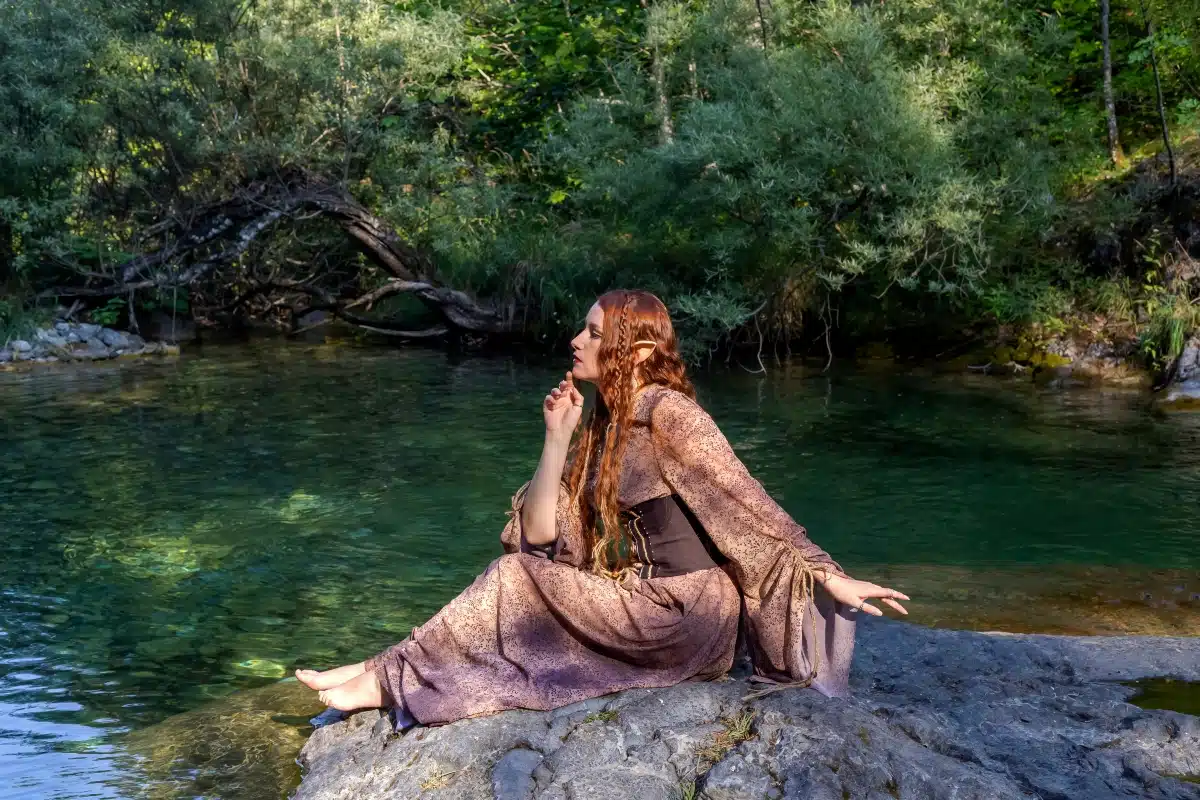
“The Faery Chasm” by William Wordsworth
No fiction was it of the antique age:
A sky-blue stone, within this sunless cleft,
Is of the very footmarks unbereft
Which tiny Elves impressed; on that smooth stage
Dancing with all their brilliant equipage
In secret revels, haply after theft
Of some sweet Babe, Flower stolen, and coarse Weed left
For the distracted Mother to assuage
Her grief with, as she might! But, where, oh! where
Is traceable a vestige of the notes
That ruled those dances wild in character?
Deep underground? Or in the upper air,
On the shrill wind of midnight? or where floats
O’er twilight fields the autumnal gossamer?
“The River Village” by Tu Fu (Florence Ayscough and Amy Lowell, Translators)
The river makes a bend and encircles the village with its current.
All the long Summer, the affairs and occupations of the river village are quiet and simple.
The swallows who nest in the beams go and come as they please.
The gulls in the middle of the river enjoy one another, they crowd together and touch one another.
My old wife paints a chess-board on paper.
My little sons hammer needles to make fish-hooks.
I have many illnesses, therefore my only necessities are medicines.
Besides these, what more can so humble a man as I ask?
Looking at the Moon After Rain by Li Po (Florence Ayscough and Amy Lowell, Translators)
The heavy clouds are broken and blowing,
And once more I can see the wide common stretching beyond the four sides of the city.
Open the door. Half of the moon-toad is already up,
The glimmer of it is like smooth hoar-frost spreading over ten thousand li.
The river is a flat, shining chain.
The moon, rising, is a white eye to the hills;
After it has risen, it is the bright heart of the sea.
Because I love it—so—round as a fan,
I hum songs until the dawn.

“Revery” by Fenton Johnson
1.
I was the starlight
I was the moonlight
I was the sunset,
Before the dawning
Of my life;
I was the river
Forever winding
To purple dreaming,
I was the glowing
Of youthful Springtime,
I was the singing
Of golden songbirds,—
I was love.
2.
I was the sunlight,
I was the twilight,
I was the humming
Of winged creatures
Ere my birth;
I was the blushing
Of lily maiden,
I was the vision
Of youthful striving,
I was the summer,
I was the autumn,
I was the All-time—
I was love.
“Jazzonia” by Langston Hughes
Oh, silver tree!
Oh, shining rivers of the soul!
In a Harlem cabaret
Six long-headed jazzers play.
A dancing girl whose eyes are bold
Lifts high a dress of silken gold.
Oh, singing tree!
Oh, shining rivers of the soul!
Were Eve’s eyes
In the first garden
Just a bit too bold?
Was Cleopatra gorgeous
In a gown of gold?
Oh, shining tree!
Oh, silver rivers of the soul!
In a whirling cabaret
Six long-headed jazzers play.
“Salmon-Fishing” by Robinson Jeffers
The days shorten, the south blows wide for showers now,
The south wind shouts to the rivers,
The rivers open their mouths and the salt salmon
Race up into the freshet.
In Christmas month against the smoulder and menace
Of a long angry sundown
Red ash of the dark solstice, you see the anglers,
Pitiful, cruel, primeval,
Like the priests of the people that built Stonehenge,
Dark silent forms, performing
Remote solemnities in the red shallows
Of the river’s mouth at the year’s turn,
Drawing landward their live bullion, the bloody mouths
And scales full of the sunset
Twitch on the rocks, no more to wander at will
The wild Pacific pasture nor wanton and spawning
Race up into fresh water.
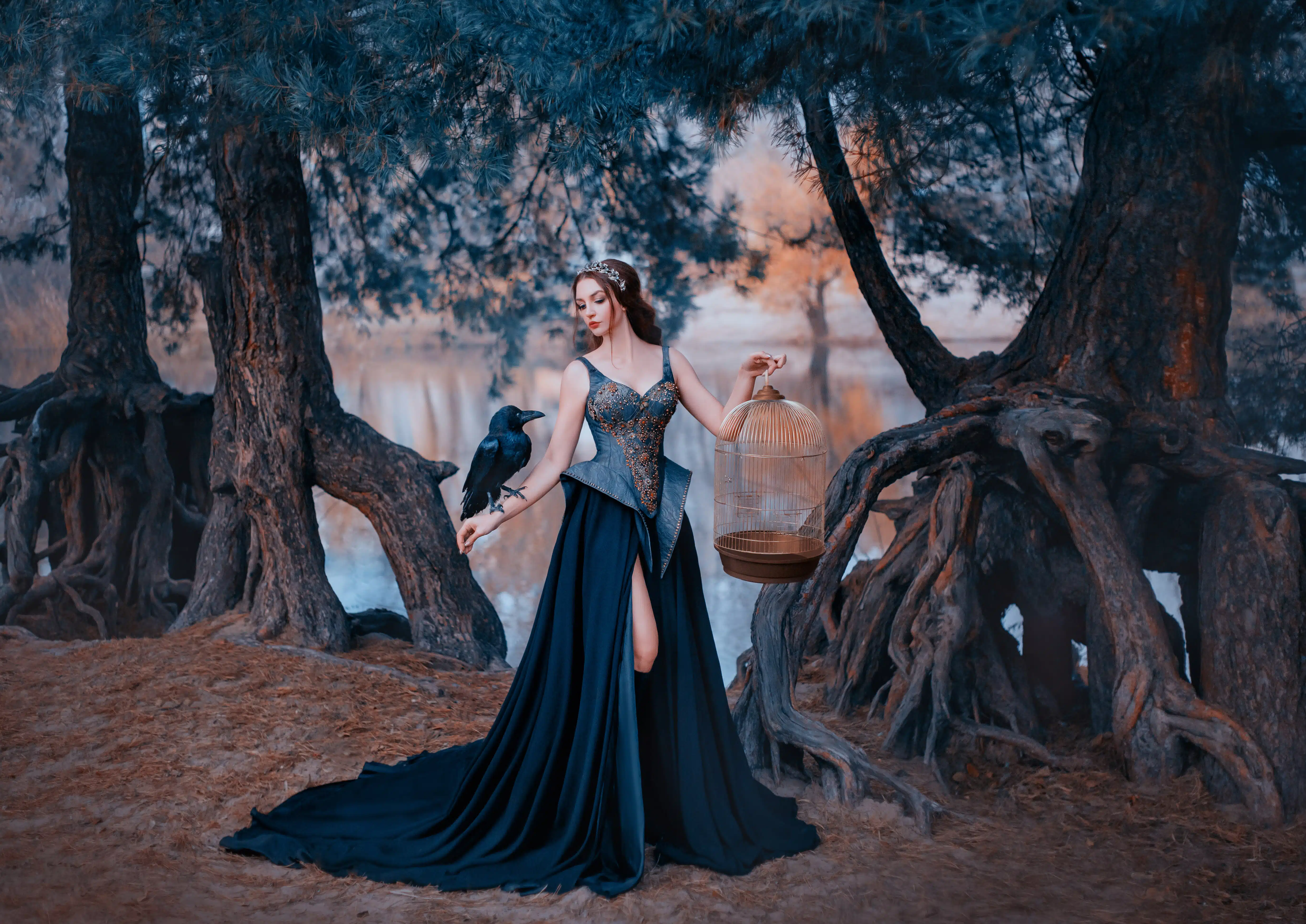
“River Roads” by Carl Sandburg
Let the crows go by hawking their caw and caw.
They have been swimming in midnights of coal mines somewhere.
Let ’em hawk their caw and caw.
Let the woodpecker drum and drum on a hickory stump.
He has been swimming in red and blue pools somewhere hundreds of years
And the blue has gone to his wings and the red has gone to his head.
Let his red head drum and drum.
Let the dark pools hold the birds in a looking-glass.
And if the pool wishes, let it shiver to the blur of many wings, old swimmers from old places.
Let the redwing streak a line of vermillion on the green wood lines.
And the mist along the river fix its purple in lines of a woman’s shawl on lazy shoulders.
“Not the Pilot” by Walt Whitman
Not the pilot has charged himself to bring his ship into port, though beaten back and many times baffled;
Not the pathfinder penetrating inland weary and long,
By deserts parch’d, snows chill’d, rivers wet, perseveres till he reaches his destination,
More than I have charged myself, heeded or unheeded, to compose march for these States,
For a battle-call, rousing to arms if need be, years, centuries hence.
“Spring in Tulwa Thlocco” by Alexander Posey
Thro’ the vine-embowered portal blows
The fragrant breath of summer-time;
Far, the river, brightly winding, goes
With murmurs falling into rhyme.
It is spring in Tulwa Thlocco now;
The fresher hue of grass and tree
All but hides upon the mountain’s brow
The green haunts of the chickadee.
There are drifts of plum blooms, snowy white,
Along the lane and greening hedge;
And the dogwood blossoms cast a light
Upon the forest’s dusky edge.
Crocus, earliest flower of the year,
Hangs out its starry petals where
The spring beauties in their hiding peer,
And the red-buds crimson all the air.

“The River of Life” by Thomas Campbell
The more we live, more brief appear
Our life’s succeeding stages;
A day to childhood seems a year,
And years like passing ages.
The gladsome current of our youth,
Ere passion yet disorders,
Steals lingering like a river smooth
Along its grassy borders.
But as the careworn cheek grows wan,
And sorrow’s shafts fly thicker,
Ye stars, that measure life to man,
Why seem your courses quicker?
When joys have lost their bloom and breath,
And life itself is vapid,
Why, as we reach the Falls of Death
Feel we its tide more rapid?
It may be strange—yet who would change
Time’s course to slower speeding,
When one by one our friends have gone,
And left our bosoms bleeding?
Heaven gives our years of fading strength
Indemnifying fleetness;
And those of youth, a seeming length,
Proportion’d to their sweetness.
“Cavalry Crossing a Ford” by Walt Whitman
A line in long array where they wind betwixt green islands,
They take a serpentine course, their arms flash in the sun—hark to the musical clank,
Behold the silvery river, in it the splashing horses loitering stop to drink,
Behold the brown-faced men, each group, each person a picture, the negligent rest on the saddles,
Some emerge on the opposite bank, others are just entering the ford—while,
Scarlet and blue and snowy white,
The guidon flags flutter gayly in the wind.
“Take, Cradled Nursling Of The Mountain” by William Wordsworth
Take, cradled Nursling of the mountain, take
This parting glance, no negligent adieu!
A Protean change seems wrought while I pursue
The curves, a loosely-scattered chain doth make;
Or rather thou appear’st a glistering snake,
Silent, and to the gazer’s eye untrue,
Thridding with sinuous lapse the rushes, through
Dwarf willows gliding, and by ferny brake.
Starts from a dizzy steep the undaunted Rill
Robed instantly in garb of snow-white foam;
And laughing dares the Adventurer, who hath clomb
So high, a rival purpose to fulfill;
Else let the dastard backward wend, and roam,
Seeking less bold achievement, where he will!
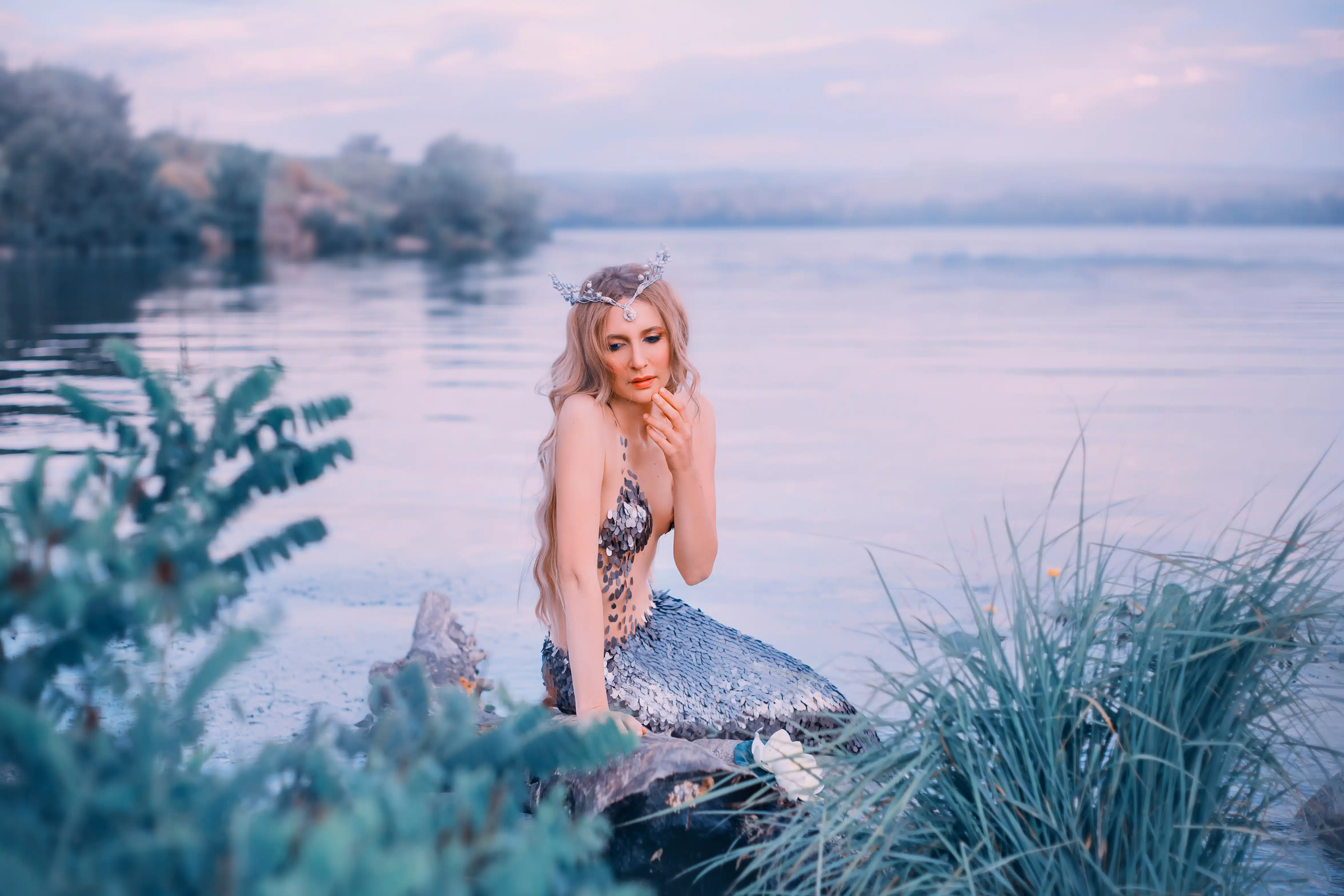
“The Song of Siva” by Ameen Rihani
’Tis Night; all the Sirens are silent,
All the Vultures asleep;
And the horns of the Tempest are stirring
Under the Deep;
’Tis Night; all the snow-burdened
Mountains Dream of the Sea,
And down in the Wadi the River
Is calling to me.
’Tis Night; all the Caves of the Spirit
Shake with desire,
And the Orient Heaven’s essaying
Its lances of fire;
They hear, in the stillness that covers
The land and the sea,
The River, in the heart of the Wadi,
Calling to me.
’Tis night, but a night of great joyance,
A night of unrest;—
The night of the birth of the spirit
Of the East and the West;
And the Caves and the Mountains are dancing
On the Foam of the Sea,
For the River inundant is calling,
Calling to me.
“Acon” by H. D.
I
Bear me to Dictaeus,
and to the steep slopes;
to the river Erymanthus.
I choose spray of dittany,
cyperum, frail of flower,
buds of myrrh,
all-healing herbs,
close pressed in calathes.
For she lies panting,
drawing sharp breath,
broken with harsh sobs,
she, Hyella,
whom no god pities.
II
Dryads
haunting the groves,
nereids
who dwell in wet caves,
for all the white leaves of olive-branch,
and early roses,
and ivy wreaths, woven gold berries,
which she once brought to your altars,
bear now ripe fruits from Arcadia,
and Assyrian wine
to shatter her fever.
The light of her face falls from its flower,
as a hyacinth,
hidden in a far valley,
perishes upon burnt grass.
Pales,
bring gifts,
bring your Phoenician stuffs,
and do you, fleet-footed nymphs,
bring offerings,
Illyrian iris,
and a branch of shrub,
and frail-headed poppies.
“Leda” by H. D.
Where the slow river
meets the tide,
a red swan lifts red wings
and darker beak,
and underneath the purple down
of his soft breast
uncurls his coral feet.
Through the deep purple
of the dying heat
of sun and mist,
the level ray of sun-beam
has caressed
the lily with dark breast,
and flecked with richer gold
its golden crest.
Where the slow lifting
of the tide,
floats into the river
and slowly drifts
among the reeds,
and lifts the yellow flags,
he floats
where tide and river meet.
Ah kingly kiss—
no more regret
nor old deep memories
to mar the bliss;
where the low sedge is thick,
the gold day-lily
outspreads and rests
beneath soft fluttering
of red swan wings
and the warm quivering
of the red swan’s breast.

“The Vanity of Existence” by Philip Freneau
In youth, gay scenes attract our eyes,
And not suspecting their decay
Life’s flowery fields before us rise,
Regardless of its winter day.
But vain pursuits and joys as vain,
Convince us life is but a dream.
Death is to wake, to rise again
To that true life you best esteem.
So nightly on some shallow tide,
Oft have I seen a splendid show;
Reflected stars on either side,
And glittering moons were seen below.
But when the tide had ebbed away,
The scene fantastic with it fled,
A bank of mud around me lay,
And sea-weed on the river’s bed.
“August” by Lizette Woodworth Reese
No wind, no bird. The river flames like brass.
On either side, smitten as with a spell
Of silence, brood the fields. In the deep grass,
Edging the dusty roads, lie as they fell
Handfuls of shriveled leaves from tree and bush.
But ’long the orchard fence and at the gate,
Thrusting their saffron torches through the hush,
Wild lilies blaze, and bees hum soon and late.
Rust-colored the tall straggling briar, not one
Rose left. The spider sets its loom up there
Close to the roots, and spins out in the sun
A silken web from twig to twig. The air
Is full of hot rank scents. Upon the hill
Drifts the noon’s single cloud, white, glaring, still.
“Sunset On The River” by Madison Julius Cawein
I.
A Sea of onyx are the skies,
Cloud-islanded with fire;
Such nacre-colored flame as dyes
A sea-shell’s rosy spire;
And at its edge one star sinks slow,
Burning, into the overglow.
II.
Save for the cricket in the grass,
Or passing bird that twitters,
The world is hushed. Like liquid glass
The soundless river glitters
Between the hills that hug and hold
Its beauty like a hoop of gold.
III.
The glory deepens; and, meseems,
A vasty canvas, painted
With revelations of God’s dreams
And visions symbol-sainted,
The west is, that each night-cowled hill
Kneels down before in worship still.
IV.
There is no thing to wake unrest;
No sight or sound to jangle
The peace that evening in the breast
Brings, smoothing out the tangle
Of gnarls and knots of care and strife
That snarl the colored cord of life.
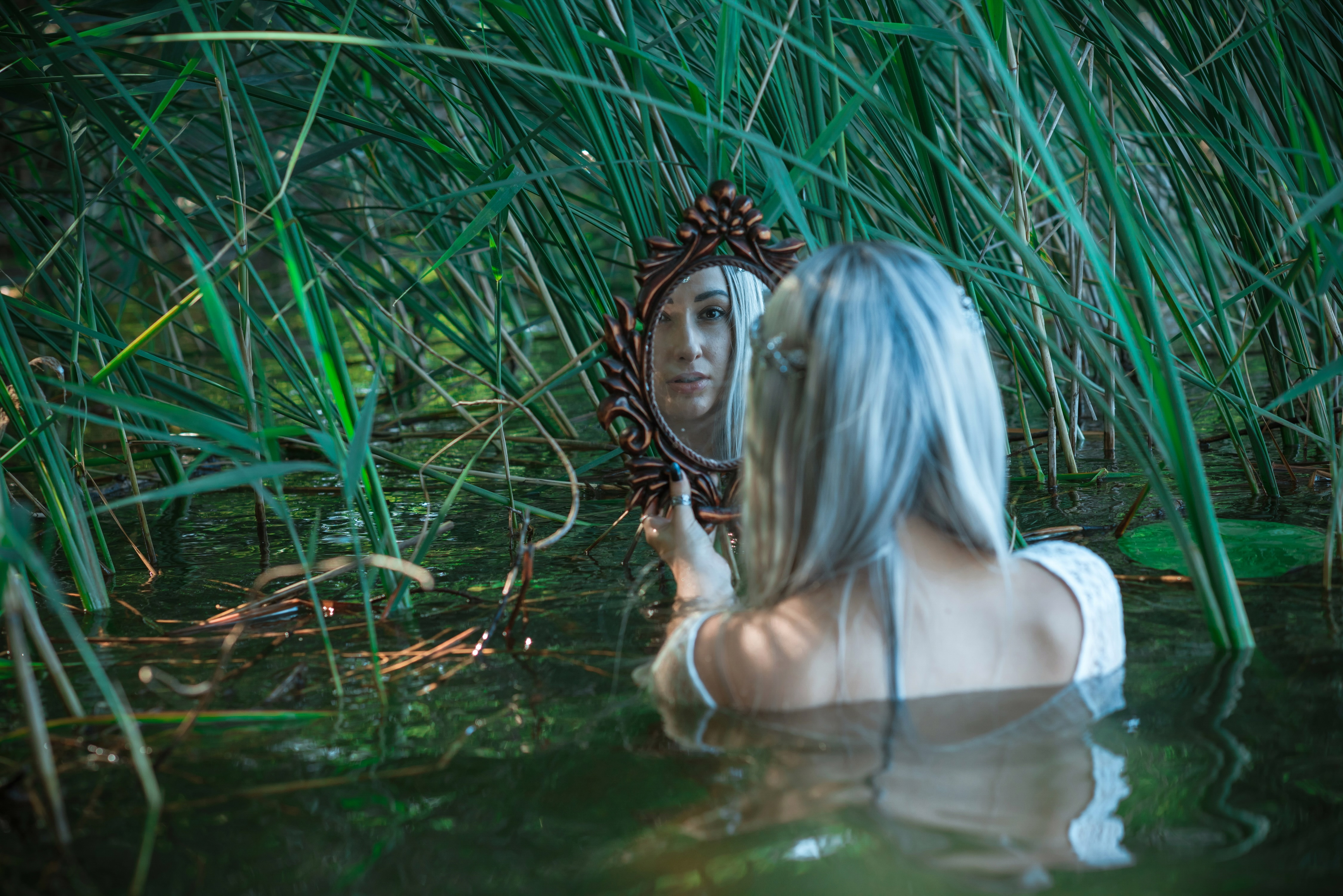
“The Trinkets” by Gilbert Keith Chesterton
A wandering world of rivers,
A wavering world of trees,
If the world grow dim and dizzy
With all changes and degrees,
It is but Our Lady’s mirror
Hung dreaming in its place,
Shining with only shadows
Till she wakes it with her face.
The standing whirlpool of the stars,
The wheel of all the world,
Is a ring on Our Lady’s finger
With the suns and moons empearled
With stars for stones to please her
Who sits playing with her rings
With the great heart that a woman has
And the love of little things.
Wings of the whirlwind of the world
From here to Ispahan,
Spurning the flying forests
Are light as Our Lady’s fan:
For all things violent here and vain
Lie open and all at ease
Where God has girded heaven to guard
Her holy vanities.
“The Monument Commonly Called Long Meg And Her Daughters, Near The River Eden” by William Wordsworth
A weight of awe, not easy to be borne,
Fell suddenly upon my Spirit cast
From the dread bosom of the unknown past,
When first I saw that family forlorn.
Speak Thou, whose massy strength and stature scorn
The power of years pre-eminent, and placed
Apart, to overlook the circle vast
Speak, Giant-mother! tell it to the Morn
While she dispels the cumbrous shades of Night;
Let the Moon hear, emerging from a cloud;
At whose behest uprose on British ground
That Sisterhood, in hieroglyphic round
Forth-shadowing, some have deemed, the infinite
The inviolable God, that tames the proud!
“The Stepping-Stones” by William Wordsworth
The struggling Rill insensibly is grown
Into a Brook of loud and stately march,
Crossed ever and anon by plank or arch;
And, for like use, lo! what might seem a zone
Chosen for ornament, stone matched with stone
In studied symmetry, with interspace
For the clear waters to pursue their race
Without restraint. How swiftly have they flown,
Succeeding, still succeeding! Here the Child
Puts, when the high-swoln Flood runs fierce and wild,
His budding courage to the proof; and here
Declining Manhood learns to note the sly
And sure encroachments of infirmity,
Thinking how fast time runs, life’s end how near!
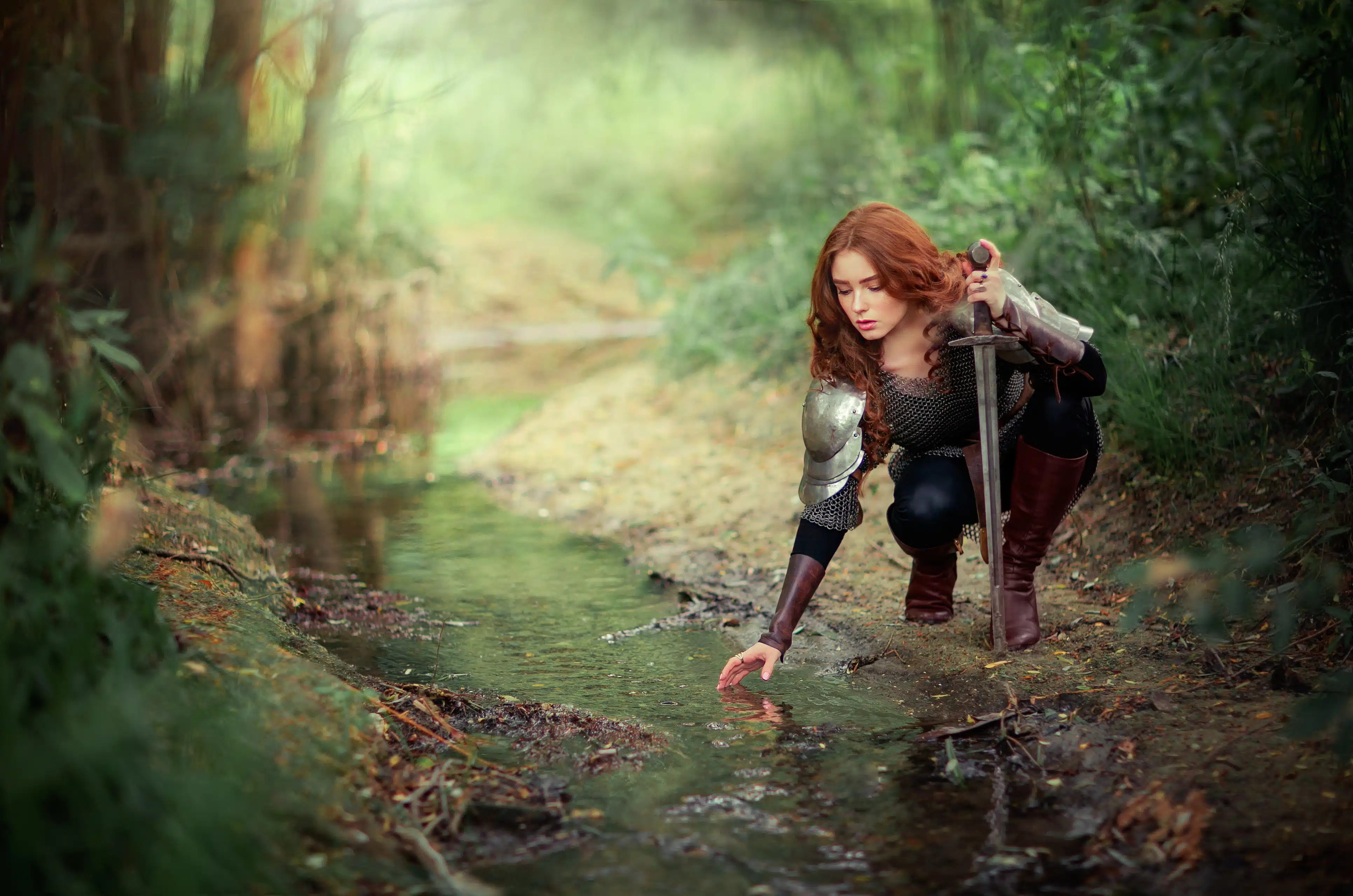
“To The River Avon” by Walter Savage Landor
Avon! why runnest thou away so fast?
Rest thee before that Chancel where repose
The bones of him whose spirit moves the world.
I have beheld thy birthplace, I have seen
Thy tiny ripples where they play amid
The golden cups and ever-waving blades.
I have seen mighty rivers, I have seen
Padus, recovered from his fiery wound,
And Tiber, prouder than them all to bear
Upon his tawny bosom men who crusht
The world they trod on, heeding not the cries
Of culprit kings and nations many-tongued.
What are to me these rivers, once adorn’d
With crowns they would not wear but swept away?
Worthier art thou of worship, and I bend
My knees upon thy bank, and call thy name,
And hear, or think I hear, thy voice reply.
“American Tradition” by William Wordsworth
Such fruitless questions may not long beguile
Or plague the fancy ‘mid the sculptured shows
Conspicuous yet where Oroonoko flows;
‘There’ would the Indian answer with a smile
Aimed at the White Man’s ignorance, the while,
Of the great waters telling how they rose,
Covered the plains, and, wandering where they chose,
Mounted through every intricate defile,
Triumphant, Inundation wide and deep,
O’er which his Fathers urged, to ridge and steep
Else unapproachable, their buoyant way;
And carved, on mural cliff’s undreaded side,
Sun, moon, and stars, and beast of chase or prey;
Whate’er they sought, shunned, loved, or deified!
“Whence That Low Voice?” by William Wordsworth
Whence that low voice? A whisper from the heart,
That told of days long past, when here I roved
With friends and kindred tenderly beloved;
Some who had early mandates to depart,
Yet are allowed to steal my path athwart
By Duddon’s side; once more do we unite,
Once more, beneath the kind Earth’s tranquil light;
And smothered joys into new being start.
From her unworthy seat, the cloudy stall
Of Time, breaks forth triumphant Memory;
Her glistening tresses bound, yet light and free
As golden locks of birch, that rise and fall
On gales that breathe too gently to recall
Aught of the fading year’s inclemency!
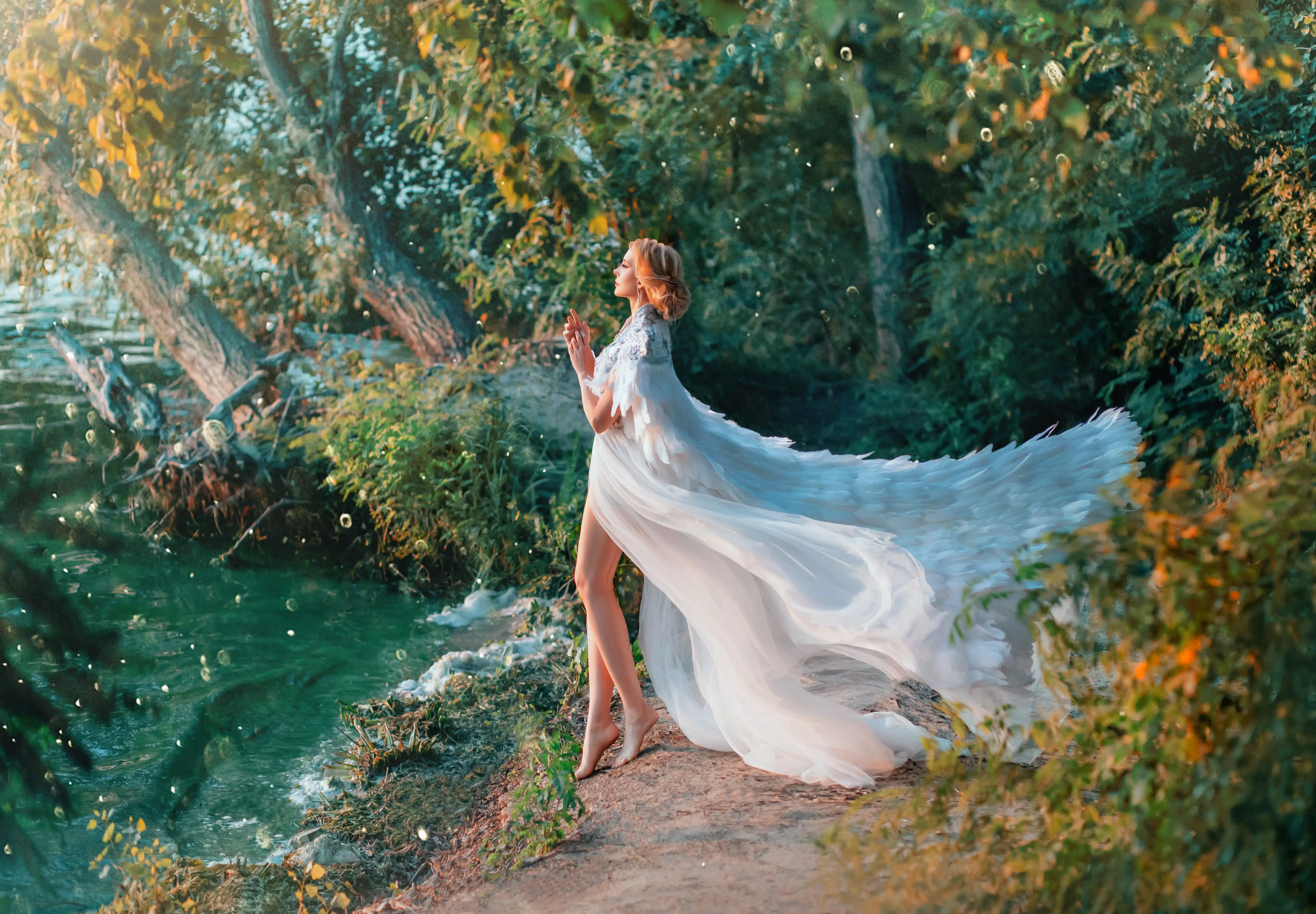
“On Revisiting the River Loddon” by Thomas Warton
Ah! what a weary race my feet have run
Since first I trod thy banks with alders crowned,
And thought my way was all through fairy ground,
Beneath thy azure sky and golden sun,—
Where first my muse to lisp her notes begun!
While pensive memory traces back the round
Which fills the varied interval between;
Much pleasure, more of sorrow, marks the scene.
Sweet native stream! those skies and suns so pure
No more return to cheer my evening road!
Yet still one joy remains, that not obscure
Nor useless, all my vacant days have flowed
From youth’s gay dawn to manhood’s prime mature,
Nor with the Muse’s laurel unbestowed.
“The Plain Of Donnerdale” by William Wordsworth
The old inventive Poets, had they seen,
Or rather felt, the entrancement that detains
Thy waters, Duddon! ‘mid these flowery plains
The still repose, the liquid lapse serene,
Transferred to bowers imperishably green,
Had beautified Elysium! But these chains
Will soon be broken; a rough course remains,
Rough as the past; where Thou, of placid mien,
Innocuous as a firstling of the flock,
And countenanced like a soft cerulean sky,
Shalt change thy temper; and, with many a shock
Given and received in mutual jeopardy,
Dance, like a Bacchanal, from rock to rock,
Tossing her frantic thyrsus wide and high!
“From This Deep Chasm” by William Wordsworth
From this deep chasm, where quivering sunbeams play
Upon its loftiest crags, mine eyes behold
A gloomy Niche, capacious, blank, and cold;
A concave free from shrubs and mosses grey;
In semblance fresh, as if, with dire affray,
Some Statue, placed amid these regions old
For tutelary service, thence had rolled,
Startling the flight of timid Yesterday!
Was it by mortals sculptured? weary slaves
Of slow endeavour! or abruptly cast
Into rude shape by fire, with roaring blast
Tempestuously let loose from central caves?
Or fashioned by the turbulence of waves,
Then, when o’er highest hills the Deluge passed?
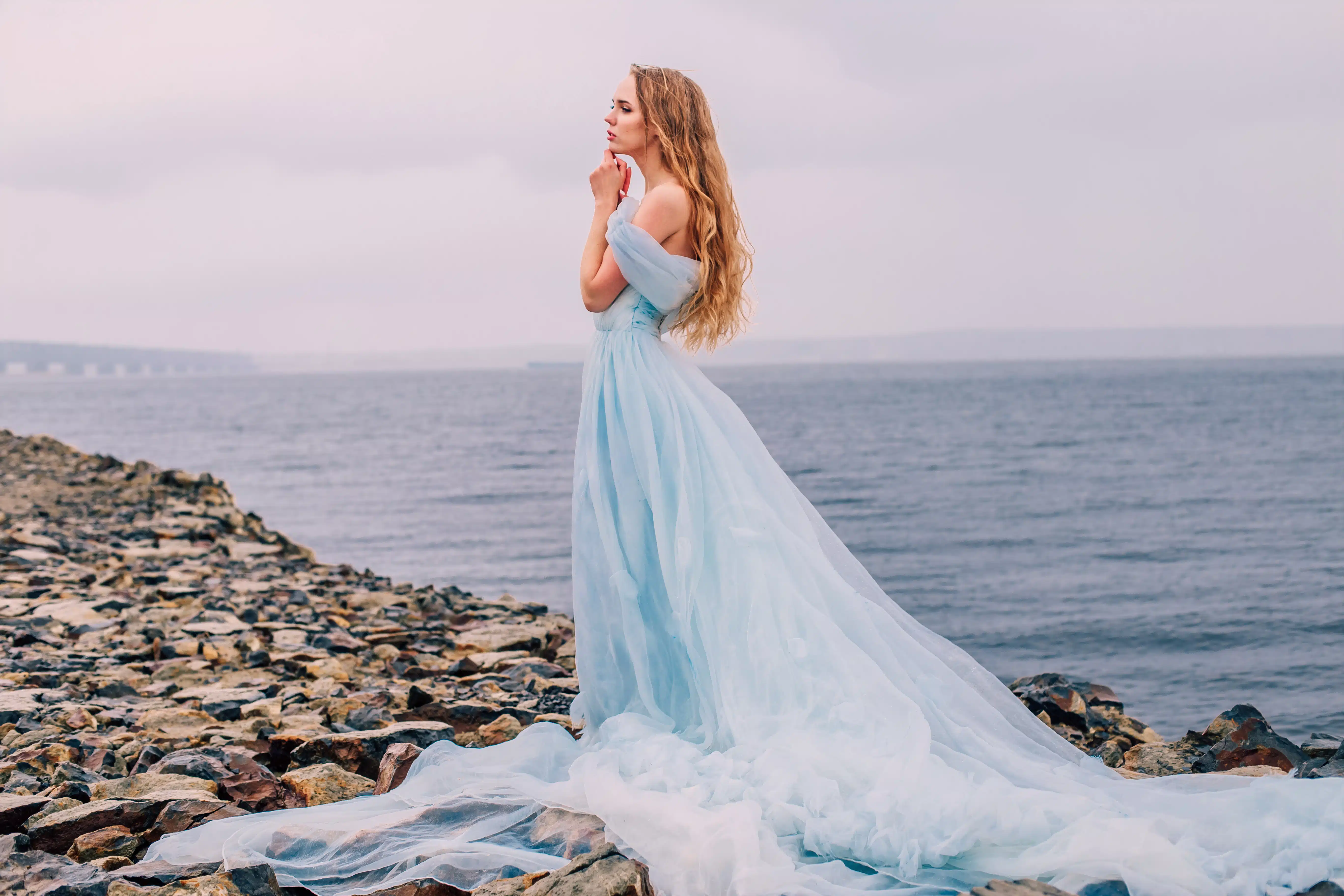
“To the River Otter” by Samuel Taylor Coleridge
Dear native brook! wild streamlet of the West!
How many various-fated years have past,
What happy, and what mournful hours, since last
I skimmed the smooth thin stone along thy breast,
Numbering its light leaps! yet so deep imprest
Sink the sweet scenes of childhood, that mine eyes
I never shut amid the sunny ray,
But straight with all their tints thy waters rise
Thy crossing-plank, thy marge with willows gray,
And bedded sand, that, veined with various dyes,
Gleamed through thy bright transparence! On my way
Visions of childhood! oft have ye beguiled
Lone manhood’s cares, yet waking fondest sighs:
Ah! that once more I were a careless child!
“To the River Tees” by Edmund Peel
Tees! if the wells we draw from shed no light,
Thou hast a voice to gladden thy green dale,
Till the rocks founder and the mountains fail.
Plunge, and roll on, in full harmonious might,
Based on primeval adamantine right!
Wind out, and reach, and murmur down the vale;
Or in a torrent, white as stony hail
Strike the deep caves of thunder, black as night,
Whose walls stand fast forever! What am I
Thy depths to fathom, or to wield thy force,
Or of thy shoals to babble, Various One?
We came alike from yonder equal sky.
Could I but run thy clear and sonorous course,
Rejoicing thousands, disappointing none!
“The Two Rivers” by Henry Wadsworth Longfellow
Slowly the hour-hand of the clock moves round;
So slowly that no human eye hath power
To see it move! Slowly in shine or shower
The painted ship above it, homeward bound,
Sails, but seems motionless, as if aground;
Yet both arrive at last; and in his tower
The slumberous watchman wakes and strikes the hour,
A mellow, measured, melancholy sound.
Midnight! the outpost of advancing day!
The frontier town and citadel of night!
The watershed of Time, from which the streams
Of Yesterday and To-morrow take their way,
One to the land of promise and of light,
One to the land of darkness and of dreams!
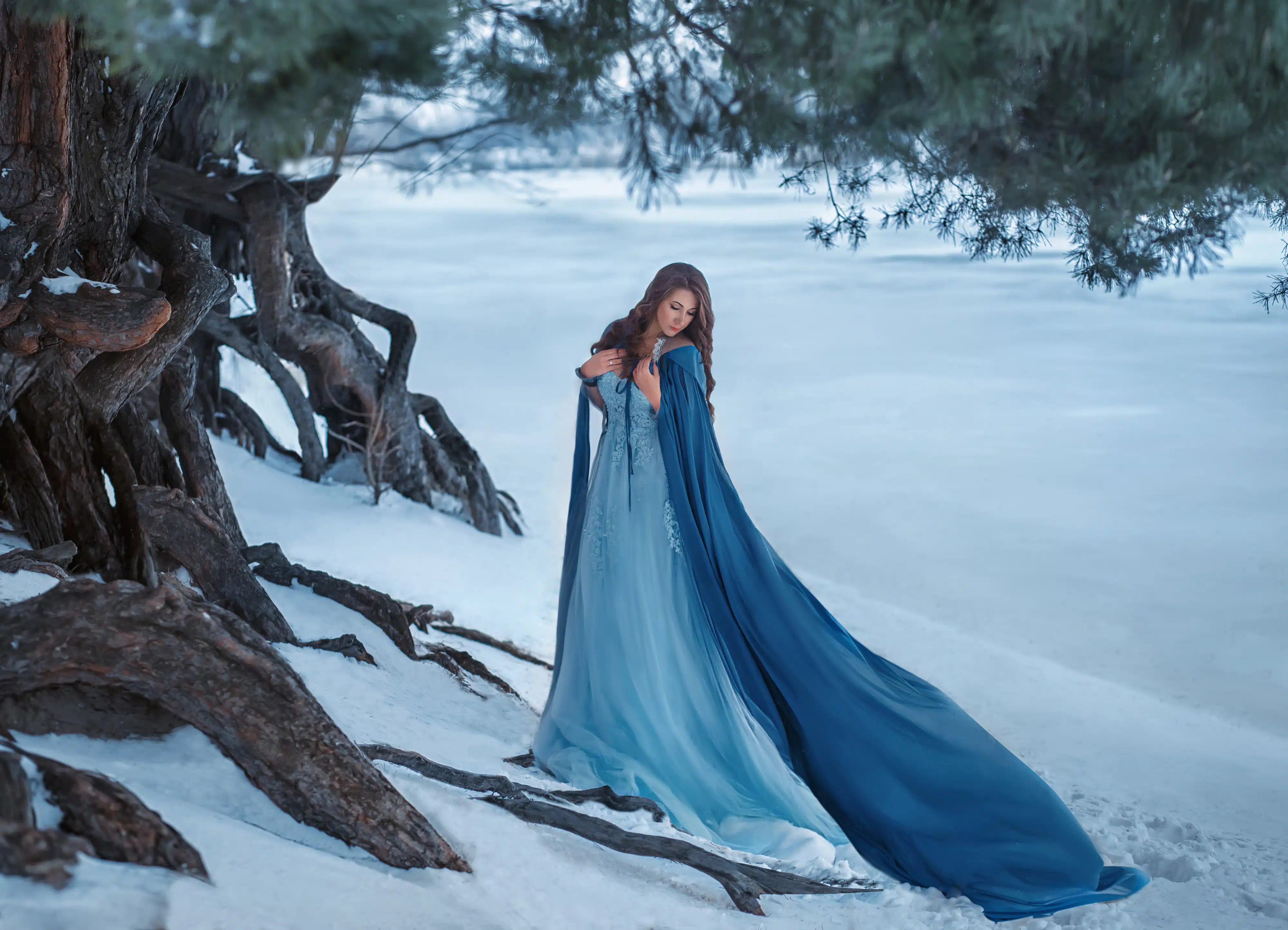
“River Snow” by Mark Van Doren
The flakes are a little thinner where I look,
For I can see a circle of grey shore,
And greyer water, motionless beyond.
But the other shore is gone, and right and left
Earth and sky desert me. Still I stand
And look at the dark circle that is there—
As if I were a man blinded with whiteness,
And one grey spot remained. The flakes descend,
Softly, without a sound that I can tell—
When out of the further white a gull appears,
Crosses the hollow place, and goes again…
There was no flap of wing; no feather fell.
But now I hear him crying, far away,
And think he may be wanting to return…
The flakes descend… And shall I see the bird?
Not one path is open through the snow.
“Down The River” by Henry Lawson
I’ve done with joys an’ misery,
An’ why should I repine?
There’s no one knows the past but me
An’ that ol’ dog o’ mine.
We camp an’ walk an’ camp an’ walk,
An’ find it fairly good;
He can do anything but talk,
An’ he wouldn’t if he could.
We sits an’ thinks beside the fire,
With all the stars a-shine,
An’ no one knows our thoughts but me
An’ that there dog o’ mine.
We has our Johnny-cake an’ ‘scrag,’
An’ finds ’em fairly good;
He can do anything but talk,
An’ he wouldn’t if he could.
He gets a ‘possum now an’ then,
I cooks it on the fire;
He has his water, me my tea,
What more could we desire?
He gets a rabbit when he likes,
We finds it pretty good;
He can do anything but talk,
An’ he wouldn’t if he could.
I has me smoke, he has his rest,
When sunset’s gettin’ dim;
An’ if I do get drunk at times,
It’s all the same to him.
So long’s he’s got me swag to mind,
He thinks that times is good;
He can do anything but talk,
An’ he wouldn’t if he could.
He gets his tucker from the cook,
For cook is good to him,
An’ when I sobers up a bit,
He goes an’ has a swim.
He likes the rivers where I fish,
An’ all the world is good;
He can do anything but talk,
An’ he wouldn’t if he could.
“To The River Itchin” by William Lisle Bowles
Itchin! when I behold thy banks again,
Thy crumbling margin, and thy silver breast,
On which the self-same tints still seem to rest,
Why feels my heart a shivering sense of pain!
Is it, that many a summer’s day has past
Since, in life’s morn, I carolled on thy side!
Is it, that oft since then my heart has sighed,
As Youth, and Hope’s delusive gleams, flew fast!
Is it, that those who gathered on thy shore,
Companions of my youth, now meet no more!
Whate’er the cause, upon thy banks I bend,
Sorrowing; yet feel such solace at my heart,
As at the meeting of some long-lost friend,
From whom, in happier hours, we wept to part.
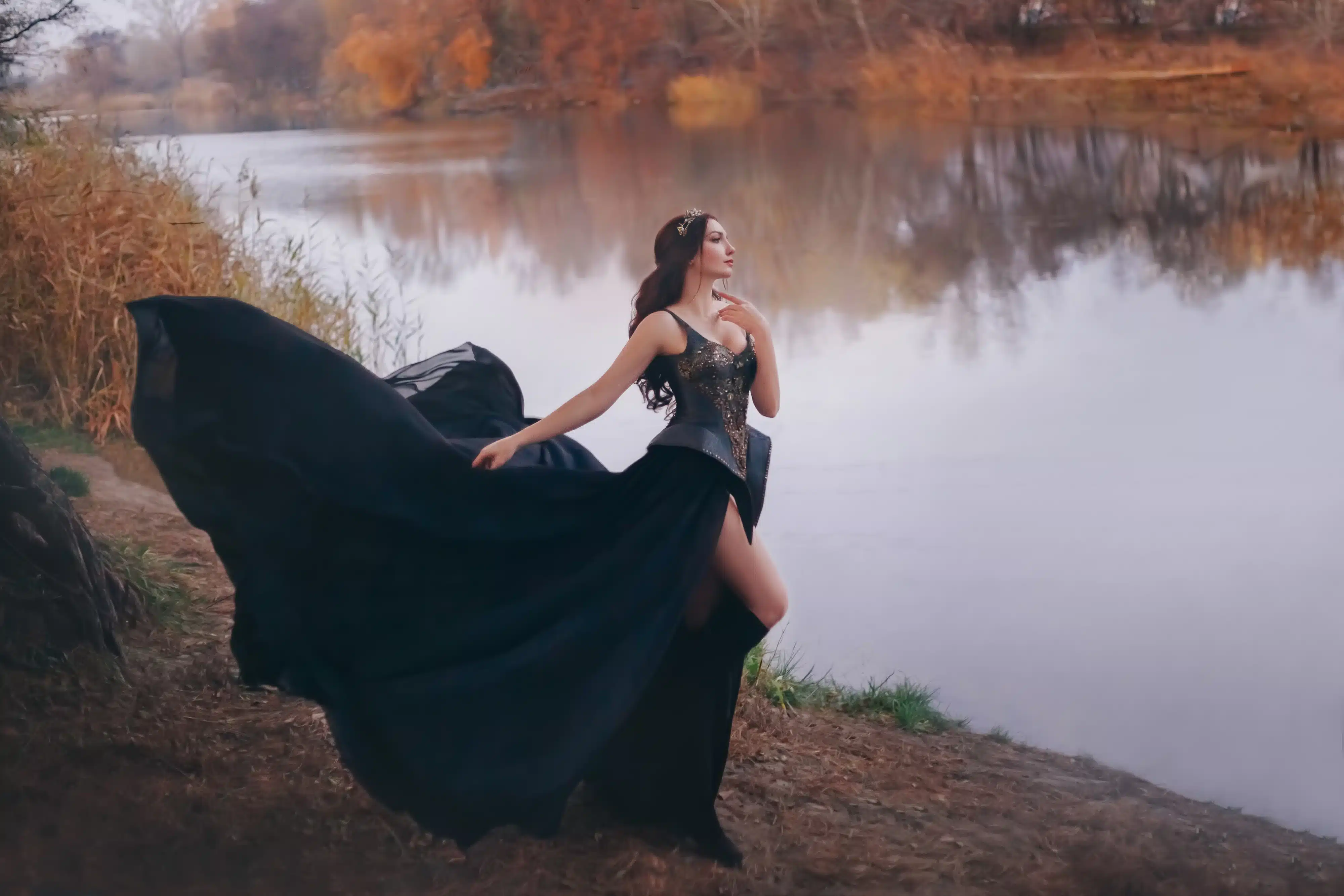
“The River” by Ella Wheeler Wilcox
I am a river flowing from God’s sea
Through devious ways. He mapped my course for me;
I cannot change it; mine alone the toil
To keep the waters free from grime and soil.
The winding river ends where it began;
And when my life has compassed its brief span
I must return to that mysterious source.
So let me gather daily on my course
The perfume from the blossoms as I pass,
Balm from the pines, and healing from the grass,
And carry down my current as I go
Not common stones but precious gems to show;
And tears (the holy water from sad eyes)
Back to God’s sea, from which all rivers rise
Let me convey, not blood from wounded hearts,
Nor poison which the upas tree imparts.
When over flowery vales I leap with joy,
Let me not devastate them, nor destroy,
But rather leave them fairer to the sight;
Mine be the lot to comfort and delight.
And if down awful chasms I needs must leap
Let me not murmur at my lot, but sweep
On bravely to the end without one fear,
Knowing that He who planned my ways stands near.
Love sent me forth, to Love I go again,
For Love is all, and over all. Amen.
“To The Avon” by Henry Wadsworth Longfellow
Flow on, sweet river! like his verse
Who lies beneath this sculptured hearse
Nor wait beside the churchyard wall
For him who cannot hear thy call.
Thy playmate once; I see him now
A boy with sunshine on his brow,
And hear in Stratford’s quiet street
The patter of his little feet.
I see him by thy shallow edge
Wading knee-deep amid the sedge;
And lost in thought, as if thy stream
Were the swift river of a dream.
He wonders whitherward it flows;
And fain would follow where it goes,
To the wide world, that shall erelong
Be filled with his melodious song.
Flow on, fair stream! That dream is o’er;
He stands upon another shore;
A vaster river near him flows,
And still he follows where it goes.
“The Tide River” by Charles Kingsley
Clear and cool, clear and cool,
By laughing shallow, and dreaming pool;
Cool and clear, cool and clear,
By shining shingle, and foaming wear;
Under the crag where the ouzel sings,
And the ivied wall where the church-bell rings,
Undefiled, for the undefiled;
Play by me, bathe in me, mother and child.
Dank and foul, dank and foul,
By the smoky town in its murky cowl;
Foul and dank, foul and dank,
By wharf and sewer and slimy bank;
Darker and darker the farther I go,
Baser and baser the richer I grow;
Who dare sport with the sin-defiled?
Shrink from me, turn from me, mother and child.
Strong and free, strong and free,
The floodgates are open, away to the sea.
Free and strong, free and strong,
Cleansing my streams as I hurry along
To the golden sands, and the leaping bar,
And the taintless tide that awaits me afar,
As I lose myself in the infinite main,
Like a soul that has sinned and is pardoned again.
Undefiled, for the undefiled;
Play by me, bathe in me, mother and child.

“Separation” by Edward Powys Mathers (As Translator)
As water runs in the river, so runs time;
And ever my eyes are wasted of her presence.
The red flowers of the second moon were yesterday;
To-day the earth has spots of blood, and there are no flowers.
The wild geese were harnessed to the autumn moon;
They have come, I heard their crying, and they are gone.
They have passed and given me no message;
I only hear the falling, falling noise of white rain.
“Sonnets: Idea LIII Another To The River Ankor” by Michael Drayton
Clear Ankor, on whose silver-sanded shore,
My soul-shrined saint, my fair Idea lives;
O bless’d brook, whose milk-white swans adore
Thy crystal stream, refin’d by her eyes,
Where sweet myrrh-breathing Zephyr in the spring
Gently distils his nectar-dropping showers,
Where nightingales in Arden sit and sing
Amongst the dainty dew-impearl’d flowers;
Say thus, fair brook, when thou shalt see thy queen,
“Lo, here thy shepherd spent his wand’ring years
And in these shades, dear nymph, he oft hath been;
And here to thee he sacrificed his tears.”
Fair Arden, thou my Tempe art alone,
And thou, sweet Ankor, art my Helicon!
“The River” by Ralph Waldo Emerson
And I behold once more
My old familiar haunts; here the blue river,
The same blue wonder that my infant eye
Admired, sage doubting whence the traveller came,—
Whence brought his sunny bubbles ere he washed
The fragrant flag-roots in my father’s fields,
And where thereafter in the world he went.
Look, here he is, unaltered, save that now
He hath broke his banks and flooded all the vales
With his redundant waves.
Here is the rock where, yet a simple child,
I caught with bended pin my earliest fish,
Much triumphing, —and these the fields
Over whose flowers I chased the butterfly,
A blooming hunter of a fairy fine.
And hark! where overhead the ancient crows
Hold their sour conversation in the sky:—
These are the same, but I am not the same,
But wiser than I was, and wise enough
Not to regret the changes, tho’ they cost
Me many a sigh. Oh, call not Nature dumb;
These trees and stones are audible to me,
These idle flowers, that tremble in the wind,
I understand their faery syllables,
And all their sad significance. The wind,
That rustles down the well-known forest road—
It hath a sound more eloquent than speech.
The stream, the trees, the grass, the sighing wind,
All of them utter sounds of ’monishment
And grave parental love.
They are not of our race, they seem to say,
And yet have knowledge of our moral race,
And somewhat of majestic sympathy,
Something of pity for the puny clay,
That holds and boasts the immeasurable mind.
I feel as I were welcome to these trees
After long months of weary wandering,
Acknowledged by their hospitable boughs;
They know me as their son, for side by side,
They were coeval with my ancestors,
Adorned with them my country’s primitive times,
And soon may give my dust their funeral shade.
Poems About Rivers and Love
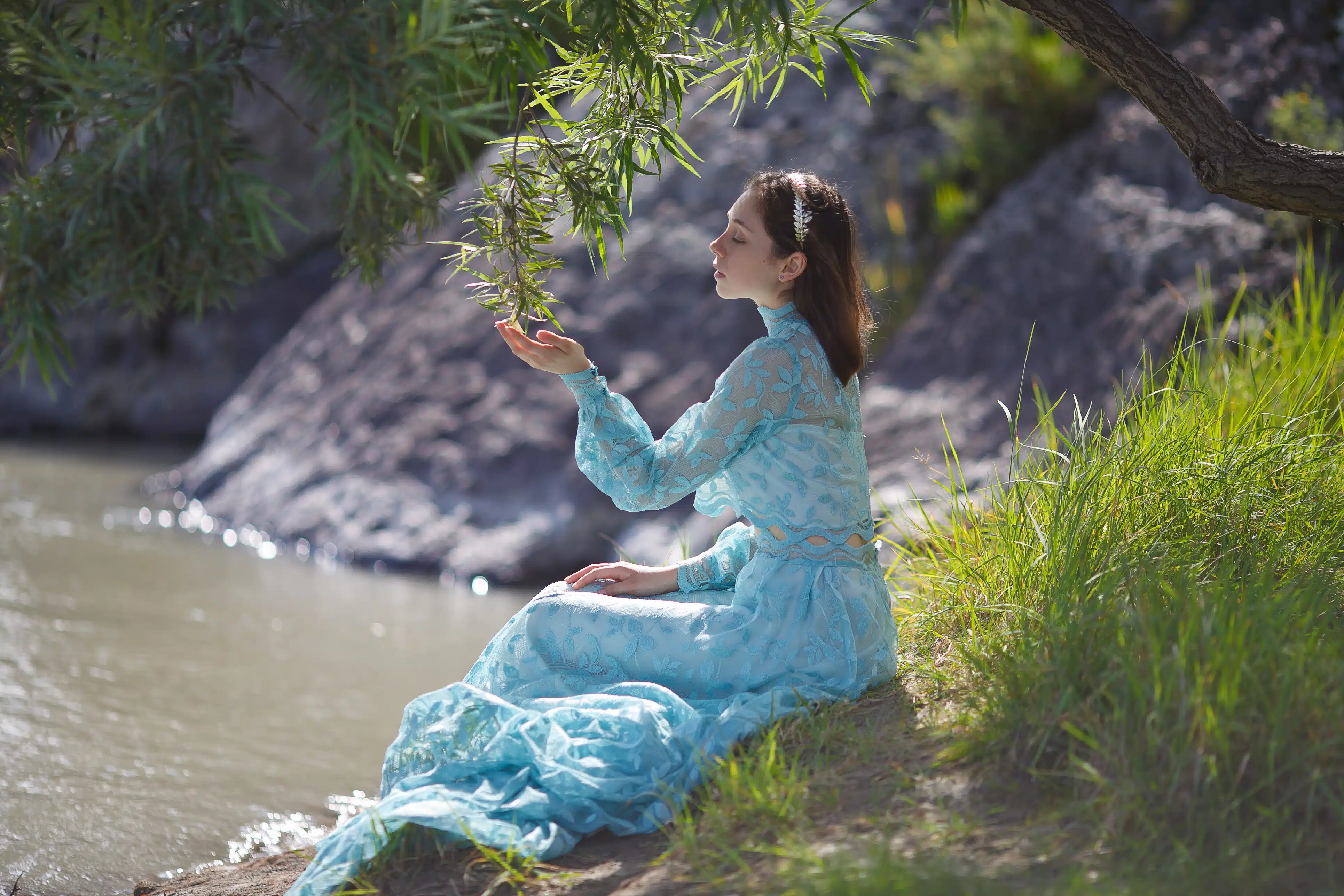
“To the River Yvette” by Henry Wadsworth Longfellow
O lovely river of Yvette!
O darling river! like a bride,
Some dimpled, bashful, fair Lisette,
Thou goest to wed the Orge’s tide.
Maincourt, and lordly Dampierre,
See and salute thee on thy way,
And, with a blessing and a prayer,
Ring the sweet bells of St. Forget.
The valley of Chevreuse in vain
Would hold thee in its fond embrace;
Thou glidest from its arms again
And hurriest on with swifter pace.
Thou wilt not stay; with restless feet,
Pursuing still thine onward flight,
Thou goest as one in haste to meet
Her sole desire, her heart’s delight.
O lovely river of Yvette!
O darling stream! on balanced wings
The wood-birds sang the chansonnette
That here a wandering poet sings.
“The River” by Matthew Arnold
Still glides the stream, slow drops the boat
Under the rustling poplars’ shade;
Silent the swans beside us float:
None speaks, none heeds—ah, turn thy head.
Let those arch eyes now softly shine,
That mocking mouth grow sweetly bland:
Ah, let them rest, those eyes, on mine;
On mine let rest that lovely hand.
My pent-up tears oppress my brain,
My heart is swoln with love unsaid:
Ah, let me weep, and tell my pain,
And on thy shoulder rest my head.
Before I die, before the soul,
Which now is mine, must re-attain
Immunity from my control,
And wander round the world again:
Before this teas’d o’erlabour’d heart
For ever leaves its vain employ,
Dead to its deep habitual smart,
And dead to hopes of future joy.
“Sunday up the River” by James Thomson
My love o’er the water bends dreaming;
It glideth and glideth away:
She sees there her own beauty, gleaming
Through shadow and ripple and spray.
O tell her, thou murmuring river,
As past her your light wavelets roll,
How steadfast that image for ever
Shines pure in pure depths of my soul.
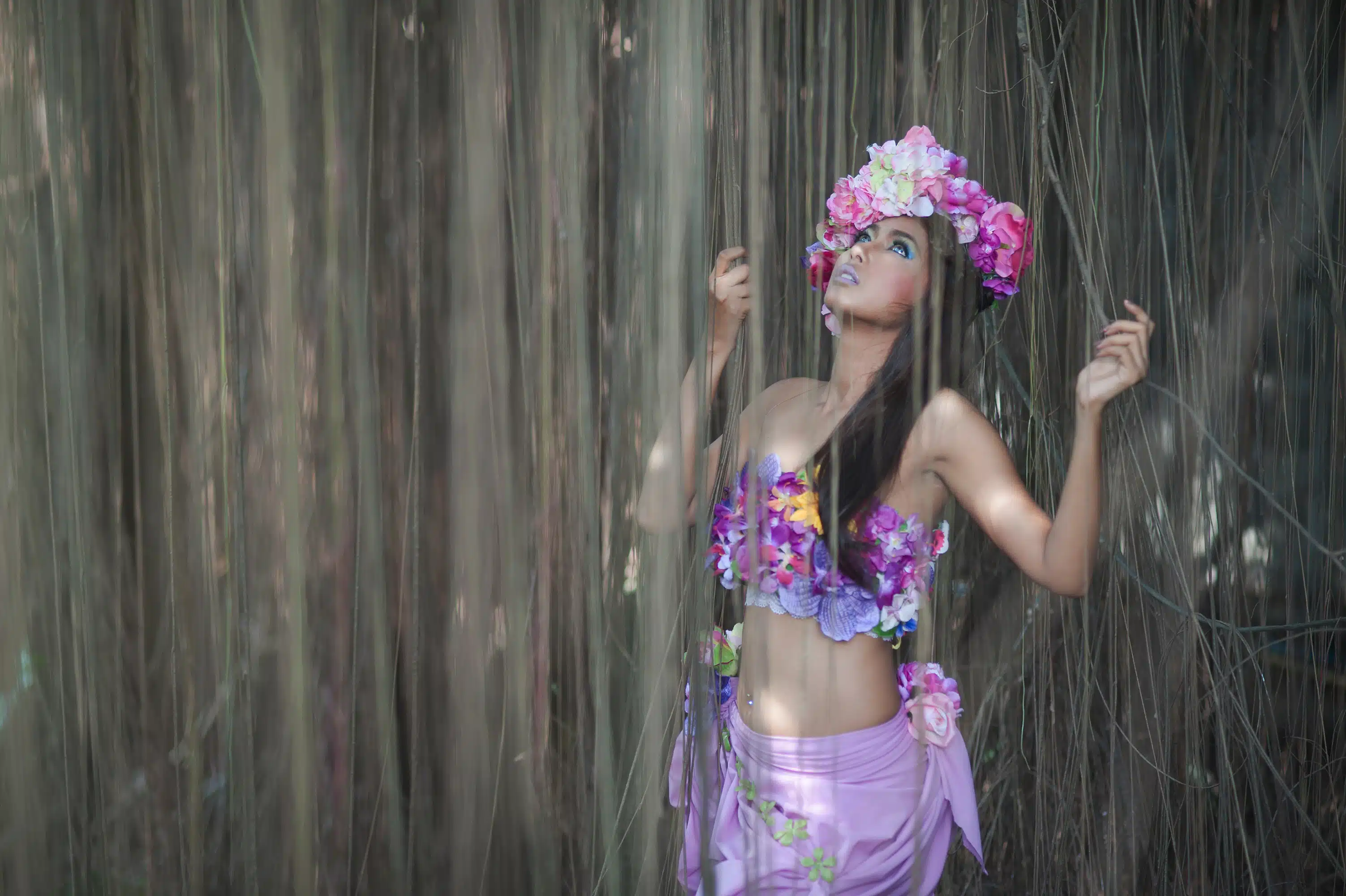
“An Indian Love Song” by Bertrand N. O. Walker
Light o’ the lodge, how I love thee,
Light o’ the lodge, how I love thee,
Mianza, my wild-wood fawn!
To wait and to watch for thy passing.
On hill-top I linger at dawn.
Glimmer of morn, how I love thee,
Glimmer of morn, how I love thee!
My flute to the ground now I fling,
As you tread the steep trail to the spring,
For thy coming has silenced my song.
Shimmer of moon on the river,
Sheen of soft star on the lake!
Moonlight and starlight are naught;
Their gleam and their glow is ne’er fraught
With such love-light as falls from thine eyes.
“Change Me, Some God” by William Wordsworth
“Change me, some God, into that breathing rose!”
The love-sick Stripling fancifully sighs,
The envied flower beholding, as it lies
On Laura’s breast, in exquisite repose;
Or he would pass into her bird, that throws
The darts of song from out its wiry cage;
Enraptured, could he for himself engage
The thousandth part of what the Nymph bestows;
And what the little careless innocent
Ungraciously receives. Too daring choice!
There are whose calmer mind it would content
To be an unculled floweret of the glen,
Fearless of plough and scythe; or darkling wren
That tunes on Duddon’s banks her slender voice.
“Love’s Philosophy” by Percy Bysshe Shelley
The fountains mingle with the river
And the rivers with the ocean,
The winds of heaven mix for ever
With a sweet emotion;
Nothing in the world is single,
All things by a law divine
In one another’s being mingle—
Why not I with thine?
See the mountains kiss high heaven,
And the waves clasp one another;
No sister-flower would be forgiven
If it disdain’d its brother;
And the sunlight clasps the earth,
And the moonbeams kiss the sea—
What are all these kissings worth,
If thou kiss not me?
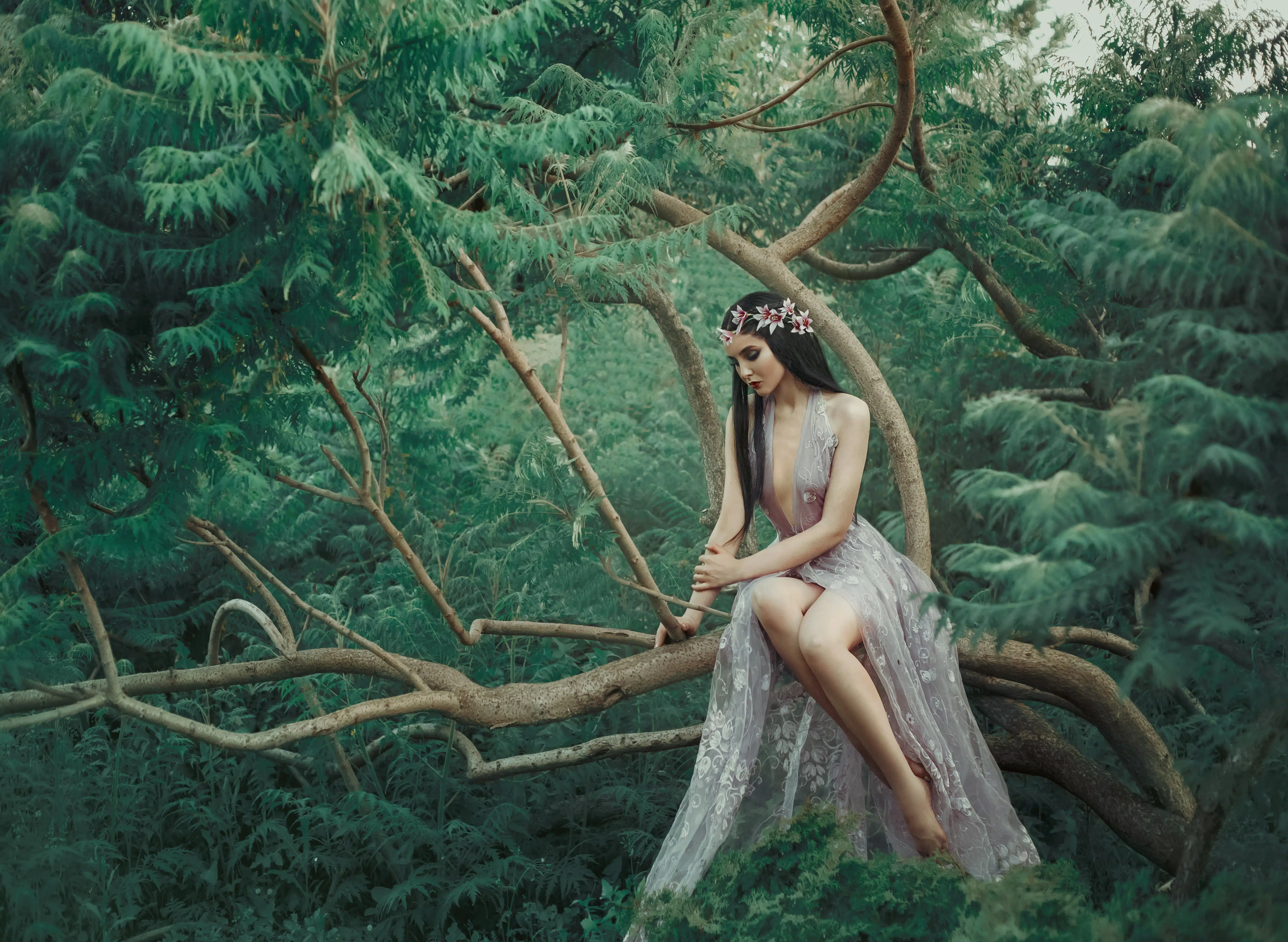
“Summer Sorrow” by Leonora Speyer
What shall meadow hold to please me,
Spreading wide its scented waving,
How shall quiet mosses ease me,
Or the night-wind cool my craving?
Hill and hedgerow, cloud-sweet sky,
Echo our good-by.
Bud unplucked and leaf a-quiver,
Bird that lifts a tuneless trilling,
Restless dream of brook and river,
All June’s cup a wasted spilling—
You and I so thirsty-hearted!—
“The Same Subject” by William Wordsworth
Not so that Pair whose youthful spirits dance
With prompt emotion, urging them to pass;
A sweet confusion checks the Shepherd-lass;
Blushing she eyes the dizzy flood askance;
To stop ashamed, too timid to advance;
She ventures once again, another pause!
His outstretched hand He tauntingly withdraws
She sues for help with piteous utterance!
Chidden she chides again; the thrilling touch
Both feel, when he renews the wished-for aid:
Ah! if their fluttering hearts should stir too much,
Should beat too strongly, both may be betrayed.
The frolic Loves, who, from yon high rock, see
The struggle, clap their wings for victory!
“Premonition” by Paul Laurence Dunbar
Dear heart, good-night!
Nay, list awhile that sweet voice singing
When the world is all so bright,
And the sound of song sets the heart a-ringing,
Oh, love, it is not right—
Not then to say, “Good-night.”
Dear heart, good-night!
The late winds in the lake weeds shiver,
And the spray flies cold and white.
And the voice that sings gives a telltale quiver—
“Ah, yes, the world is bright,
But, dearest heart, good-night!”
Dear heart, good-night!
And do not longer seek to hold me!
For my soul is in affright
As the fearful glooms in their pall enfold me.
See him who sang how white
And still; so, dear, good-night.
Dear heart, good-night!
Thy hand I’ll press no more forever,
And mine eyes shall lose the light;
For the great white wraith by the winding river
Shall check my steps with might.
So, dear, good-night, good-night!
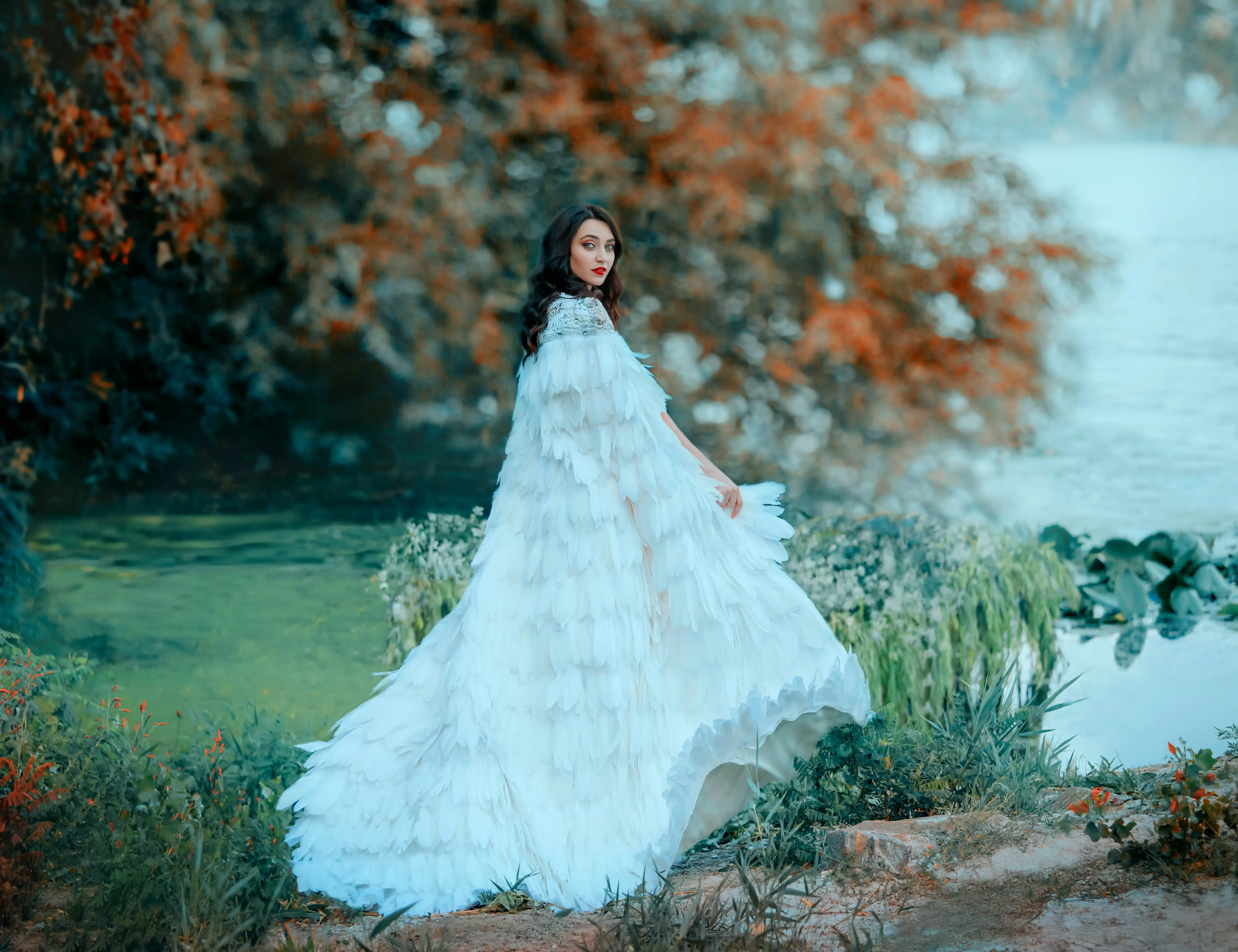
“Lethe” by H. D.
Nor skin nor hide nor fleece
Shall cover you,
Nor curtain of crimson nor fine
Shelter of cedar-wood be over you,
Nor the fir-tree
Nor the pine.
Nor sight of whin nor gorse
Nor river-yew,
Nor fragrance of flowering bush,
Nor wailing of reed-bird to waken you,
Nor of linnet,
Nor of thrush.
Nor word nor touch nor sight
Of lover, you
Shall long through the night but for this:
The roll of the full tide to cover you
Without question,
Without kiss.
“Paris” by Willa Cather
Behind the arch of glory sets the day;
The river lies in curves of silver light,
The Fields Elysian glitter in a spray
Of golden dust; the gilded dome is bright,
The towers of Notre Dame cut clean and gray
The evening sky, and pale from left to right
A hundred bridges leap from either quay.
Pillared with pride, the city of delight
Sits like an empress by her silver Seine,
Heavy with jewels, all her splendid dower
Flashing upon her, won from shore and main
By shock of combat, sacked from town and tower.
Wherever men have builded hall or fane
Red war hath gleaned for her and men have slain
To deck her loveliness. I feel again
That joy which brings her art to faultless flower,
That passion of her kings, who, reign on reign,
Arrayed her star by star with pride and power.
“Modern Love: XVIII” by George Meredith
Here Jack and Tomare are paired with Moll and Meg.
Curved open to the river-reach is seen
A country merry-making on the green.
Fair space for signal shakings of the leg.
That little screwy fiddler from his booth,
Whence flows one nut-brown stream, commands the joints
Of all who caper here at various points.
I have known rustic revels in my youth:
The May-fly pleasures of a mind at ease.
An early goddess was a country lass:
A charmed Amphion-oak she tripped the grass.
What life was that I lived? The life of these?
Heaven keep them happy! Nature they seem near.
They must, I think, be wiser than I am;
They have the secret of the bull and lamb.
’Tis true that when we trace its source, ’tis beer.
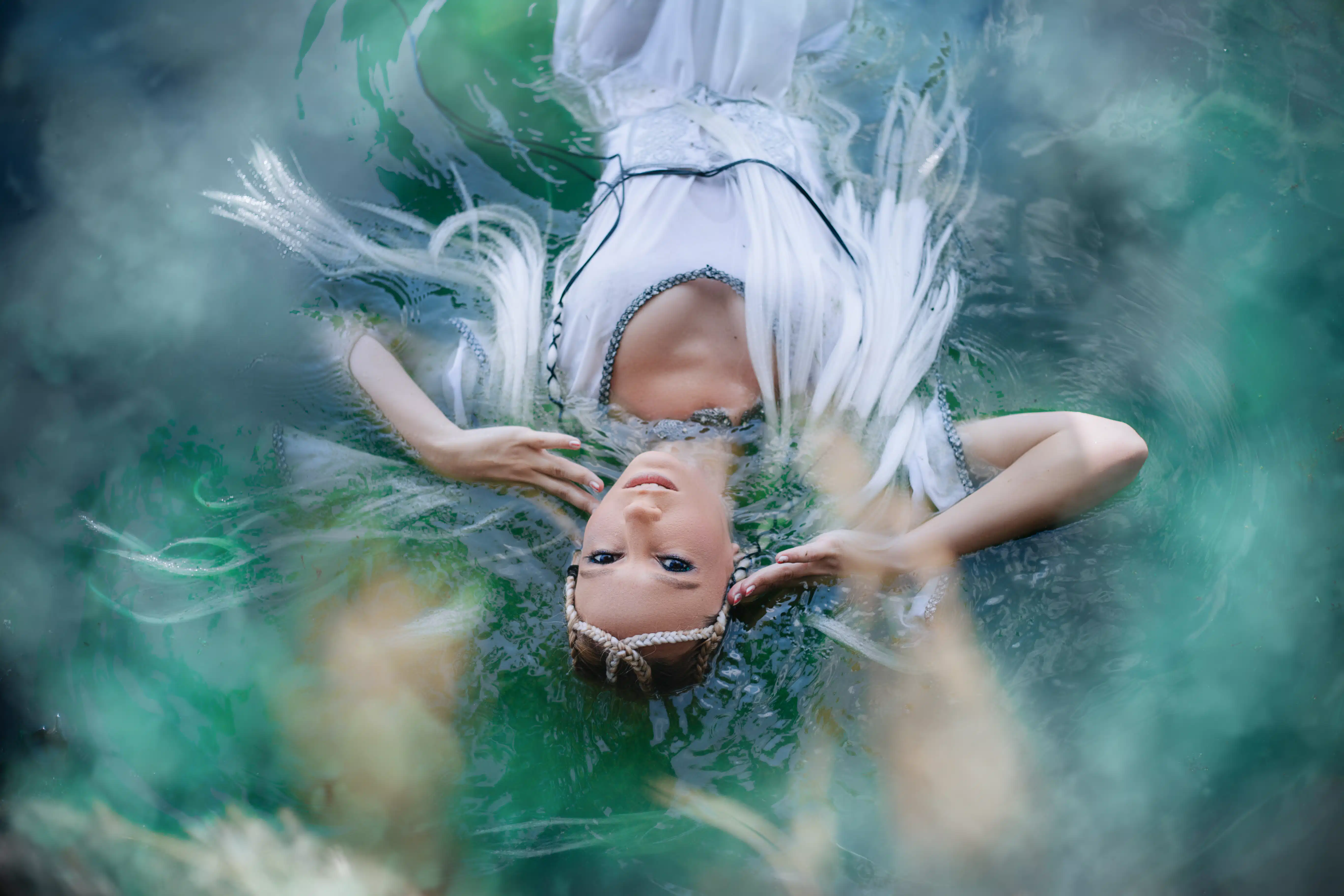
“Desert Pools” by Sara Teasdale
I love too much; I am a river
Surging with spring that seeks the sea,
I am too generous a giver,
Love will not stoop to drink of me.
His feet will turn to desert places
Shadowless, reft of rain and dew,
Where stars stare down with sharpened faces
From heavens pitilessly blue.
And there at midnight sick with faring
He will stoop down in his desire
To slake the thirst grown past all bearing
In stagnant water keen as fire.
“Rain” by Jean Starr Untermeyer
I have always hated the rain,
And the gloom of grayed skies.
But now I think I must always cherish
Rain-hung leaf and the misty river;
And the friendly screen of dripping green
Where eager kisses were shyly given
And your pipe-smoke made clouds in our damp, close heaven.
The curious laggard passed us by,
His wet shoes soughed on the shining walk.
And that afternoon was filled with a blurred glory—
That afternoon, when we first talked as lovers.
“Silence” by D. H. Lawrence
Since I lost you I am silence-haunted,
Sounds wave their little wings
A moment, then in weariness settle
On the flood that soundless swings.
Whether the people in the street
Like pattering ripples go by,
Or whether the theatre sighs and sighs
With a loud, hoarse sigh:
Or the wind shakes a ravel of light
Over the dead-black river,
Or night’s last echoing
Makes the daybreak shiver:
I feel the silence waiting
To take them all up again
In its vast completeness, enfolding
The sound of men.

“Confluents” by Christina Georgina Rossetti
As rivers seek the sea,
Much more deep than they,
So my soul seeks thee
Far away:
As running rivers moan
On their course alone
So I moan
Left alone.
As the delicate rose
To the sun’s sweet strength
Doth herself unclose,
Breadth and length:
So spreads my heart to thee
Unveiled utterly,
I to thee
Utterly.
As morning dew exhales
Sunwards pure and free,
So my spirit fails
After thee:
As dew leaves not a trace
On the green earth’s face;
I, no trace
On thy face.
Its goal the river knows,
Dewdrops find a way,
Sunlight cheers the rose
In her day:
Shall I, lone sorrow past,
Find thee at the last?
Sorrow past,
Thee at last?
“Bei Hennef” by D. H. Lawrence
The little river twittering in the twilight,
The wan, wondering look of the pale sky,
This is almost bliss.
And everything shut up and gone to sleep,
All the troubles and anxieties and pain
Gone under the twilight.
Only the twilight now, and the soft “Sh!” of the river
That will last forever.
And at last I know my love for you is here,
I can see it all, it is whole like the twilight,
It is large, so large, I could not see it before
Because of the little lights and flickers and interruptions,
Troubles, anxieties, and pains.
You are the call and I am the answer,
You are the wish, and I the fulfillment,
You are the night, and I the day.
What else—it is perfect enough,
It is perfectly complete,
You and I.
Strange, how we suffer in spite of this!
“Who Swerves From Innocence, Who Makes Divorce” by William Wordsworth
Who swerves from innocence, who makes divorce
Of that serene companion, a good name,
Recovers not his loss; but walks with shame,
With doubt, with fear, and haply with remorse:
And oft-times he who, yielding to the force
Of chance-temptation, ere his journey end,
From chosen comrade turns, or faithful friend
In vain shall rue the broken intercourse.
Not so with such as loosely wear the chain
That binds them, pleasant River! to thy side:
Through the rough copse wheel thou with hasty stride;
I choose to saunter o’er the grassy plain,
Sure, when the separation has been tried,
That we, who part in love, shall meet again.
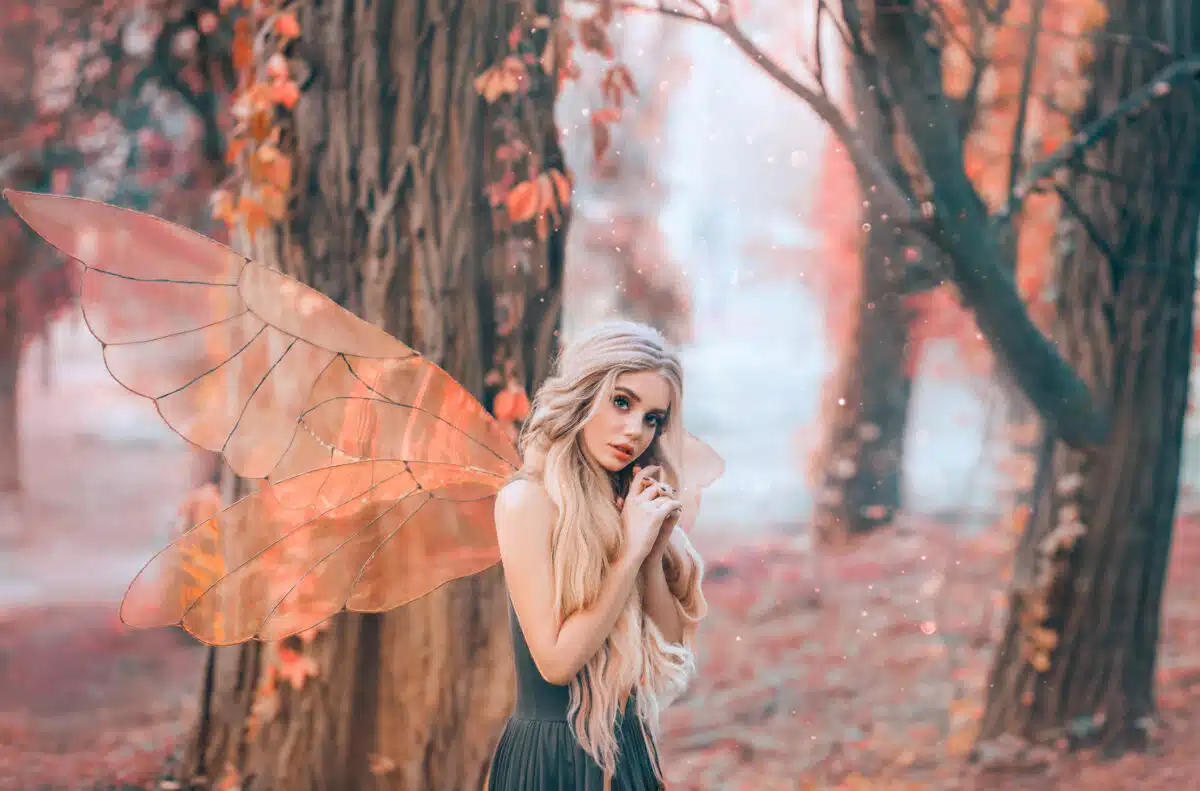
“Tradition” by William Wordsworth
A love-lorn Maid, at some far-distant time,
Came to this hidden pool, whose depths surpass
In crystal clearness Dian’s looking-glass;
And, gazing, saw that Rose, which from the prime
Derives its name, reflected, as the chime
Of echo doth reverberate some sweet sound:
The starry treasure from the blue profound
She longed to ravish; shall she plunge, or climb
The humid precipice, and seize the guest
Of April, smiling high in upper air?
Desperate alternative! what fiend could dare
To prompt the thought? Upon the steep rock’s breast
The lonely Primrose yet renews its bloom,
Untouched memento of her hapless doom!
“The Danube River” by Hamilton Aïdé
Do you recall that night in June,
Upon the Danube river?
We listen’d to a Ländler tune,
We watch’d the moonbeams quiver.
I oft since then have watch’d the moon,
But never, love, oh! never,
Can I forget that night in June,
Adown the Danube river.
Our boat kept measure with its oar,
The music rose in snatches,
From peasants dancing on the shore
With boisterous songs and catches.
I know not why that Ländler rang
Through all my soul—but never
Can I forget the songs they sang
Adown the Danube river.
“The River-Merchant’s Wife: A Letter” by Ezra Pound
While my hair was still cut straight across my forehead
I played about the front gate, pulling flowers.
You came by on bamboo stilts, playing horse;
You walked about my seat, playing with blue plums.
And we went on living in the village of Chokan:
Two small people, without dislike or suspicion.
At fourteen I married My Lord you.
I never laughed, being bashful.
Lowering my head, I looked at the wall.
Called to, a thousand times, I never looked back.
At fifteen I stopped scowling,
I desired my dust to be mingled with yours
Forever and forever, and forever.
Why should I climb the look-out?
At sixteen you departed,
You went into far Ku-to-Yen, by the river of swirling eddies,
And you have been gone five months.
The monkeys make sorrowful noise overhead.
You dragged your feet when you went out.
By the gate now, the moss is grown, the different mosses,
Too deep to clear them away
The leaves fall early this autumn, in wind.
The paired butterflies are already yellow with August
Over the grass in the west garden—
They hurt me.
I grow older.
If you are coming down through the narrows of the river,
Please let me know beforehand,
And I will come out to meet you, As far as Cho-fu-Sa.
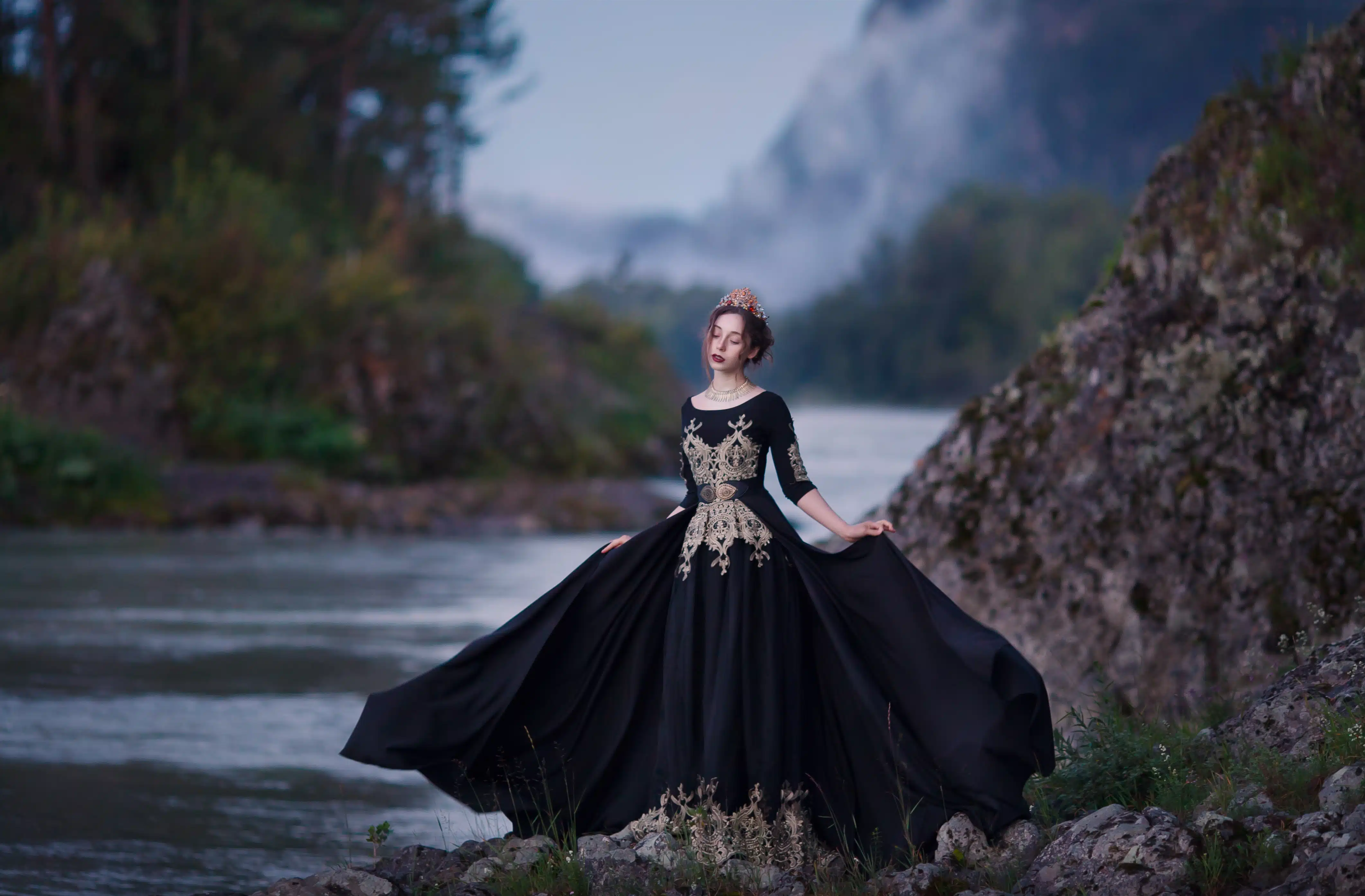
“To The River Derwent” by William Wordsworth
Among the mountains were we nursed, loved Stream
Thou near the eagle’s nest, within brief sail,
I, of his bold wing floating on the gale,
Where thy deep voice could lull me! Faint the beam
Of human life when first allowed to gleam
On mortal notice. Glory of the vale,
Such thy meek outset, with a crown, though frail,
Kept in perpetual verdure by the steam
Of thy soft breath! Less vivid wreath entwined
Nemaean victor’s brow; less bright was worn,
Meed of some Roman chief, in triumph borne
With captives chained; and shedding from his car
The sunset splendours of a finished war
Upon the proud enslavers of mankind!
“To The River” by Edgar Allan Poe
Fair river! in thy bright, clear flow
Of crystal, wandering water,
Thou art an emblem of the glow
Of beauty, the unhidden heart,
The playful maziness of art
In old Alberto’s daughter;
But when within thy wave she looks,
Which glistens then, and trembles,
Why, then, the prettiest of brooks
Her worshiper resembles;
For in his heart, as in thy stream,
Her image deeply lies,
His heart which trembles at the beam
Of her soul-searching eyes.
“The Little Woman Of Clear River” by Edward Powys Mathers (As Translator)
Clear River twists nine times about
Clear River; but so deep
That none can see the green sand.
You hear the birds about Clear River:
Dik, dik, dik, dik, Diu dik.
A little woman with jade eyes
Leans on the wall of a pavilion.
She has the moonrise in her heart
And the singing of love songs
Comes to her up the river.
She stands and dreams for me
Outside the house by the bamboo door.
In a minute
I will leave my shadow
And talk to her of poetry and love.

“Flow On, Thou Shining River.” by Thomas Moore
Flow on, thou shining river;
But ere thou reach the sea
Seek Ella’s bower and give her
The wreaths I fling o’er thee
And tell her thus, if she’ll be mine
The current of our lives shall be,
With joys along their course to shine,
Like those sweet flowers on thee.
But if in wandering thither
Thou find’st she mocks my prayer,
Then leave those wreaths to wither
Upon the cold bank there;
And tell her thus, when youth is o’er,
Her lone and loveless Charms shall be
Thrown by upon life’s weedy shore.
Like those sweet flowers from thee.
“River Bend” by Banjo Paterson (Andrew Barton)
At River Bend, in New South Wales,
All alone among the whales,
Busting up some post and rails,
Sweet Belle Mahone.
In the blazing sun we stand,
Cabbage-tree hat, black velvet band,
Moleskins stiff with sweat and sand,
Sweet Belle Mahone.
Chorus: Sweet Belle Mahone, &c.
In the burning sand we pine,
No one asks us to have a wine,
‘Tis a jolly crooked line,
Sweet Belle Mahone.
When I am sitting on a log,
Looking like a great big frog,
Waiting for a Murray cod,
Sweet Belle Mahone.
Land of snakes and cockatoos,
Native bears and big emus,
Ugly blacks and kangaroos,
Sweet Belle Mahone.
Paddymelons by the score,
Wild bulls, you should hear them roar,
They all belong to Johnny Dore,
Sweet Belle Mahone.
Poems About Rivers and Death

“Carl Hamblin” by Edgar Lee Masters
The press of the Spoon River Clarion was wrecked,
And I was tarred and feathered,
For publishing this on the day the Anarchists were hanged in Chicago:
“I saw a beautiful woman with bandaged eyes
Standing on the steps of a marble temple.
Great multitudes passed in front of her,
Lifting their faces to her imploringly.
In her left hand she held a sword.
She was brandishing the sword,
Sometimes striking a child, again a laborer,
Again a slinking woman, again a lunatic.
In her right hand she held a scale;
Into the scale pieces of gold were tossed
By those who dodged the strokes of the sword.
A man in a black gown read from a manuscript:
‘She is no respecter of persons.’
Then a youth wearing a red cap
Leaped to her side and snatched away the bandage.
And lo, the lashes had been eaten away
From the oozy eye-lids;
The eye-balls were seared with a milky mucus;
The madness of a dying soul
Was written on her face—
But the multitude saw why she wore the bandage.”
“Aaron Hatfield” by Edgar Lee Masters
Better than granite, Spoon River,
Is the memory-picture you keep of me
Standing before the pioneer men and women
There at Concord Church on Communion day.
Speaking in broken voice of the peasant youth
Of Galilee who went to the city
And was killed by bankers and lawyers;
My voice mingling with the June wind
That blew over wheat fields from Atterbury;
While the white stones in the burying ground
Around the Church shimmered in the summer sun.
And there, though my own memories
Were too great to bear, were you, O pioneers,
With bowed heads breathing forth your sorrow
For the sons killed in battle and the daughters
And little children who vanished in life’s morning,
Or at the intolerable hour of noon.
But in those moments of tragic silence,
When the wine and bread were passed,
Came the reconciliation for us—
Us the ploughmen and the hewers of wood,
Us the peasants, brothers of the peasant of Galilee—
To us came the Comforter
And the consolation of tongues of flame!
“E. C. Culbertson” by Edgar Lee Masters
Is it true, Spoon River,
That in the hall-way of the New Court House
There is a tablet of bronze
Containing the embossed faces
Of Editor Whedon and Thomas Rhodes?
And is it true that my successful labors
In the County Board, without which
Not one stone would have been placed on another,
And the contributions out of my own pocket
To build the temple, are but memories among the people,
Gradually fading away, and soon to descend
With them to this oblivion where I lie?
In truth, I can so believe.
For it is a law of the Kingdom of Heaven
That whoso enters the vineyard at the eleventh hour
Shall receive a full day’s pay.
And it is a law of the Kingdom of this World
That those who first oppose a good work
Seize it and make it their own,
When the corner-stone is laid,
And memorial tablets are erected.
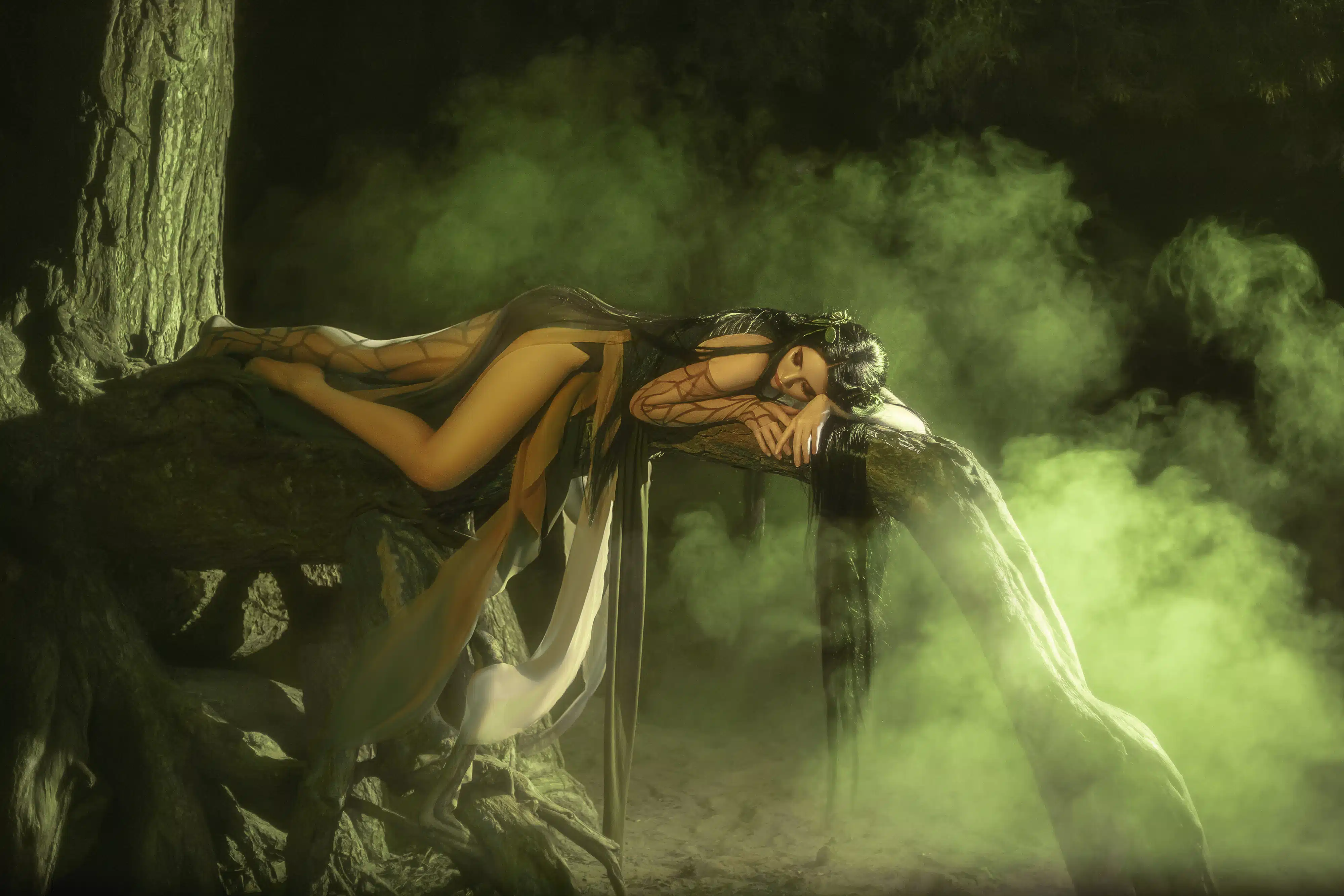
“In Memory of Colonel Charles Young” by Countee Cullen
Along the shore the tall, thin grass
That fringes that dark river,
While sinuously soft feet pass,
Begins to bleed and quiver.
The great dark voice breaks with a sob
Across the womb of night;
Above your grave the tom-toms throb,
And the hills are weird with light.
The great dark heart is like a well
Drained bitter by the sky,
And all the honeyed lies they tell
Come there to thirst and die.
No lie is strong enough to kill
The roots that work below;
From your rich dust and slaughtered will
A tree with tongues will grow.
“Richard Bone” by Edgar Lee Masters
When I first came to Spoon River
I did not know whether what they told me
Was true or false.
They would bring me the epitaph
And stand around the shop while I worked
And say “He was so kind,” “He was wonderful,”
“She was the sweetest woman,” “He was a consistent Christian.”
And I chiseled for them whatever they wished,
All in ignorance of its truth.
But later, as I lived among the people here,
I knew how near to the life
Were the epitaphs that were ordered for them as they died.
But still I chiseled whatever they paid me to chisel
And made myself party to the false chronicles
Of the stones,
Even as the historian does who writes
Without knowing the truth,
Or because he is influenced to hide it.
“Riverside” by John Myers O’Hara
Across the slopes whose wooded spaces hide
The Hudson’s sweep, rising more royal than
Above the Tiber that of Hadrian,
A tomb looms domed and dim o’er dusk and tide;
All dreams of alien beauty that abide,
The memory of lands beyond the span
Of seas that sing the deeds of god and man,
May reinspire the soul on Riverside.
And now the mists are falling on the far
Wide silver of the river, and a star
Burns in the pines that crown the Palisades.
Slowly the final streak of sunlight fades,
And Claremont, with the lamps against its white,
Shines like a limpid jewel in the night.
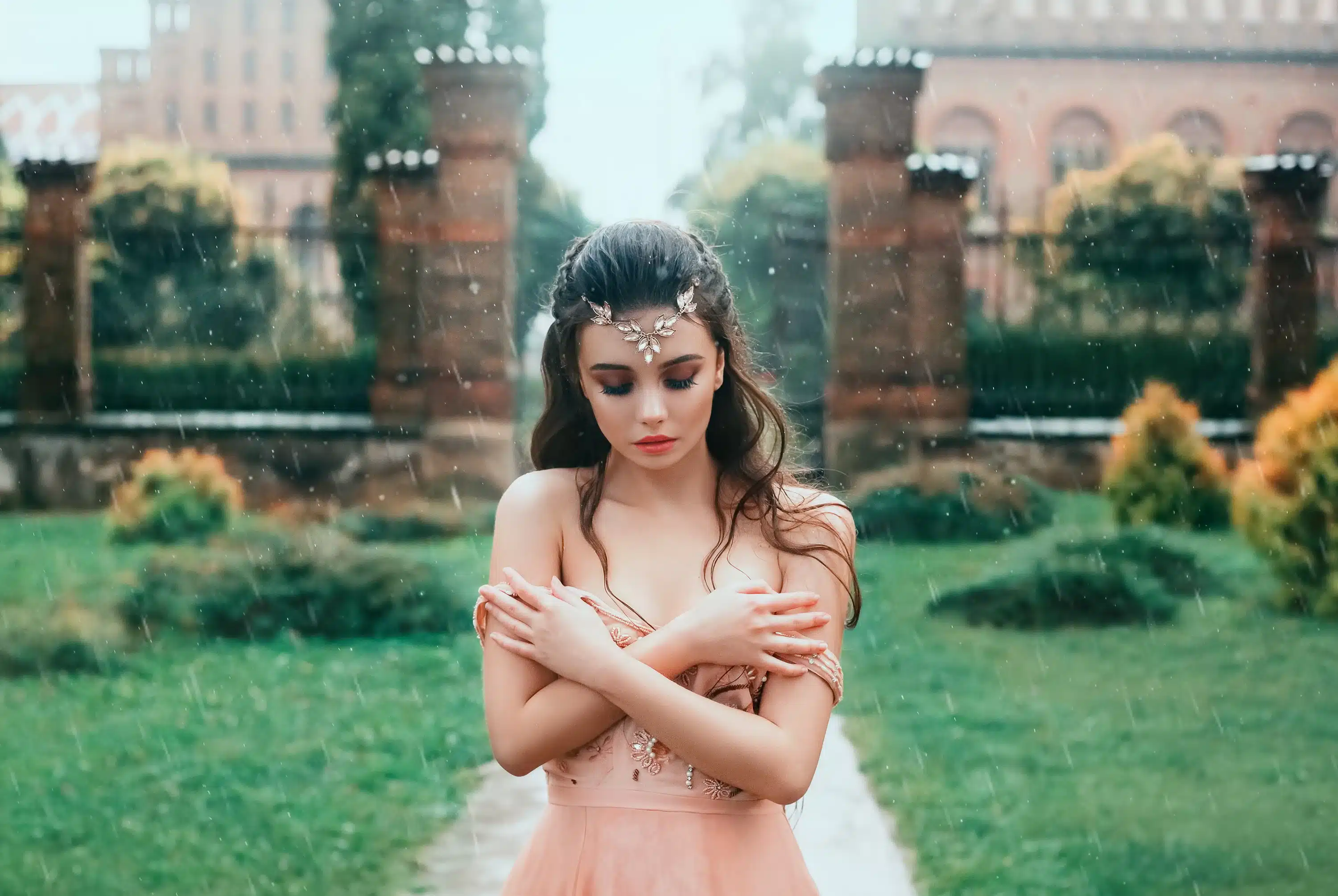
“Shards” by Aline Murray Kilmer
I can never remake the thing I have destroyed;
I brushed the golden dust from the moth’s bright wing,
I called down wind to shatter the cherry-blossoms,
I did a terrible thing.
I feared that the cup might fall, so I flung it from me;
I feared that the bird might fly, so I set it free;
I feared that the dam might break, so I loosed the river:
May its waters cover me.
“By the Rivers of Babylon We Sat Down and Wept” by Lord Byron
We sat down and wept by the waters
Of Babel, and thought of the day
When our foe, in the hue of his slaughters,
Made Salem’s high places his prey,
And ye, O her desolate daughters!
Were scatter’d all weeping away.
While sadly we gazed on the river
Which roll’d on in freedom below,
They demanded the song; but, oh, never
That triumph the stranger shall know!
May this right hand be wither’d for ever,
Ere it string our high harp for the foe!
On the willow that harp is suspended,
O Salem! its sound should be free;
And the hour when thy glories were ended
But left me that token of thee;
And ne’er shall its soft tones be blended
With the voice of the spoiler by me!
“Never Enough of Living” by Léonie Adams
Never, my heart, is there enough of living,
Since only in thee is loveliness so sweet pain;
Only for thee the willows will be giving
Their quiet fringes to the dreaming river;
Only for thee so the light grasses ever
Are hollowed by the print of windy feet,
And breathe hill weather on the misty plain;
And were no rapture of them in thy beat,
For every hour of sky
Stillborn in gladness would the waters wear
Colors of air translucently,
And the stars sleep there.
Gently, my heart, nor let one moment ever
Be spilled from the brief fullness of thine urn.
Plunge in its exultation star and star,
Sea and plumed sea in turn.
O still, my heart, nor spill this moment ever.
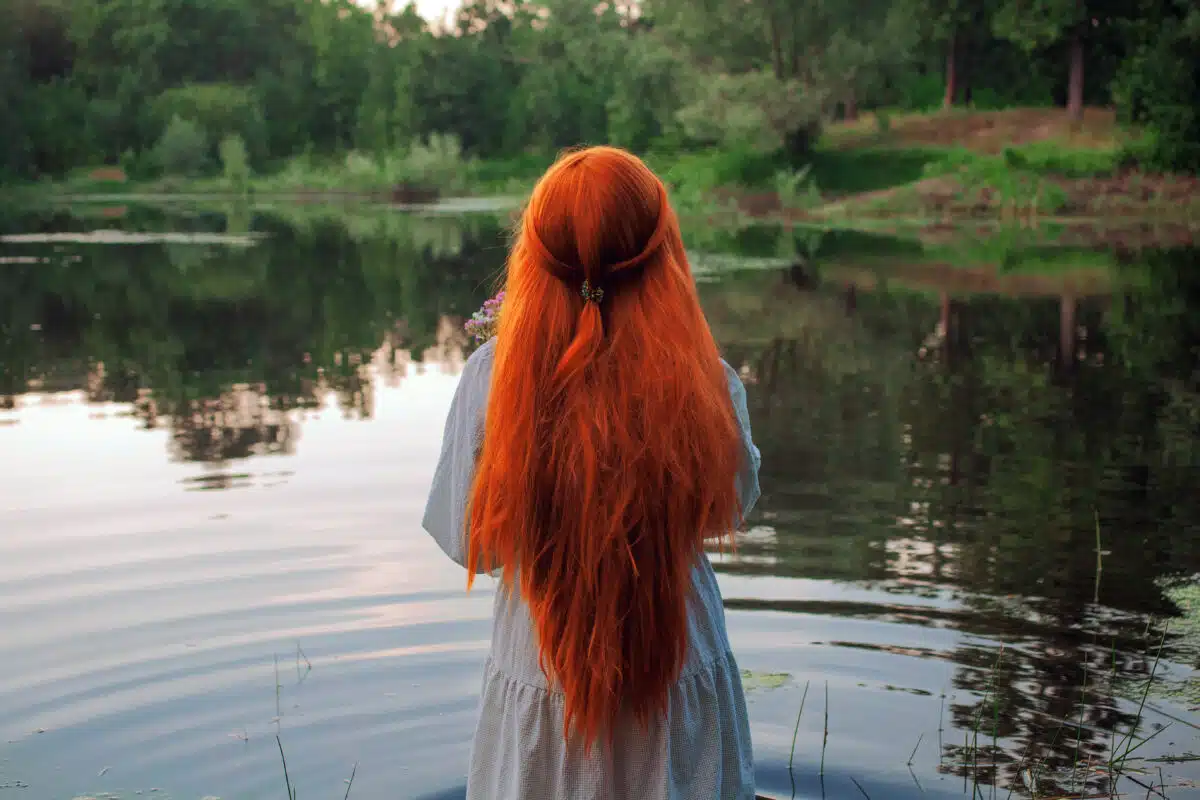
“To the River Cherwell, Oxford” by William Lisle Bowles
Cherwell! how pleased along thy willowed hedge
Erewhile I strayed, or when the morn began
To tinge the distant turret’s gleamy fan,
Or evening glimmered o’er the sighing sedge!
And now reposing on thy banks once more,
I bid the pipe farewell, and that sad lay
Whose music on my melancholy way
I wooed: amid thy waving willows hoar
Seeking awhile to rest,—till the bright sun
Of joy return, as when Heaven’s beauteous bow
Beams on the night-storm’s passing wings below:
Whate’er betide, yet something have I won
Of solace, that may bear me on serene,
Till Eve’s last hush shall close the silent scene.
“To R.W.E.” by Emma Lazarus
As when a father dies, his children draw
About the empty hearth, their loss to cheat
With uttered praise & love, & oft repeat
His all-familiar words with whispered awe.
The honored habit of his daily law,
Not for his sake, but theirs whose feeble feet
Need still that guiding lamp, whose faith, less sweet,
Misses that tempered patience without flaw,
So do we gather round thy vacant chair,
In thine own elm-roofed, amber-rivered town,
Master & Father! For the love we bear,
Not for thy fame’s sake, do we weave this crown,
And feel thy presence in the sacred air,
Forbidding us to weep that thou art gone.
“Winter Heavens” by George Meredith
Sharp is the night, but stars with frost alive
Leap off the rim of earth across the dome.
It is a night to make the heavens our home
More than the nest whereto apace we strive.
Lengths down our road each fir-tree seems a hive,
In swarms outrushing from the golden comb.
They waken waves of thoughts that burst to foam:
The living throb in me, the dead revive.
Yon mantle clothes us: there, past mortal breath,
Life glistens on the river of the death.
It folds us, flesh and dust; and have we knelt,
Or never knelt, or eyed as kine the springs
Of radiance, the radiance enrings:
And this is the soul’s haven to have felt.
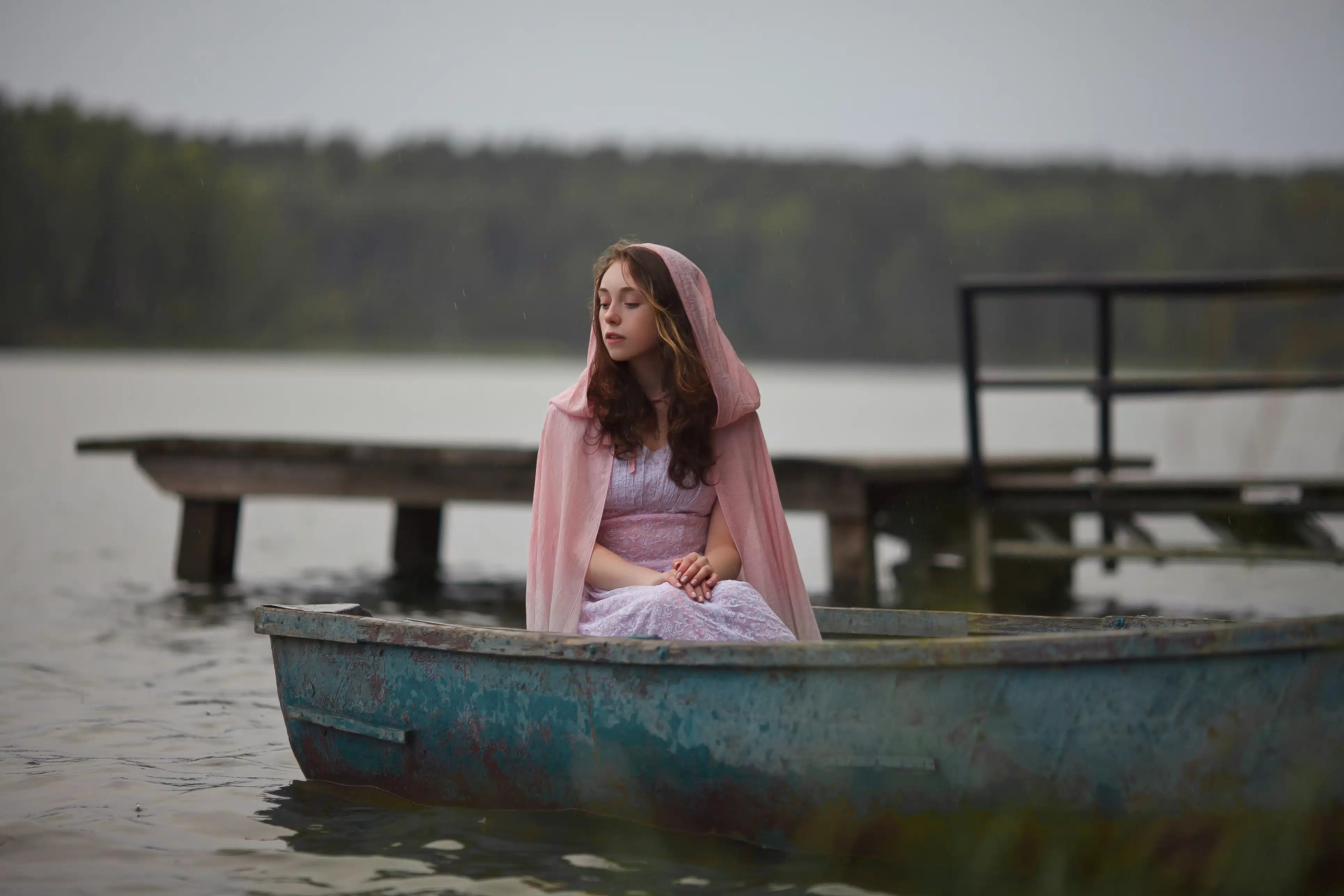
“I have drifted along this river” by Richard Aldington
I have drifted along this river
Until I moored my boat
By these crossed trunks.
Here the mist moves
Over fragile leaves and rushes,
Colorless waters and brown, fading hills.
You have come from beneath the trees
And move within the mist,
A floating leaf.
O blue flower of the evening,
You have touched my face
With your leaves of silver.
Love me, for I must depart.
“The Kirk Of Ulpha To The Pilgrim’s Eye” by William Wordsworth
The Kirk of Ulpha to the pilgrim’s eye
Is welcome as a star, that doth present
Its shining forehead through the peaceful rent
Of a black cloud diffused o’er half the sky:
Or as a fruitful palm-tree towering high
O’er the parched waste beside an Arab’s tent;
Or the Indian tree whose branches, downward bent,
Take root again, a boundless canopy.
How sweet were leisure! could it yield no more
Than ‘mid that wave-washed Churchyard to recline,
From pastoral graves extracting thoughts divine;
Or there to pace, and mark the summits hoar
Of distant moonlit mountains faintly shine,
Soothed by the unseen River’s gentle roar.
“No Record Tells Of Lance Opposed To Lance” by William Wordsworth
No record tells of lance opposed to lance,
Horse charging horse, ‘mid these retired domains;
Tells that their turf drank purple from the veins
Of heroes, fallen, or struggling to advance,
Till doubtful combat issued in a trance
Of victory, that struck through heart and reins
Even to the inmost seat of mortal pains,
And lightened o’er the pallid countenance.
Yet, to the loyal and the brave, who lie
In the blank earth, neglected and forlorn,
The passing Winds memorial tribute pay;
The Torrents chant their praise, inspiring scorn
Of power usurped; with proclamation high,
And glad acknowledgment, of lawful sway.
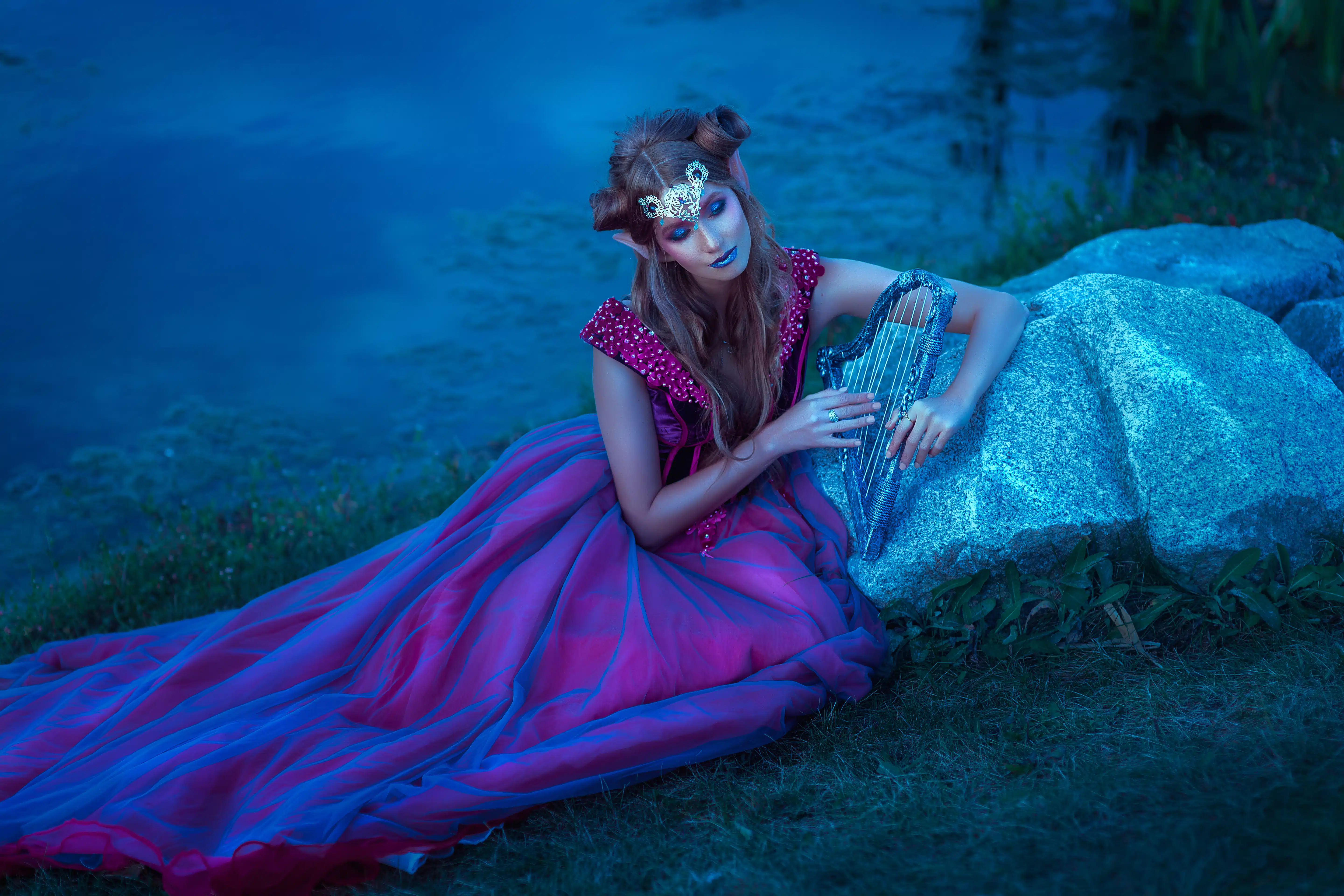
“Nightwind” by John Clare
Darkness like midnight from the sobbing woods
Clamours with dismal tidings of the rain,
Roaring as rivers breaking loose in floods
To spread and foam and deluge all the plain.
The cotter listens at his door again,
Half doubting whether it be floods or wind,
And through the thickening darkness looks afraid,
Thinking of roads that travel has to find
Through night’s black depths in danger’s garb arrayed.
And the loud glabber round the flaze soon stops
When hushed to silence by the lifted hand
Of fearing dame who hears the noise in dread
And thinks a deluge comes to drown the land;
Nor dares she go to bed until the tempest drops.
Poems About Rivers and Streams
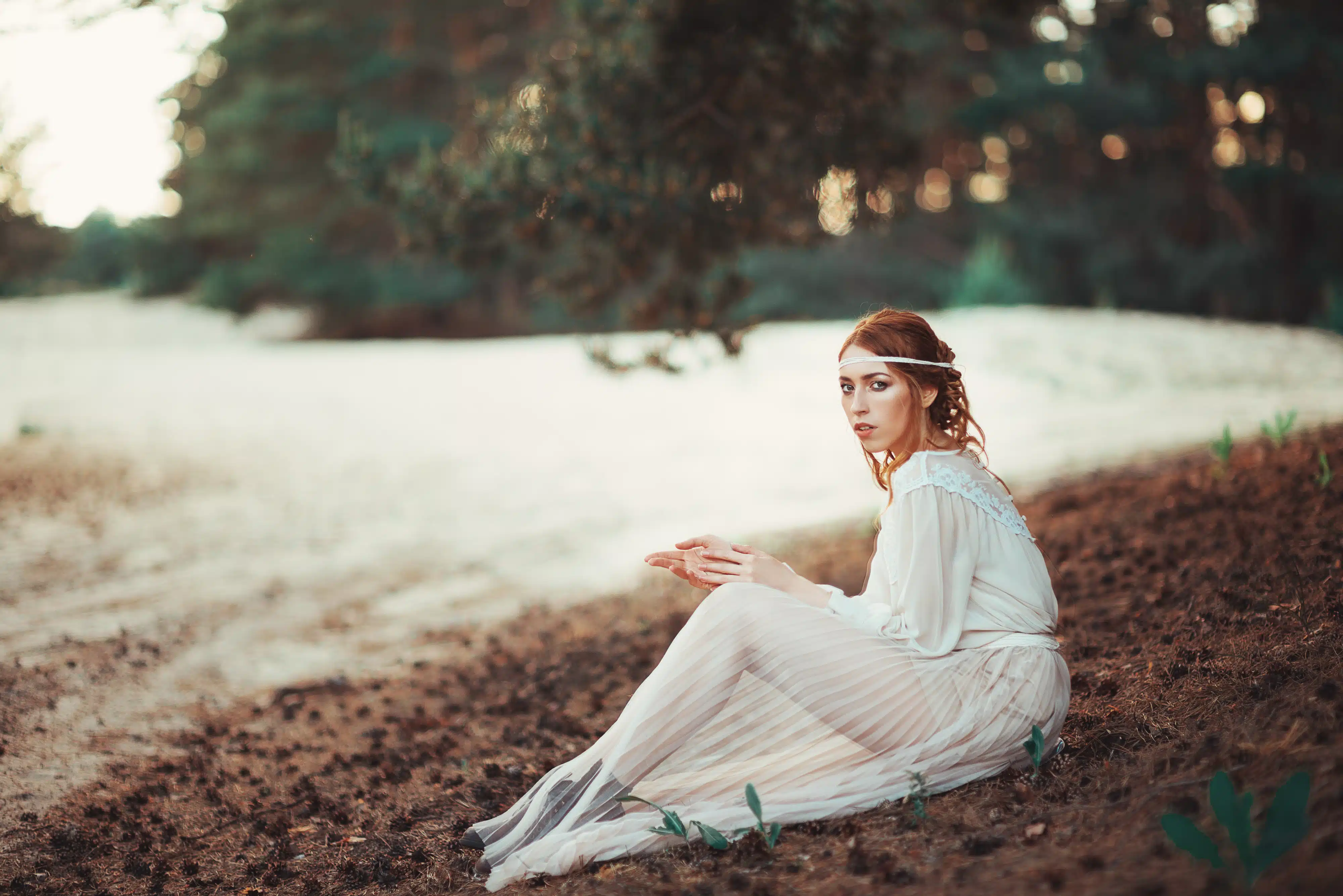
“June Sunset” by Sarojini Naidu
Here shall my heart find its haven of calm,
By rush-fringed rivers and rain-fed streams
That glimmer thro’ meadows of lily and palm.
Here shall my soul find its true repose
Under a sunset sky of dreams
Diaphanous, amber and rose.
The air is aglow with the glint and whirl
Of swift wild wings in their homeward flight,
Sapphire, emerald, topaz, and pearl.
Afloat in the evening light.
A brown quail cries from the tamarisk bushes,
A bulbul calls from the cassia-plume,
And thro’ the wet earth the gentian pushes
Her spikes of silvery bloom.
Where’er the foot of the bright shower passes
Fragrant and fresh delights unfold;
The wild fawns feed on the scented grasses,
Wild bees on the cactus-gold.
An ox-cart stumbles upon the rocks,
And a wistful music pursues the breeze
From a shepherd’s pipe as he gathers his flocks
Under the pipal-trees.
And a young Banjara driving her cattle
Lifts up her voice as she glitters by
In an ancient ballad of love and battle
Set to the beat of a mystic tune,
And the faint stars gleam in the eastern sky
To herald a rising moon.
“Night on the River” by E. Merrill Root
This is our world: a dark stream murmuring;
Sly hordes of shadows out of every brake;
Sky-fallen gold-fish stars that float or shake
In mirrored nets these wizard maples fling;
My oars, that dip like some light swallow’s wing;
Fire-flies, like sparks that the wind fans awake;
And moments like the bubbles that we make,
Like the frail foam that marks our voyaging!
Love, let us drift—what matter when or where?
Are not the stars, the dusk, the whispering stream,
Far whippoorwills, our boat, and we, a dream
In some mad mind? And do not all streams bear
Themselves and all they hold to one vast sea—
The waste wan waters of Eternity?
“Dean-Bourn, a Rude River in Devon” by Robert Herrick
Dean-Bourn, farewell; I never look to see
Deane, or thy warty incivility.
Thy rockie bottome, that doth teare thy streams,
And makes them frantick, ev’n to all extreames,
To my content, I never sho’d behold,
Were thy streams silver, or thy rocks all gold.
Rockie thou art; and rockie we discover
Thy men; and rockie are thy wayes all over.
O men, O manners! now, and ever knowne
To be a rockie generation!
A people currish, churlish as the seas,
And rude, almost, as rudest salvages;
With whom I did, and may re-sojourne when
Rockes turn to rivers, rivers turn to men.

“Change on Change” by Elizabeth Barrett Browning
1.
Three months ago, the stream did flow,
The lilies bloomed along the edge;
And we were lingering to and fro,—
Where none will track thee in this snow,
Along the stream, beside the hedge.
Ah! sweet, be free to come and go;
For if I do not hear thy foot,
The frozen river is as mute,—
The flowers have dried down to the root;
And why, since these be changed since May,
Shouldst thou change less than they?
2.
And slow, slow as the winter snow,
The tears have drifted to mine eyes;
And my two cheeks, three months ago,
Set blushing at thy praises so,
Put paleness on for a disguise.
Ah! sweet, be free to praise and go;
For if my face is turned to pale,
It was thine oath that first did fail,—
It was thy love proved false and frail!
And why, since these be changed, I trow,
Should I change less than thou?
“To the River Arun” by Charlotte Smith
Be the proud Thames of trade the busy mart;
Arun, to thee will other praise belong:
Dear to the lover’s and the mourner’s heart,
And ever sacred to the sons of song.
Thy banks romantic hopeless Love shall seek,
Where o’er the rocks the mantling bind-weed flaunts;
And Sorrow’s drooping form and faded cheek
Choose on thy willowed shore her lonely haunts.
Banks, which inspired thy Otway’s plaintive strain!
Wilds, whose lorn echoes learned the deeper tone
Of Collins, powerful shade! yet once again
Another poet, Hayley, is thine own.
Thy classic stream again shall hear a lay
Bright as its waves and various as its way.
“A Lazy Day” by Paul Laurence Dunbar
The trees bend down along the stream,
Where anchored swings my tiny boat.
The day is one to drowse and dream
And list the thrush’s throttling note.
When music from his bosom bleeds
Among the river’s rustling reeds.
No ripple stirs the placid pool,
When my adventurous line is cast,
A truce to sport, while clear and cool,
The mirrored clouds slide softly past.
The sky gives back a blue divine,
And all the world’s wide wealth is mine.
A pickerel leaps, a bow of light,
The minnows shine from side to side.
The first faint breeze comes up the tide—
I pause with half uplifted oar,
While night drifts down to claim the shore.

“The River Of Ruin” by Paul Laurence Dunbar
Along by the river of ruin
They dally–the thoughtless ones,
They dance and they dream
By the side of the stream,
As long as the river runs.
It seems all so pleasant and cheery–
No thought of the morrow is theirs,
And their faces are bright
With the sun of delight,
And they dream of no night-brooding cares.
The women wear garlanded tresses,
The men have rings on their hands,
And they sing in their glee,
For they think they are free–
They that know not the treacherous sands.
Ah, but this be a venturesome journey,
Forever those sands are ashift,
And a step to one side
Means a grasp of the tide,
And the current is fearful and swift.
For once in the river of ruin,
What boots it, to do or to dare,
For down we must go
In the turbulent flow,
To the desolate sea of Despair.
“October Evening” by Robinson Jeffers
Male-throated under the shallow sea-fog
Moaned a ship’s horn quivering the shorelong granite.
Coyotes toward the valley made answer,
Their little wolf-pads in the dead grass by the stream
Wet with the young season’s first rain,
Their jagged wail trespassing among the steep stars.
What stars? Aldebaran under the dove-leash
Pleiades. I thought, in an hour Orion will be risen,
Be glad for summer is dead and the sky
Turns over to darkness, good storms, few guests, glad rivers.
“To the River Beach” by H. L. Davis
Let me go now, now that from grown alders leaves
Have torn loose, and go flying close to the sand
Along the black river-water. White rye-grass bends
Under the wind, under the sky, toward water
Where the pheasants feed, hiding; and the few willows,
With dark alder leaves caught in them, join and part.
I have not seen them for so long I see dark mouths
Black with juice of berries, and I remember the children
Who ran shaking the tall rye-grass. So they run
And scatter as if caught in the wind, gathering
The last beach fruit, late ripening, which they can save.
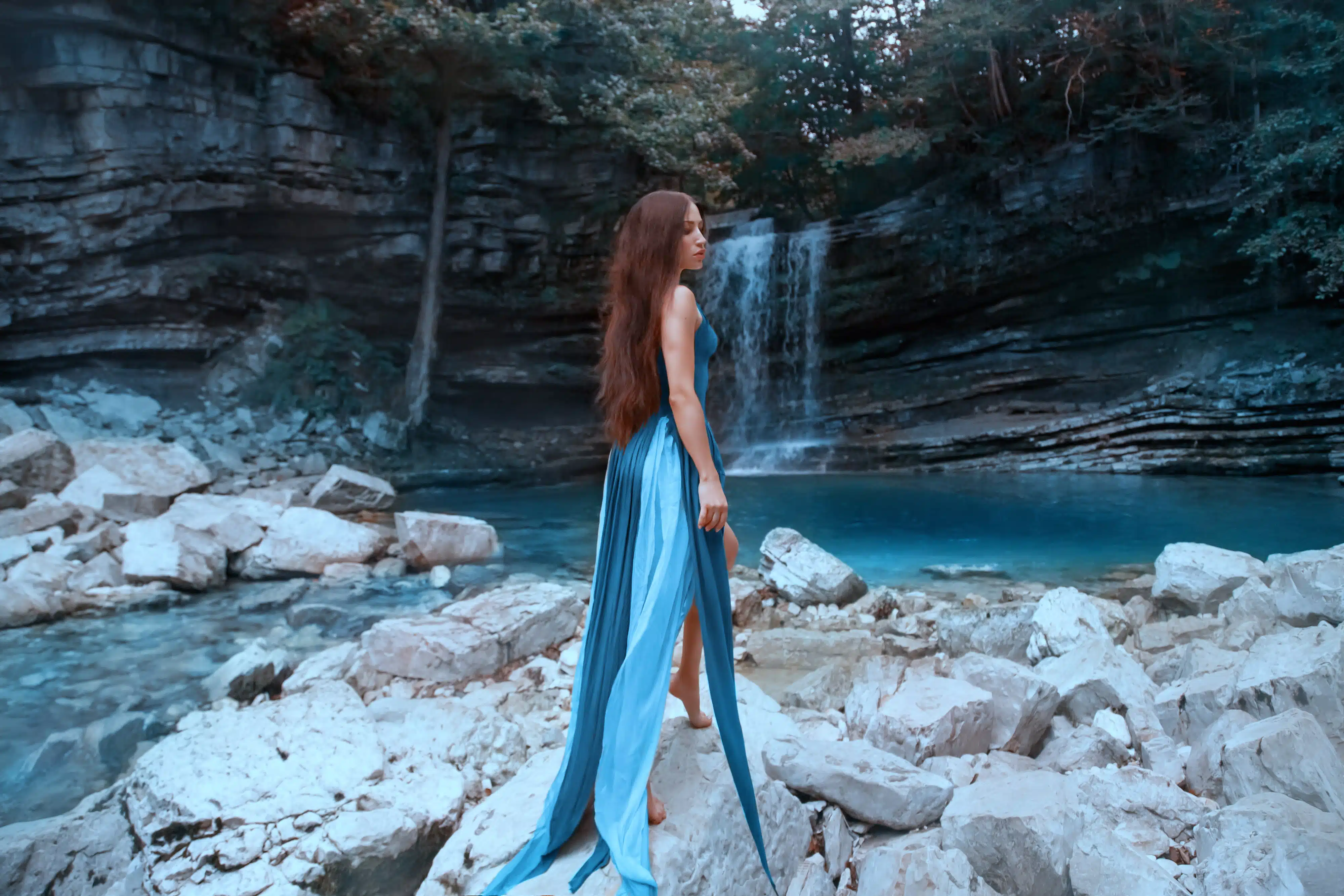
“Hints For The Fancy” by William Wordsworth
On, loitering Muse, the swift Stream chides us on!
Albeit his deep-worn channel doth immure
Objects immense portrayed in miniature,
Wild shapes for many a strange comparison!
Niagaras, Alpine passes, and anon
Abodes of Naiads, calm abysses pure,
Bright liquid mansions, fashioned to endure
When the broad oak drops, a leafless skeleton,
And the solidities of mortal pride,
Palace and tower, are crumbled into dust!
The Bard who walks with Duddon for his guide,
Shall find such toys of fancy thickly set:
Turn from the sight, enamoured Muse, we must;
And, if thou canst, leave them without regret!
“Valedictory Sonnet to the River Duddon” by William Wordsworth
I thought of Thee, my partner and my guide,
As being pass’d away.—Vain sympathies!
For, backward, Duddon! as I cast my eyes,
I see what was, and is, and will abide;
Still glides the Stream, and shall for ever glide;
The Form remains, the Function never dies;
While we, the brave, the mighty, and the wise,
We Men, who in our morn of youth defied
The elements, must vanish;—be it so!
Enough, if something from our hands have power
To live, and act, and serve the future hour;
And if, as toward the silent tomb we go,
Through love, through hope, and faith’s transcendent dower,
We feel that we are greater than we know.
“The River and the Hill” by Henry Kendall
And they shook their sweetness out in their sleep,
On the brink of that beautiful stream,
But it wandered along with a wearisome song
Like a lover that walks in a dream:
So the roses blew
When the winds went through,
In the moonlight so white and so still;
But the river it beat
All night at the feet
Of a cold and flinty hill
Of a hard and senseless hill!
I said, We have often showered our loves
Upon something as dry as the dust;
And the faith that is crost, and the hearts that are lost
Oh! how can we wittingly trust?
Like the stream which flows,
And wails as it goes,
Through the moonlight so white and so still,
To beat and to beat
All night at the feet
Of a cold and flinty hill
Of a hard and senseless hill?
River, I stay where the sweet roses blow,
And drink of their pleasant perfumes!
Oh, why do you moan, in this wide world alone,
When so much affection here blooms?
The winds wax faint,
And the Moon like a Saint
Glides over the woodlands so white and so still!
But you beat and you beat
All night at the feet
Of that cold and flinty hill
Of that hard and senseless hill!

“To a River in the South” by Henry John Newbolt, Sir
Call me no more, O gentle stream,
To wander through thy sunny dream,
No more to lean at twilight cool
Above thy weir and glimmering pool.
Surely I know thy hoary dawns,
The silver crisp on all thy lawns,
The softly swirling undersong
That rocks thy reeds the winter long.
Surely I know the joys that ring
Through the green deeps of leafy spring;
I know the elfin cups and domes
That are their small and secret homes.
Yet is the light for ever lost
That daily once thy meadows crossed,
The voice no more by thee is heard
That matched the song of stream and bird.
Call me no more!–thy waters roll
Here, in the world that is my soul,
And here, though Earth be drowned in night,
Old love shall dwell with old delight.
“O Mountain Stream” by William Wordsworth
O Mountain Stream! the Shepherd and his Cot
Are privileged Inmates of deep solitude;
Nor would the nicest Anchorite exclude
A field or two of brighter green, or plot
Of tillage-ground, that seemeth like a spot
Of stationary sunshine: thou hast viewed
These only, Duddon! with their paths renewed
By fits and starts, yet this contents thee not.
Thee hath some awful Spirit impelled to leave,
Utterly to desert, the haunts of men,
Though simple thy companions were and few;
And through this wilderness a passage cleave
Attended but by thy own voice, save when
The clouds and fowls of the air thy way pursue!
“Return, Content! For Fondly I Pursued” by William Wordsworth
Return, Content! for fondly I pursued,
Even when a child, the Streams, unheard, unseen;
Through tangled woods, impending rocks between;
Or, free as air, with flying inquest viewed
The sullen reservoirs whence their bold brood
Pure as the morning, fretful, boisterous, keen,
Green as the salt-sea billows, white and green
Poured down the hills, a choral multitude!
Nor have I tracked their course for scanty gains;
They taught me random cares and truant joys,
That shield from mischief and preserve from stains
Vague minds, while men are growing out of boys;
Maturer Fancy owes to their rough noise
Impetuous thoughts that brook not servile reins.

“To Dean Bourn, A Rude River In Devon, By Which Sometimes He Lived.” by Robert Herrick
Dean Bourn, farewell; I never look to see
Dean, or thy watery incivility.
Thy rocky bottom, that doth tear thy streams
And makes them frantic even to all extremes,
To my content I never should behold,
Were thy streams silver, or thy rocks all gold.
Rocky thou art, and rocky we discover
Thy men, and rocky are thy ways all over.
O men, O manners, now and ever known
To be a rocky generation!
A people currish, churlish as the seas,
And rude almost as rudest savages,
With whom I did, and may re-sojourn when
Rocks turn to rivers, rivers turn to men.
“Tributary Stream” by William Wordsworth
My frame hath often trembled with delight
When hope presented some far-distant good,
That seemed from heaven descending, like the flood
Of yon pure waters, from their aery height
Hurrying, with lordly Duddon to unite;
Who, ‘mid a world of images imprest
On the calm depth of his transparent breast,
Appears to cherish most that Torrent white,
The fairest, softest, liveliest of them all!
And seldom hath ear listened to a tune
More lulling than the busy hum of Noon,
Swoln by that voice, whose murmur musical
Announces to the thirsty fields a boon
Dewy and fresh, till showers again shall fall.
“I” by William Wordsworth
Not envying Latian shades, if yet they throw
A grateful coolness round that crystal Spring,
Blandusia, prattling as when long ago
The Sabine Bard was moved her praise to sing;
Careless of flowers that in perennial blow
Round the moist marge of Persian fountains cling;
Heedless of Alpine torrents thundering
Through ice-built arches radiant as heaven’s bow;
I seek the birthplace of a native Stream.
All hail, ye mountains! hail, thou morning light!
Better to breathe at large on this clear height
Than toil in needless sleep from dream to dream:
Pure flow the verse, pure, vigorous, free, and bright,
For Duddon, long-loved Duddon, is my theme!
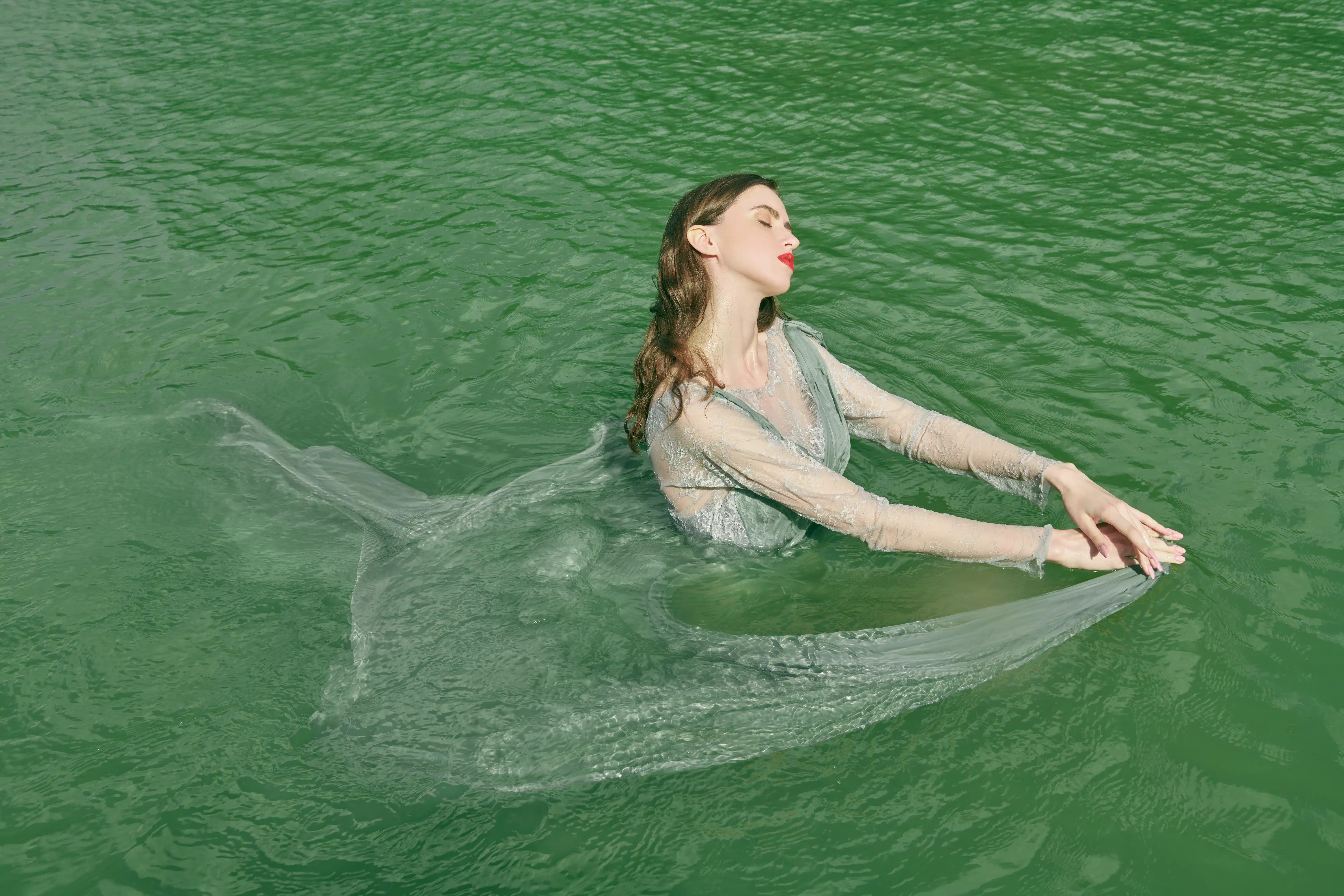
“To The River Arve.” by William Cullen Bryant
Not from the sands or cloven rocks,
Thou rapid Arve! thy waters flow;
Nor earth, within her bosom, locks
Thy dark unfathomed wells below.
Thy springs are in the cloud, thy stream
Begins to move and murmur first
Where ice-peaks feel the noonday beam,
Or rain-storms on the glacier burst.
Born where the thunder and the blast,
And morning’s earliest light are born,
Thou rushest swoln, and loud, and fast,
By these low homes, as if in scorn:
Yet humbler springs yield purer waves;
And brighter, glassier streams than thine,
Sent up from earth’s unlighted caves,
With heaven’s own beam and image shine.
Yet stay; for here are flowers and trees;
Warm rays on cottage roofs are here,
And laugh of girls, and hum of bees,
Here linger till thy waves are clear.
Thou heedest not, thou hastest on;
From steep to steep thy torrent falls,
Till, mingling with the mighty Rhone,
It rests beneath Geneva’s walls.
Rush on, but were there one with me
That loved me, I would light my hearth
Here, where with God’s own majesty
Are touched the features of the earth.
By these old peaks, white, high, and vast,
Still rising as the tempests beat,
Here would I dwell, and sleep, at last,
Among the blossoms at their feet.
Poems About Rivers and Nature

“Anima Naturae” by Walter Leslie Wilmshurst
Swirl of the river aflow to the sea,
Aspen a-quiver all tremulously,
Skylark that shivereth song o’er the lea,
Shaft of the sun;
Snowflakes that sprinkle the wind-bitten wold,
Fireflies that twinkle with shimmer of gold,
Wavelets that wrinkle the sands where ye rolled,
Rivulet’s ripple and run; MYST.
Lone mountain-meres that are silently dreaming
Of far-flashing spheres that enmirrored are beaming,
Clouds’ crystal tears when the rainbow is gleaming,
I, also a son
Of the Mother, inherit the soul of her infinite throng,
See it and hear it my paths all about and among,
Throb with your spirit and sing with the manifold song
Of the infinite, manifold One.
“Two Rivers” by Ralph Waldo Emerson
Thy summer voice, Musketaquit,
Repeats the music of the rain;
But sweeter rivers pulsing flit
Through thee, as thou through Concord Plain.
Thou in thy narrow banks art pent:
The stream I love unbounded goes
Through flood and sea and firmament;
Through light, through life, it forward flows.
I see the inundation sweet,
I hear the spending of the stream
Through years, through men, through Nature fleet,
Through love and thought, through power and dream.
Musketaquit, a goblin strong,
Of shard and flint makes jewels gay;
They lose their grief who hear his song,
And where he winds is the day of day.
So forth and brighter fares my stream,—
Who drink it shall not thirst again;
No darkness stains its equal gleam,
And ages drop in it like rain.
“To The River Greta, Near Keswick” by William Wordsworth
Greta, what fearful listening! when huge stones
Rumble along thy bed, block after block:
Or, whirling with reiterated shock,
Combat, while darkness aggravates the groans:
But if thou (like Cocytus from the moans
Heard on his rueful margin) thence wert named
The Mourner, thy true nature was defamed,
And the habitual murmur that atones
For thy worst rage, forgotten. Oft as Spring
Decks, on thy sinuous banks, her thousand thrones
Seats of glad instinct and love’s caroling,
The concert, for the happy, then may vie
With liveliest peals of birth-day harmony:
To a grieved heart, the notes are benisons.
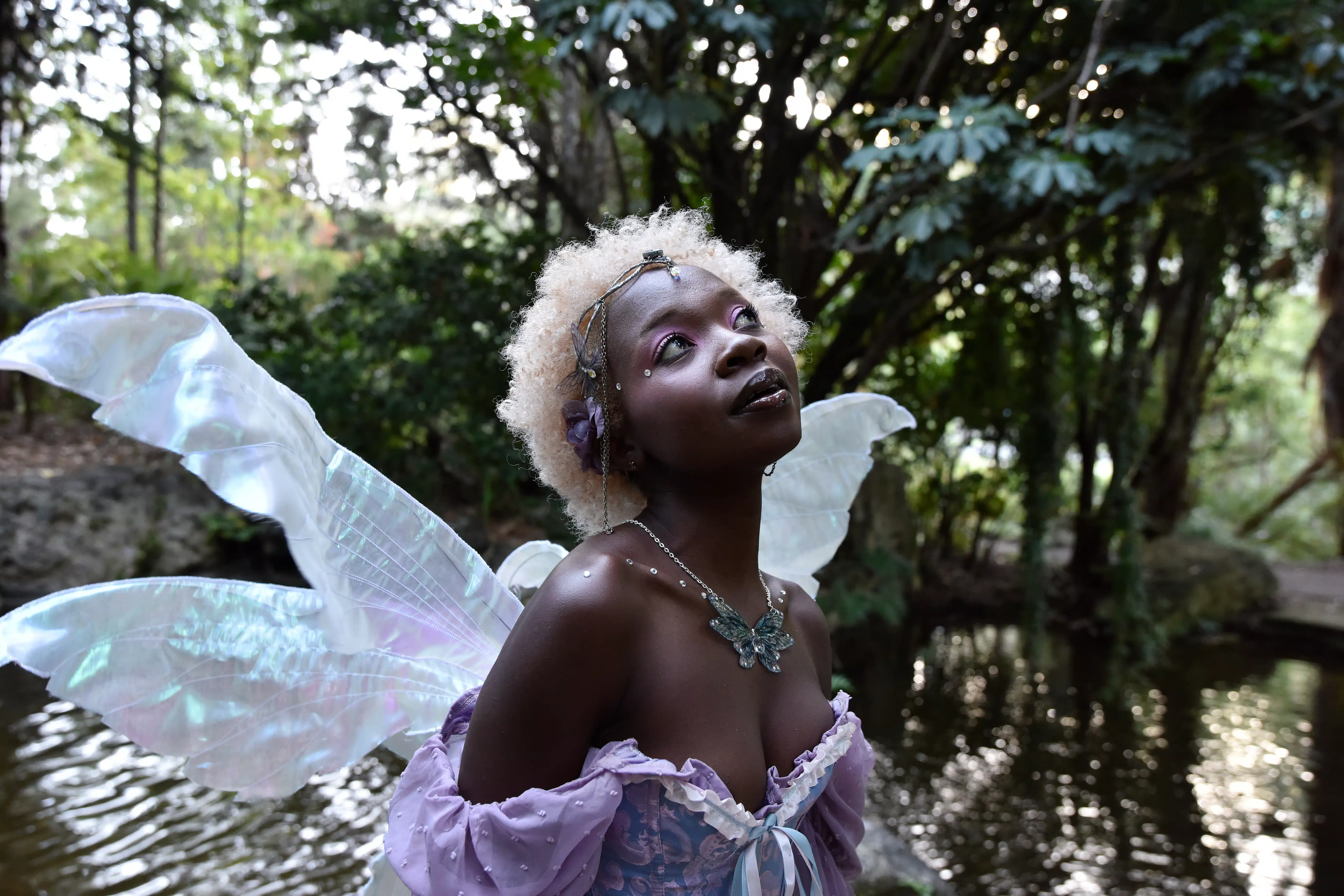
“Nature” by Henry David Thoreau
O Nature! I do not aspire
To be the highest in thy quire,—
To be a meteor in the sky,
Or comet that may range on high;
Only a zephyr that may blow
Among the reeds by the river low;
Give me thy most privy place
Where to run my airy race.
In some withdrawn, unpublic mead
Let me sigh upon a reed,
Or in the woods, with leafy din,
Whisper the still evening in:
Some still work give me to do,—
Only—be it near to you!
For I’d rather be thy child
And pupil, in the forest wild,
Than be the king of men elsewhere,
And most sovereign slave of care:
To have one moment of thy dawn,
Than share the city’s year forlorn.
“Sheep-Washing” by William Wordsworth
Sad thoughts, avaunt! partake we their blithe cheer
Who gathered in betimes the unshorn flock
To wash the fleece, where haply bands of rock,
Checking the stream, make a pool smooth and clear
As this we look on. Distant Mountains hear,
Hear and repeat, the turmoil that unites
Clamour of boys with innocent despites
Of barking dogs, and bleatings from strange fear.
And what if Duddon’s spotless flood receive
Unwelcome mixtures as the uncouth noise
Thickens, the pastoral River will forgive
Such wrong; nor need ‘we’ blame the licensed joys,
Though false to Nature’s quiet equipoise:
Frank are the sports, the stains are fugitive.
“Written Upon A Blank Leaf In ‘The Complete Angler.'” by William Wordsworth
While flowing rivers yield a blameless sport,
Shall live the name of Walton: Sage benign!
Whose pen, the mysteries of the rod and line
Unfolding, did not fruitlessly exhort
To reverend watching of each still report
That Nature utters from her rural shrine.
Meek, nobly versed in simple discipline,
He found the longest summer day too short,
To his loved pastime given by sedgy Lee,
Or down the tempting maze of Shawford brook,
Fairer than life itself, in this sweet Book,
The cowslip-bank and shady willow-tree;
And the fresh meads where flowed, from every nook
Of his full bosom, gladsome Piety!
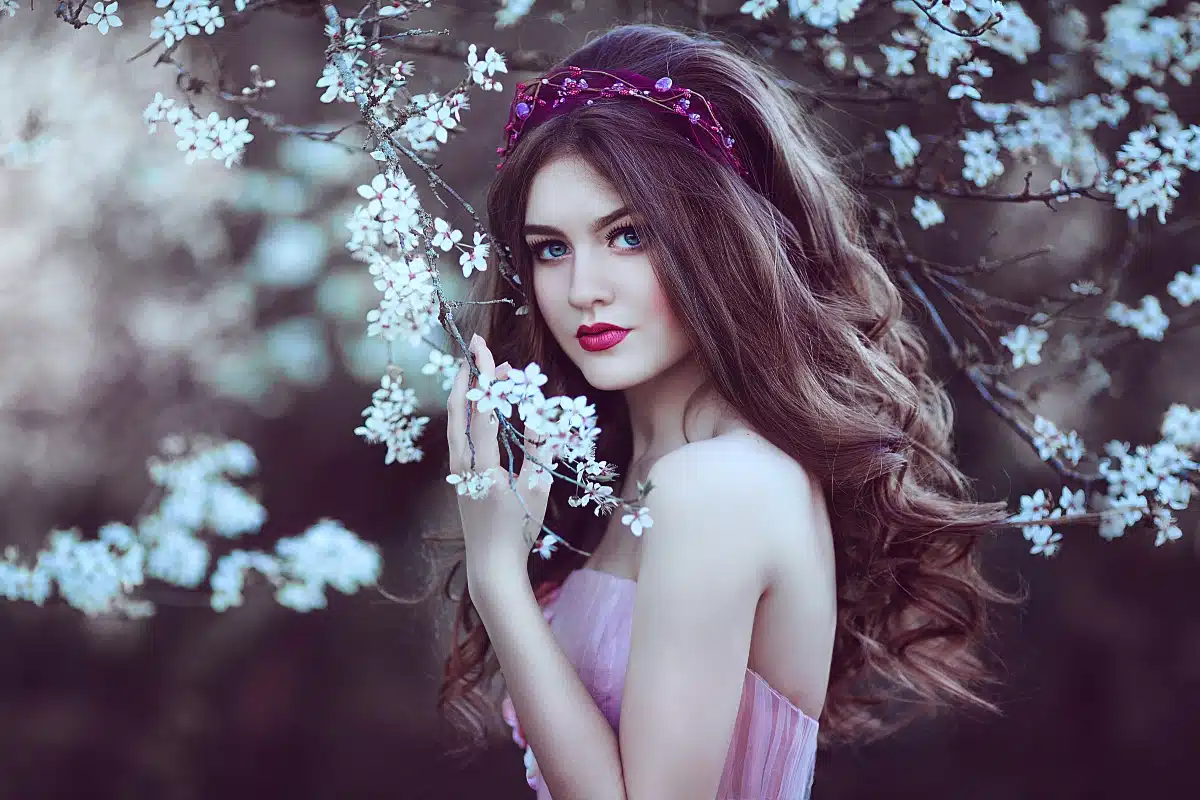
Black Horizons by Carl Sandburg
Black horizons, come up.
Black horizons, kiss me.
That is all; so many lies; killing so cheap;
babies so cheap; blood, people, so cheap; and
land high, land dear; a speck of the earth
costs; a suck at the tit of Mother Dirt so
clean and strong, it costs; fences, papers,
sheriffs; fences, laws, guns; and so many
stars and so few hours to dream; such a big
song and so little a footing to stand and
sing; take a look; wars to come; red rivers
to cross.
Black horizons, come up.
Black horizons, kiss me.
“Not Hurled Precipitous From Steep To Steep” by William Wordsworth
Not hurled precipitous from steep to steep;
Lingering no more ‘mid flower-enameled lands
And blooming thickets; nor by rocky bands
Held; but in radiant progress toward the Deep
Where mightiest rivers into powerless sleep
Sink, and forget heir nature, ‘now’ expands
Majestic Duddon, over smooth flat sands
Gliding in silence with unfettered sweep!
Beneath an ampler sky a region wide
Is opened round him: hamlets, towers, and towns,
And blue-topped hills, behold him from afar;
In stately mien to sovereign Thames allied
Spreading his bosom under Kentish downs,
With commerce freighted, or triumphant war.
“Open Prospect” by William Wordsworth
Hail to the fields, with Dwellings sprinkled o’er,
And one small hamlet, under a green hill
Clustering, with barn and byre, and spouting mill!
A glance suffices, should we wish for more,
Gay June would scorn us. But when bleak winds roar
Through the stiff lance-like shoots of pollard ash,
Dread swell of sound! loud as the gusts that lash
The matted forests of Ontario’s shore
By wasteful steel unsmitten, then would I
Turn into port; and, reckless of the gale,
Reckless of angry Duddon sweeping by,
While the warm hearth exalts the mantling ale,
Laugh with the generous household heartily
At all the merry pranks of Donnerdale!

“Sole Listener, Duddon! To The Breeze That Played” by William Wordsworth
Sole listener, Duddon! to the breeze that played
With thy clear voice, I caught the fitful sound
Wafted o’er sullen moss and craggy mound,
Unfruitful solitudes, that seemed to upbraid
The sun in heaven! but now, to form a shade
For Thee, green alders have together wound
Their foliage; ashes flung their arms around;
And birch-trees risen in silver colonnade.
And thou hast also tempted here to rise,
‘Mid sheltering pines, this Cottage rude and grey;
Whose ruddy children, by the mother’s eyes
Carelessly watched, sport through the summer day,
Thy pleased associates: light as endless May
On infant bosoms lonely Nature lies.
“To the River Rhone” by Henry Wadsworth Longfellow
Thou Royal River, born of sun and shower
In chambers purple with the Alpine glow,
Wrapped in the spotless ermine of the snow
And rocked by tempests!—at the appointed hour
Forth, like a steel-clad horseman from a tower,
With clang and clink of harness dost thou go
To meet thy vassal torrents, that below
Rush to receive thee and obey thy power.
And now thou movest in triumphal march,
A king among the rivers! On thy way
A hundred towns await and welcome thee;
Bridges uplift for thee the stately arch,
Vineyards encircle thee with garlands gay,
And fleets attend thy progress to the sea!
“Flowers” by William Wordsworth
Ere yet our course was graced with social trees
It lacked not old remains of hawthorn bowers,
Where small birds warbled to their paramours;
And, earlier still, was heard the hum of bees;
I saw them ply their harmless robberies,
And caught the fragrance which the sundry flowers,
Fed by the stream with soft perpetual showers,
Plenteously yielded to the vagrant breeze.
There bloomed the strawberry of the wilderness;
The trembling eyebright showed her sapphire blue,
The thyme her purple, like the blush of Even;
And if the breath of some to no caress
Invited, forth they peeped so fair to view,
All kinds alike seemed favourites of Heaven.
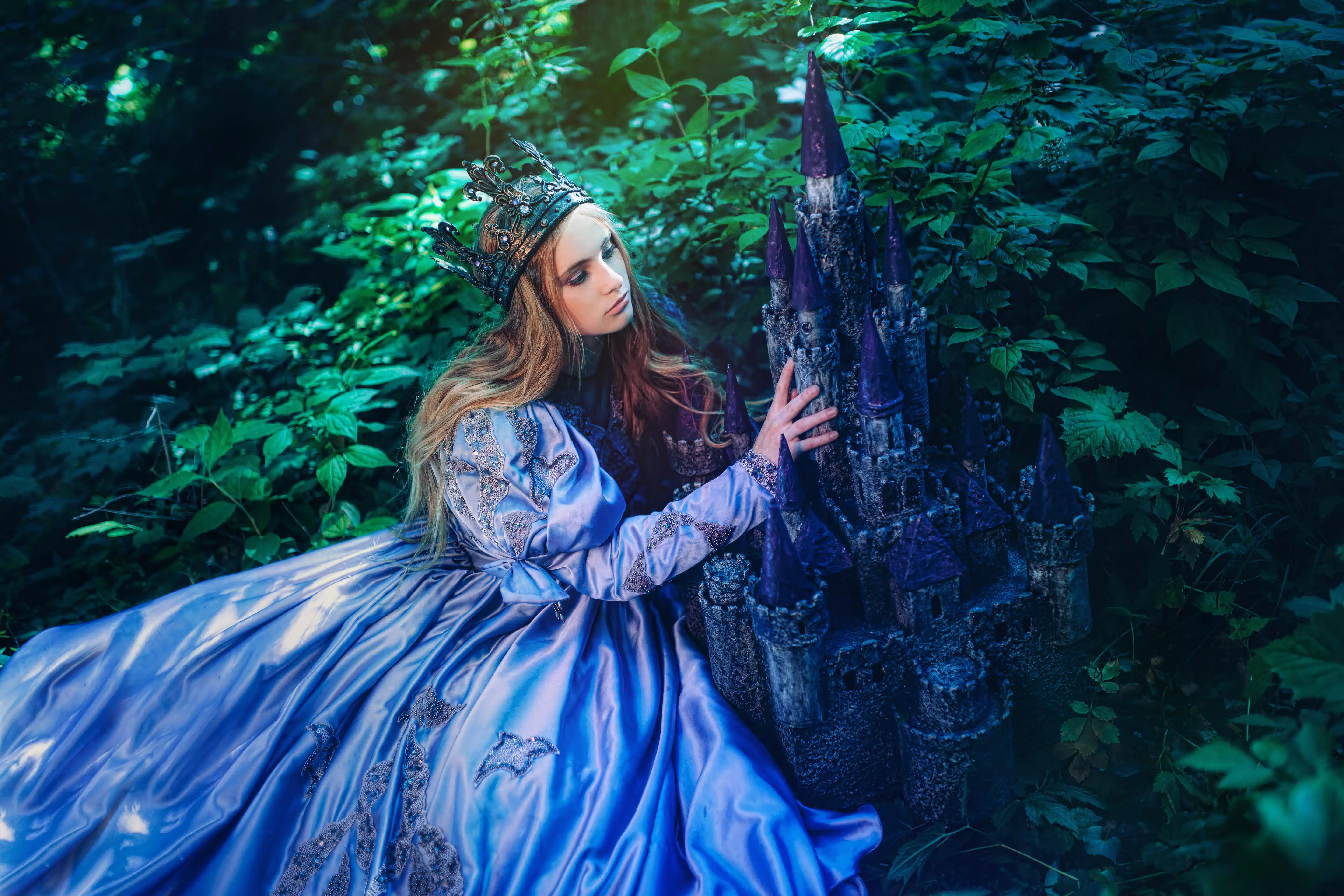
“How Shall I Paint Thee?” by William Wordsworth
How shall I paint thee? Be this naked stone
My seat, while I give way to such intent;
Pleased could my verse, a speaking monument,
Make to the eyes of men thy features known.
But as of all those tripping lambs not one
Outruns his fellows, so hath Nature lent
To thy beginning nought that doth present
Peculiar ground for hope to build upon.
To dignify the spot that gives thee birth,
No sign of hoar Antiquity’s esteem
Appears, and none of modern Fortune’s care;
Yet thou thyself hast round thee shed a gleam
Of brilliant moss, instinct with freshness rare;
Prompt offering to thy Foster-mother, Earth!
“A Dark Plume Fetch Me From Yon Blasted Yew” by William Wordsworth
A dark plume fetch me from yon blasted yew,
Perched on whose top the Danish Raven croaks;
Aloft, the imperial Bird of Rome invokes
Departed ages, shedding where he flew
Loose fragments of wild wailing, that bestrew
The clouds and thrill the chambers of the rocks;
And into silence hush the timorous flocks,
That, calmly couching while the nightly dew
Moistened each fleece, beneath the twinkling stars
Slept amid that lone Camp on Hardknot’s height,
Whose Guardians bent the knee to Jove and Mars:
Or, near that mystic Round of Druid frame
Tardily sinking by its proper weight
Deep into patient Earth, from whose smooth breast it came!
“Praised Be The Rivers, From Their Mountain Springs” by William Wordsworth
Praised be the Rivers, from their mountain springs
Shouting to Freedom, “Plant thy banners here!”
To harassed Piety, “Dismiss thy fear,
And in our caverns smooth thy ruffled wings!”
Nor be unthanked their final lingerings
Silent, but not to high-souled Passion’s ear
‘Mid reedy fens wide-spread and marshes drear,
Their own creation. Such glad welcomings
As Po was heard to give where Venice rose
Hailed from aloft those Heirs of truth divine
Who near his fountains sought obscure repose,
Yet came prepared as glorious lights to shine,
Should that be needed for their sacred Charge;
Blest Prisoners They, whose spirits were at large!
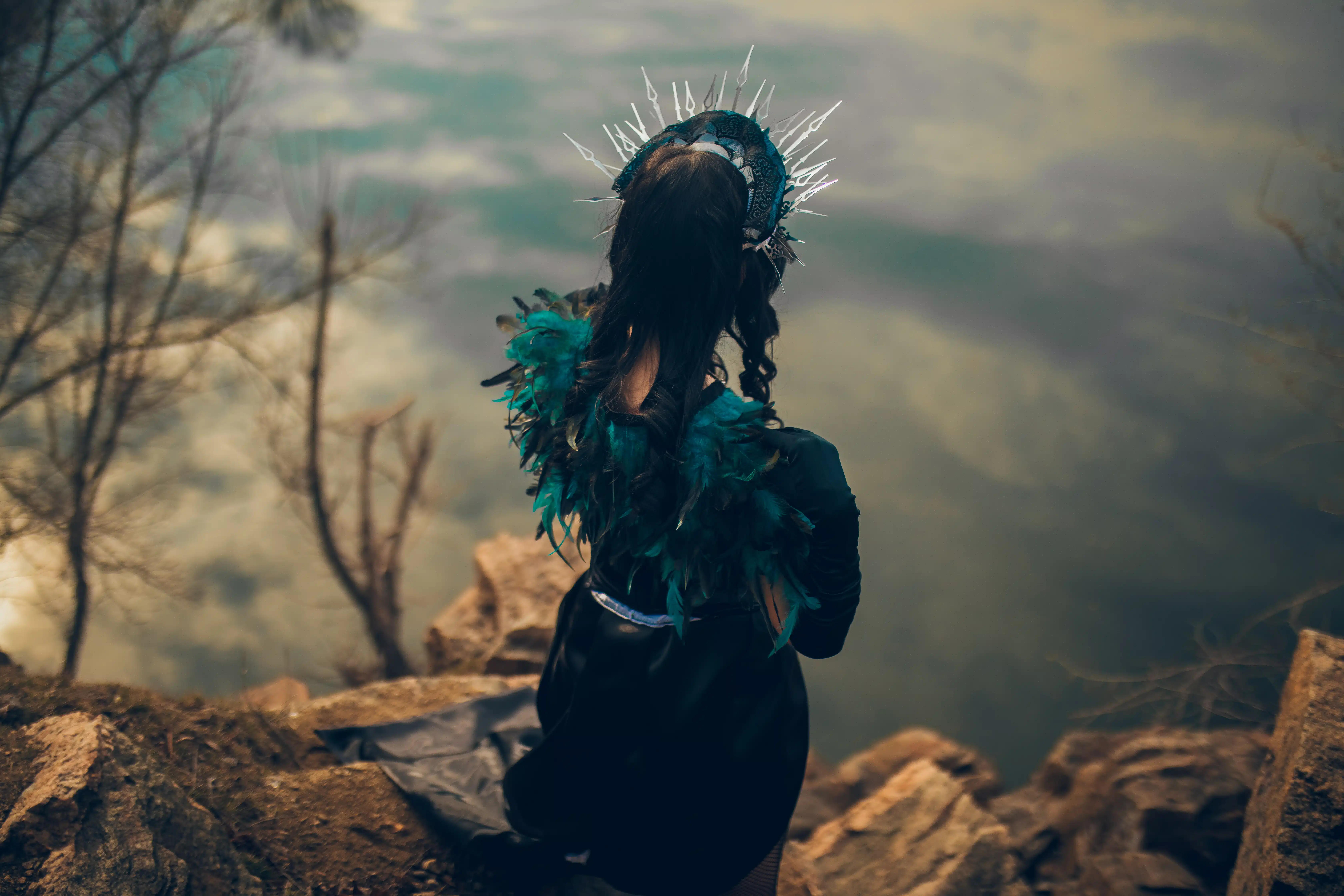
“By a River” by Henry Kendall
By red-ripe mouth and brown, luxurious eyes
Of her I love, by all your sweetness shed
In far, fair days, on one whose memory flies
To faithless lights, and gracious speech gainsaid,
I pray you, when yon river-path I tread,
Make with the woodlands some soft compromise,
Lest they should vex me into fruitless sighs
With visions of a woman’s gleaming head!
For every green and golden-hearted thing
That gathers beauty in that shining place,
Beloved of beams and wooed by wind and wing,
Is rife with glimpses of her marvellous face;
And in the whispers of the lips of Spring
The music of her lute-like voice I trace.
“A Field by the River” by H. L. Davis
I see a white river-bird, and I see the women
Among the weeds, the light of their dresses between
Quick willow leaves; and I see that there the wind
Comes like a bird from the river, and blows their dresses.
Today their pleasure’s among willows and high cold weeds
Where the flood bred pale snapdragons in the shade.
I lie in the high grass by the spring at their door
And hear them across the white stubble of their own field’s
Edge: along the willows in the sand where the reaper
Has never been driven, they go. It was the flood margin.
At the flood margin which they feared their pleasure is;
Their white dresses fly where the water felt at the young grain.
It seems they are silent, looking at the white bird.
“Does it follow us here?” And one, looking to the sky: “No,
There is nothing now till spring to be anxious for;
They are through reaping, the grain is gone, and two seasons
Are to come before spring comes: so enjoy the day.”
They come pleasantly through high weeds, old foam in the branches.
“River Roses” by D. H. Lawrence (David Herbert Richards)
By the Isar, in the twilight
We were wandering and singing,
By the Isar, in the evening
We climbed the huntsman’s ladder and sat swinging
In the fir-tree overlooking the marshes,
While river met with river, and the ringing
Of their pale-green glacier water filled the evening.
By the Isar, in the twilight
We found the dark wild roses
Hanging red at the river; and simmering
Frogs were singing, and over the river closes
Was savour of ice and of roses; and glimmering
Fear was abroad. We whispered: “No one knows us.
Let it be as the snake disposes
Here in this simmering marsh.”
KLOSTER SCHAEFTLARN
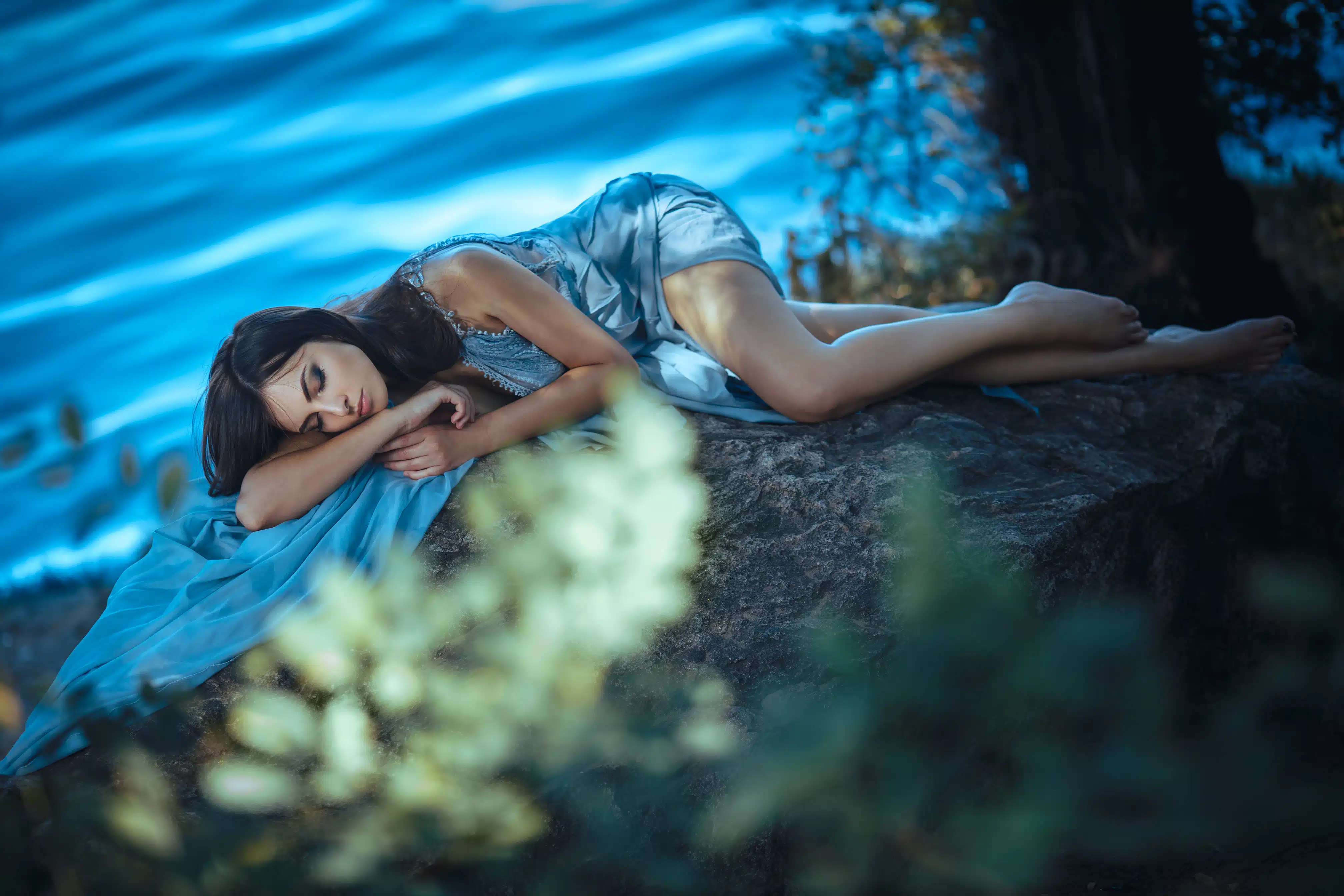
“The Resting Place” by William Wordsworth
Mid-noon is past; upon the sultry mead
No zephyr breathes, no cloud its shadow throws:
If we advance unstrengthened by repose,
Farewell the solace of the vagrant reed!
This Nook with woodbine hung and straggling weed
Tempting recess as ever pilgrim chose,
Half grot, half arbour, proffers to enclose
Body and mind, from molestation freed,
In narrow compass, narrow as itself:
Or if the Fancy, too industrious Elf,
Be loth that we should breathe awhile exempt
From new incitements friendly to our task,
Here wants not stealthy prospect, that may tempt
Loose Idless to forego her wily mask.
“The River Saguenay.” by Rosanna Eleanor Leprohon
Few poets yet in praise of thee
Have tuned a passing lay,
Yet art thou rich in beauties stern,
Thou dark browed Saguenay!
And those grand charms that surely form
For earth her rarest crown
On thee, with strangely lavish hand,
Have all been showered down.
Thine own wild flood, so deep, so dark;
That holds the gaze enthralled
As if by some weird spell, at once
Entranced yet not appalled;
Seeking in vain to pierce those depths,
Where wave and rock have met,
Those depths which, by the hand of man,
Have ne’er been fathomed yet.
And then thy shores – thy rock bound shores,
Where giant cliffs arise,
Raising their untrod, unknown heights
Defiant to the skies,
And casting from their steep, stern brows
Shadows of deepest gloom
Athwart thy wave, till it doth seem
A passage to a tomb.
Such art thou in thy solitude,
Majestic Saguenay!
As lonely and as sternly rude
As in time past away,
When the red man in his fragile bark
Sped o’er thy glassy wave,
And found amid thy forests wild
His cradle, home and grave.
All, all is changed – reigns in his stead
Another race and name,
But, in thy lonely grandeur still,
Proud River, thou’rt the same!
Short Poems About Rivers
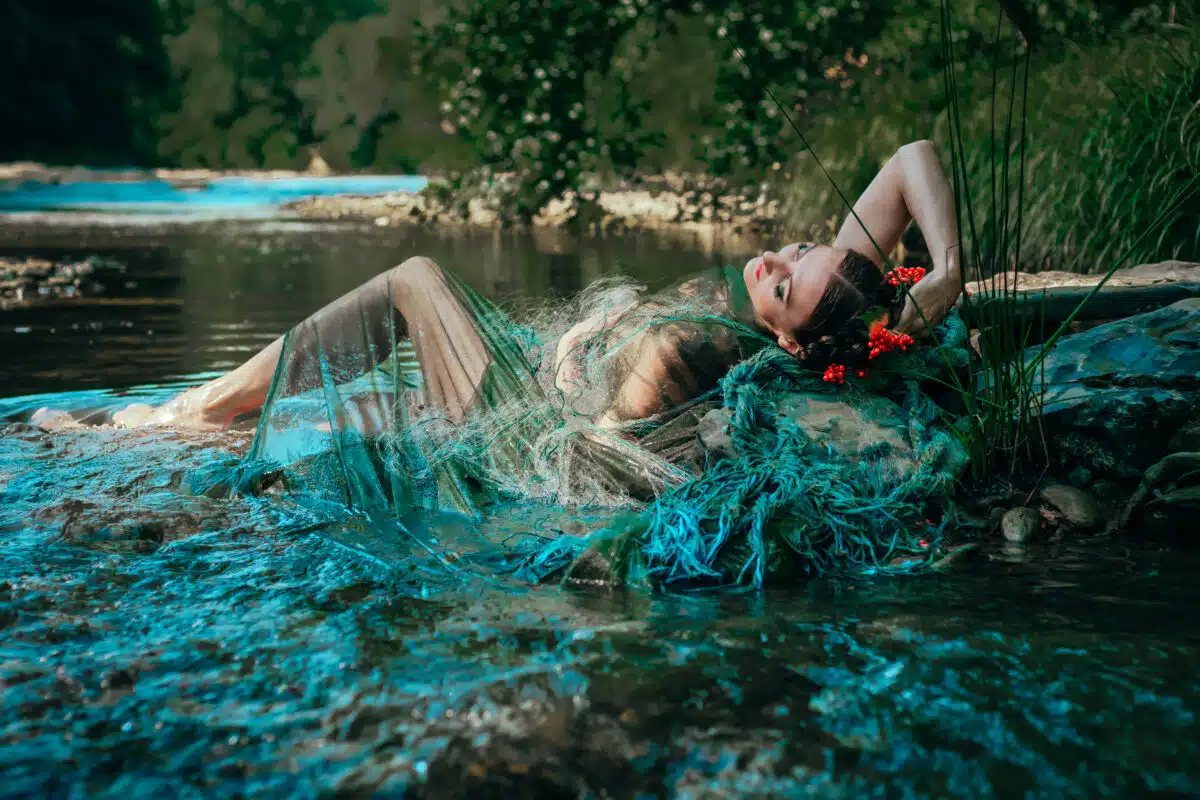
“By The River.” by Johann Wolfgang von Goethe
Flow on, ye lays so loved, so fair,
On to Oblivion’s ocean flow!
May no rapt boy recall you e’er,
No maiden in her beauty’s glow!
My love alone was then your theme,
But now she scorns my passion true.
Ye were but written in the stream;
As it flows on, then, flow ye too!
“Communication” by Mark Van Doren
Suddenly, across the road,
A river of strange waters flowed,
And my old friend I ran to see
Stood and only waved at me,
I cried aloud the things we did
So long ago—and the stream slid
More quietly a little while.
I saw him nod and faintly smile,
Remembering… Then all around
The current intervened its sound.
“Letter S” by Carl Sandburg
The river is gold under a sunset of Illinois.
It is a molten gold someone pours and changes.
A woman mixing a wedding cake of butter and eggs
Knows what the sunset is pouring on the river here.
The river twists in a letter S.
A gold S now speaks to the Illinois sky.
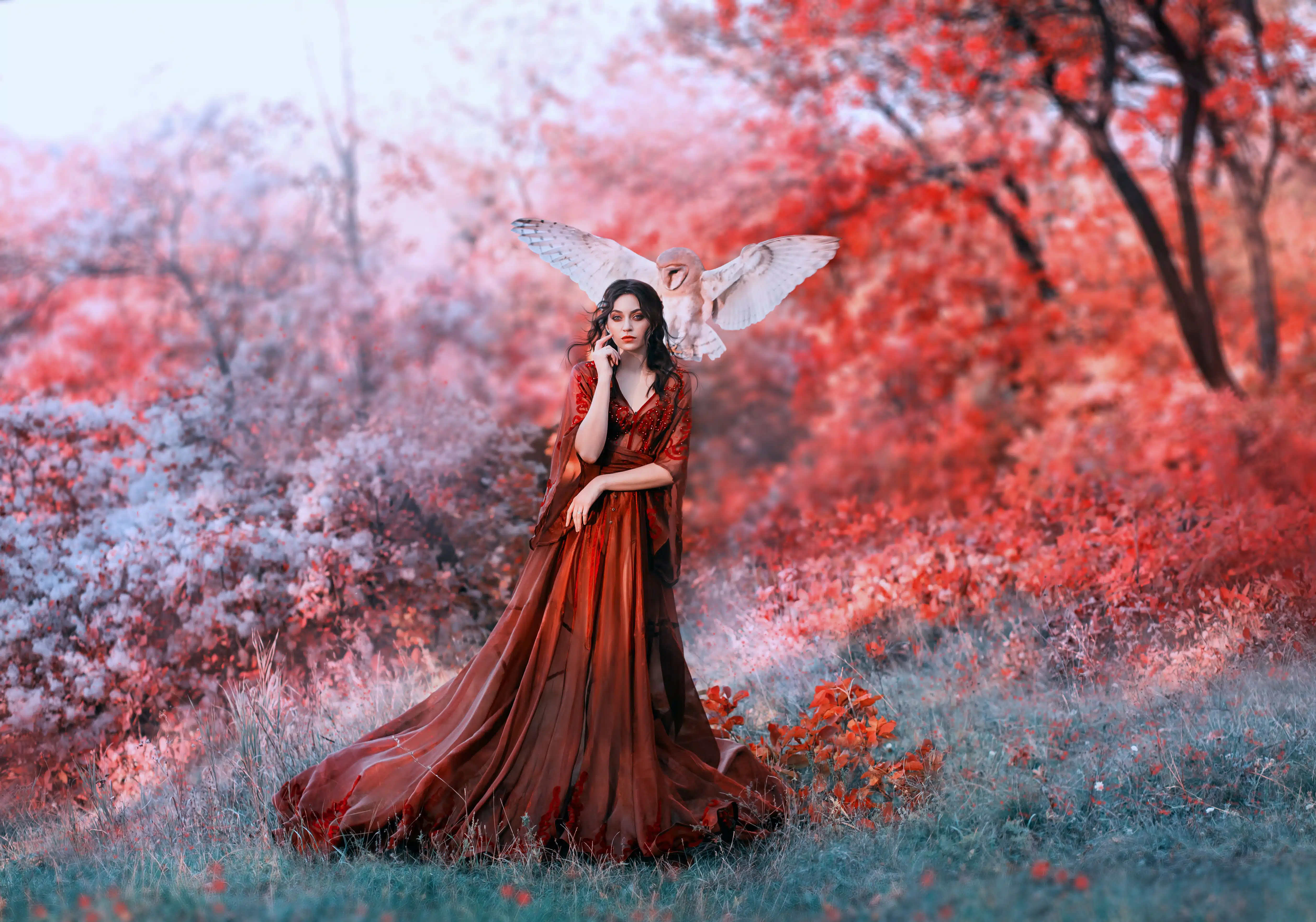
“They Ask Each Other Where They Came From” by Carl Sandburg
Am I the river your white birds fly over?
Are you the green valley my silver channels roam?
The two of us a bowl of blue sky day time and a bowl of red stars night time?
Who picked you
out of the first great whirl of nothings
and threw you here?
“Penniwit, the Artist” by Edgar Lee Masters
I lost my patronage in Spoon River
From trying to put my mind in the camera
To catch the soul of the person.
The very best picture I ever took
Was of Judge Somers, attorney at law.
He sat upright and had me pause
Till he got his cross-eye straight.
Then when he was ready he said “all right.”
And I yelled “overruled” and his eye turned up.
And I caught him just as he used to look
When saying “I except.”
“A River in Eden” by William Blake
There is in Eden a sweet River of milk and liquid pearl
Nam’d Ololon, on whose mild banks dwelt those who Milton drove
Down into Ulro; and they wept in long-resounding song
For seven days of Eternity, and the River’s living banks,
The mountains wail’d, and every plant that grew, in solemn sighs, lamented.
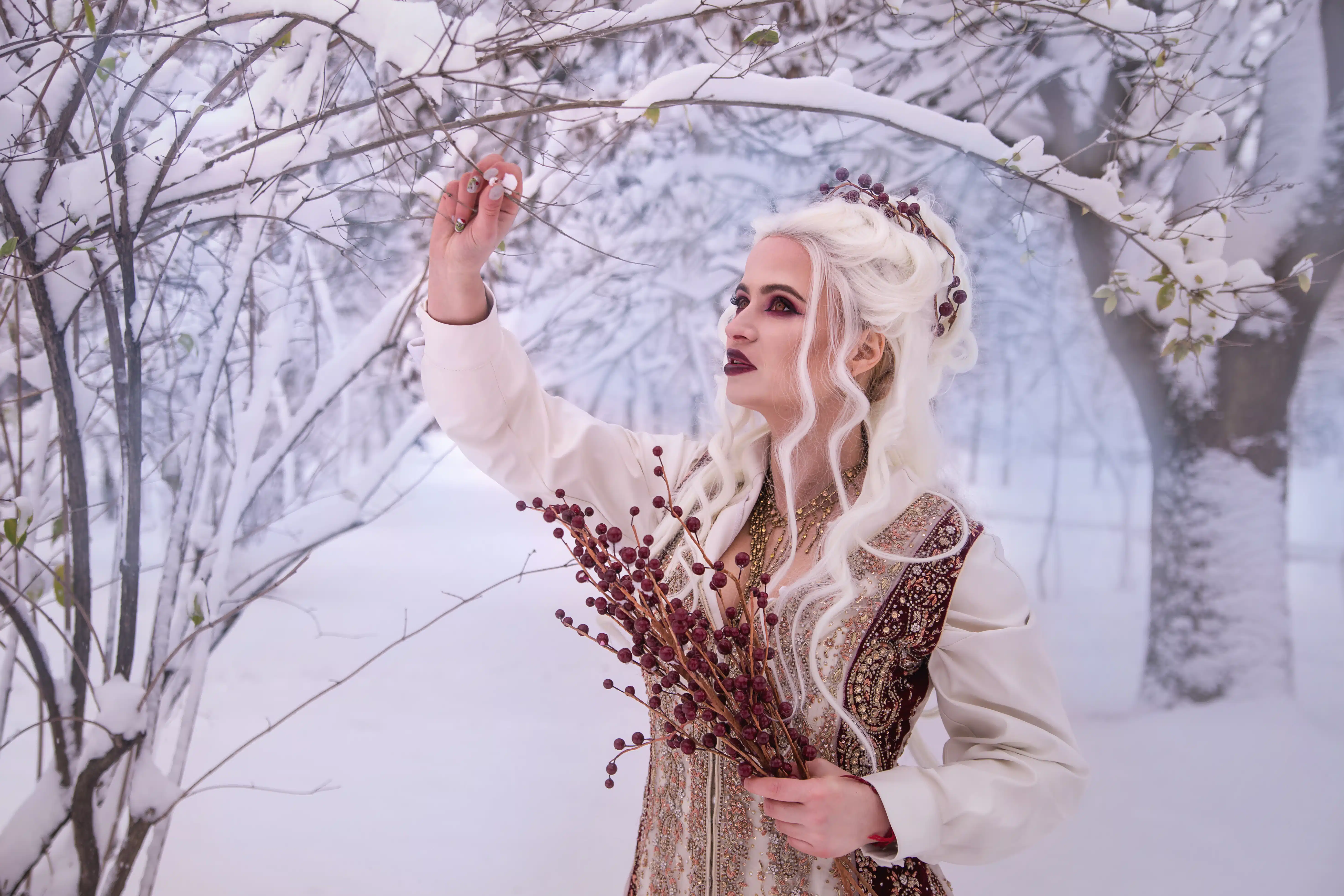
“Winter” by Maeng Sa-song
As winter enters this land of rivers and lakes,
the snow is more than a foot in depth.
Even though my hat is made of bamboo
and my coat is woven from straw,
This body’s warmth is also a debt
we owe to our great king.
“Two Rivers” by Anonymous
Says Tweed to Till—
‘What gars ye rin sae still?’
Says Till to Tweed—
‘Though ye rin with speed
And I rin slaw,
For ae man that ye droon
I droon twa.’
“Autumn” by Maeng Sa-song
As autumn enters this land of rivers and lakes,
even the fishes have become fat.
From a small boat, I fling my fishing net,
and let it trail with the tide.
This body’s pleasure is also a debt
we owe to our great king.
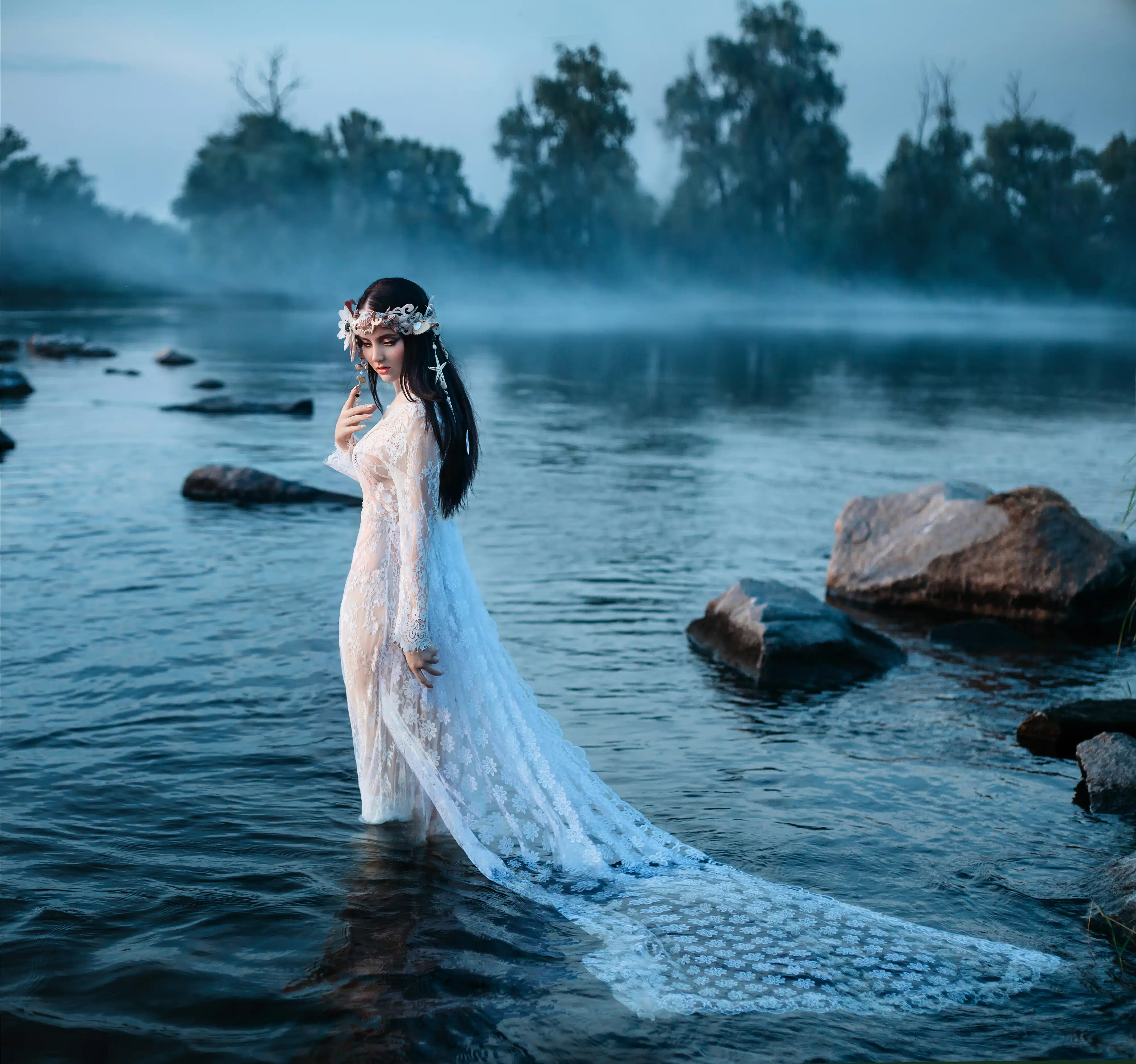
“My river runs to thee” by Emily Dickinson
My river runs to thee:
Blue sea, wilt welcome me?
My river waits reply.
Oh sea, look graciously!
I ’ll fetch thee brooks
From spotted nooks,—
Say, sea,
Take me!
“Summer” by Maeng Sa-song
As summer enters this land of rivers and lakes,
I find myself idle in my thatched hut.
Friendly waves that wash the shores
are sent only by the gentle breeze.
This body’s coolness is also a debt
we owe to our great king.
“Spring” by Maeng Sa-song
As spring enters this land of rivers and lakes,
without reason I feel mad delight.
In festive mood, a banquet is laid
of freshly caught fish and country wines.
This body’s leisure is a debt
we owe to our great king.
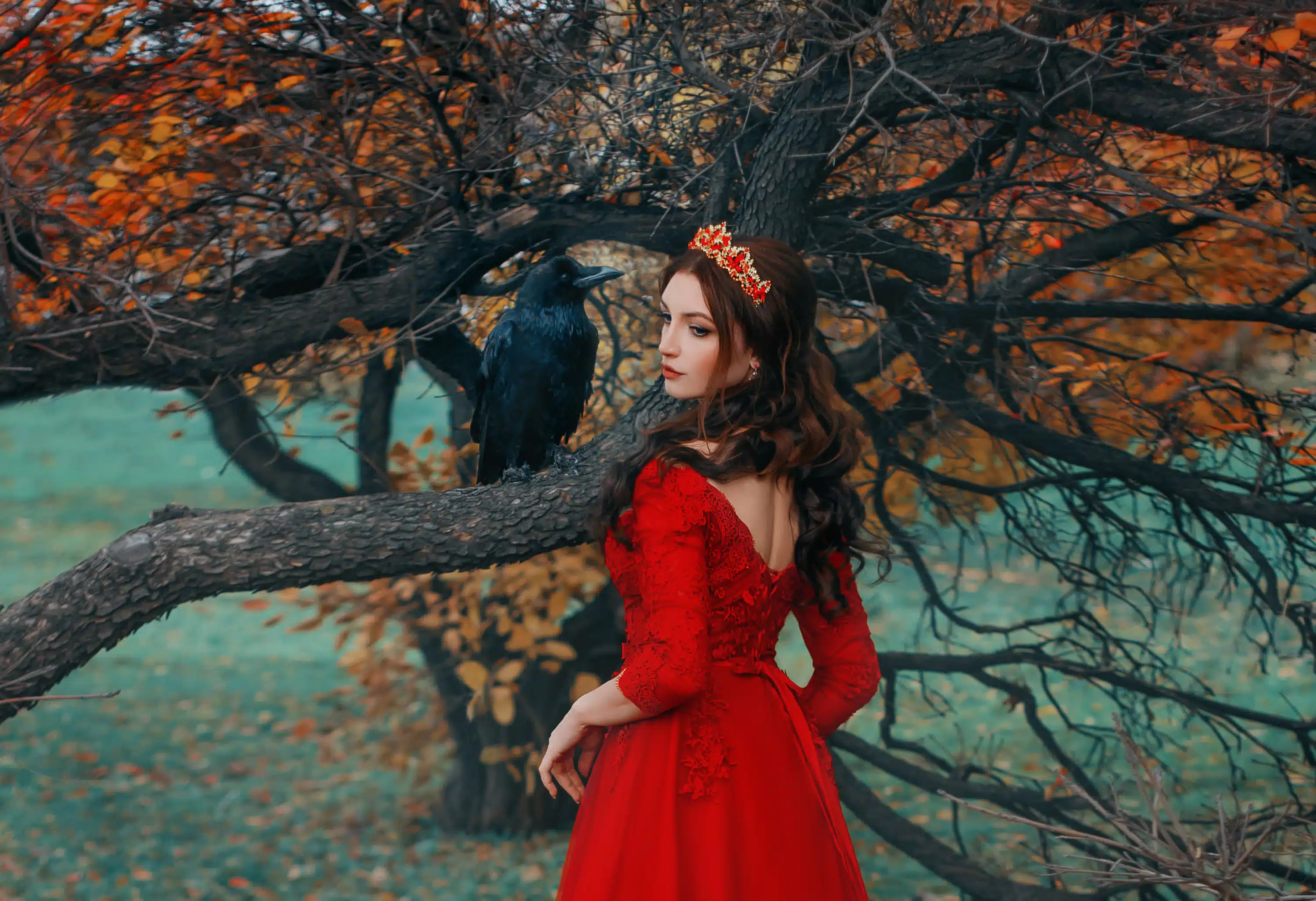
“Constance Hately” by Edgar Lee Masters
You praise my self-sacrifice, Spoon River,
In rearing Irene and Mary,
Orphans of my older sister!
And you censure Irene and Mary
For their contempt for me!
But praise not my self-sacrifice,
And censure not their contempt;
I reared them, I cared for them, true enough!—
But I poisoned my benefactions
With constant reminders of their dependence.
“Suicide’s Note” by Langston Hughes
The calm,
Cool face of the river
Asked me for a kiss.
“East River” by Lola Ridge
Dour river
Jaded with monotony of lights
Diving off mast heads….
Lights mad with creating in a river… turning its sullen back….
Heave up, river…
Vomit back into the darkness your spawn of light…
The night will gut what you give her.

“Rivers To The Sea” by Sara Teasdale
But what of her whose heart is troubled by it,
The mother who would soothe and set him free,
Fearing the song’s storm-shaken ecstasy
Oh, as the moon that has no power to quiet
The strong wind-driven sea.
“Conversion” by T. E. Hulme
Lighthearted I walked into the valley wood
In the time of hyacinths,
Till beauty like a scented cloth
Cast over, stifled me. I was bound
Motionless and faint of breath
By loveliness that is her own eunuch.
Now pass I to the final river
Ignominiously, in a sack, without sound,
As any peeping Turk to the Bosphorus.
“A View of the Han River” by Kiang Kung-hu (Witter Bynner, Translator)
With its three Hsiang branches it reaches Ch’u border
And with nine streams touches the gateway of Ching:
This river runs beyond heaven and earth,
Where the color of mountains both is and is not.
The dwellings of men seem floating along
On ripples of the distant sky….
O Hsiang-yang, how your beautiful days
Make drunken my old mountain-heart!

“The River-God” by Charles Henry Lüders
A giant docile to obey your will,
A comrade,—a companion,—a refrain
Threading a dream; yet, laughing like a rill,
He’ll bear your drownèd body to the main.
“Gray River” by Jewell Bothwell Tull
Gray river,
Do you care that the wind’s kisses are cold now?
That they are putting away the little summer boats?
